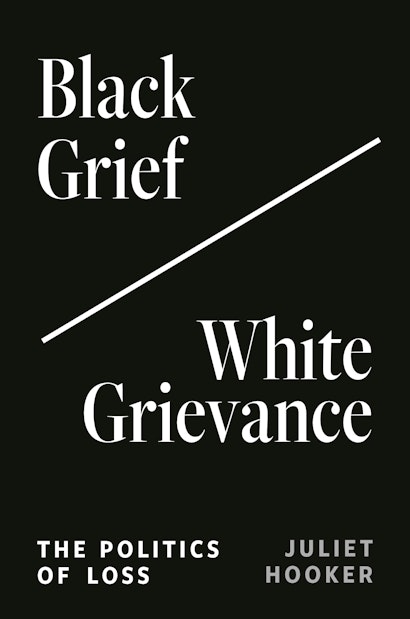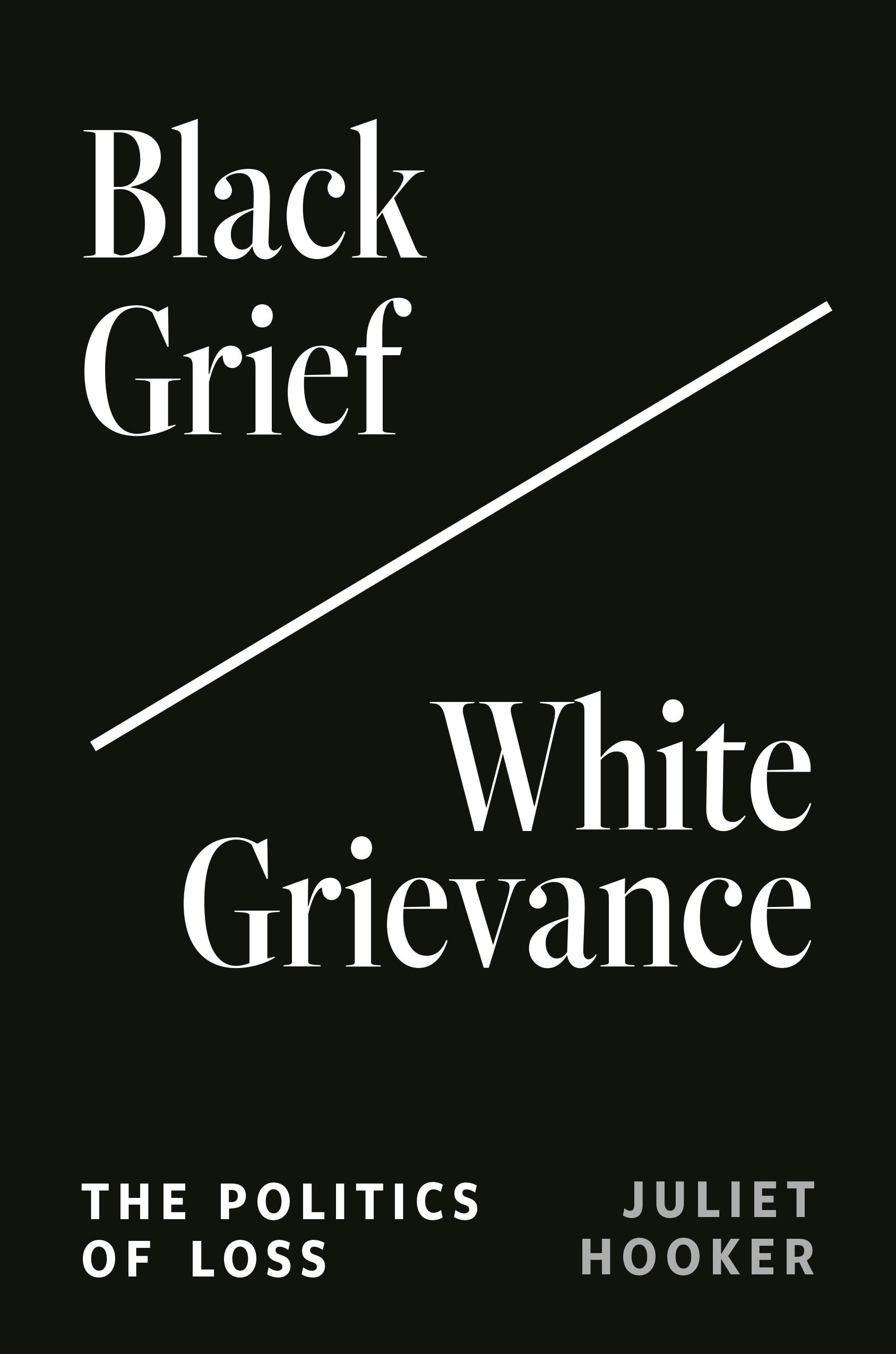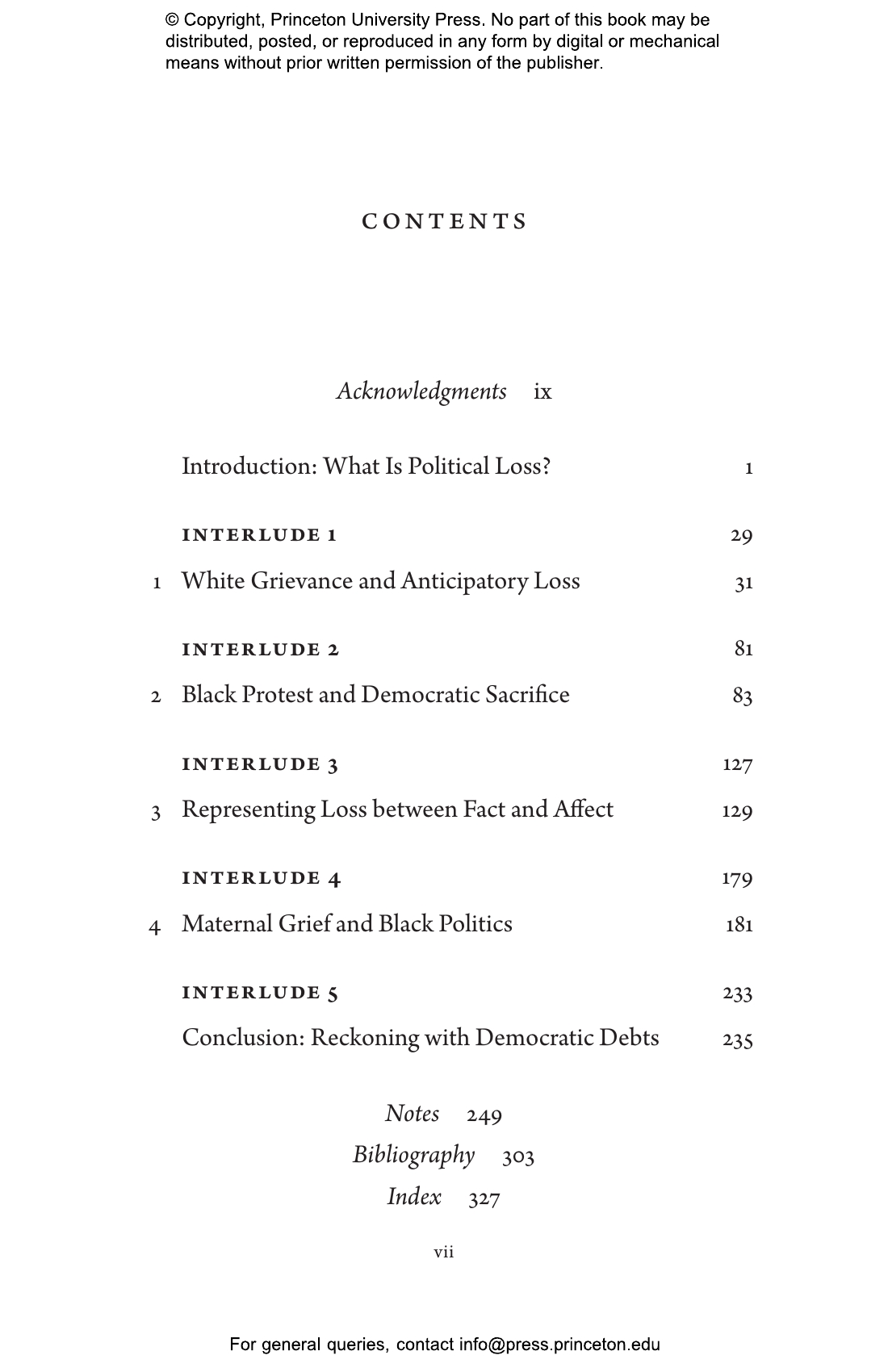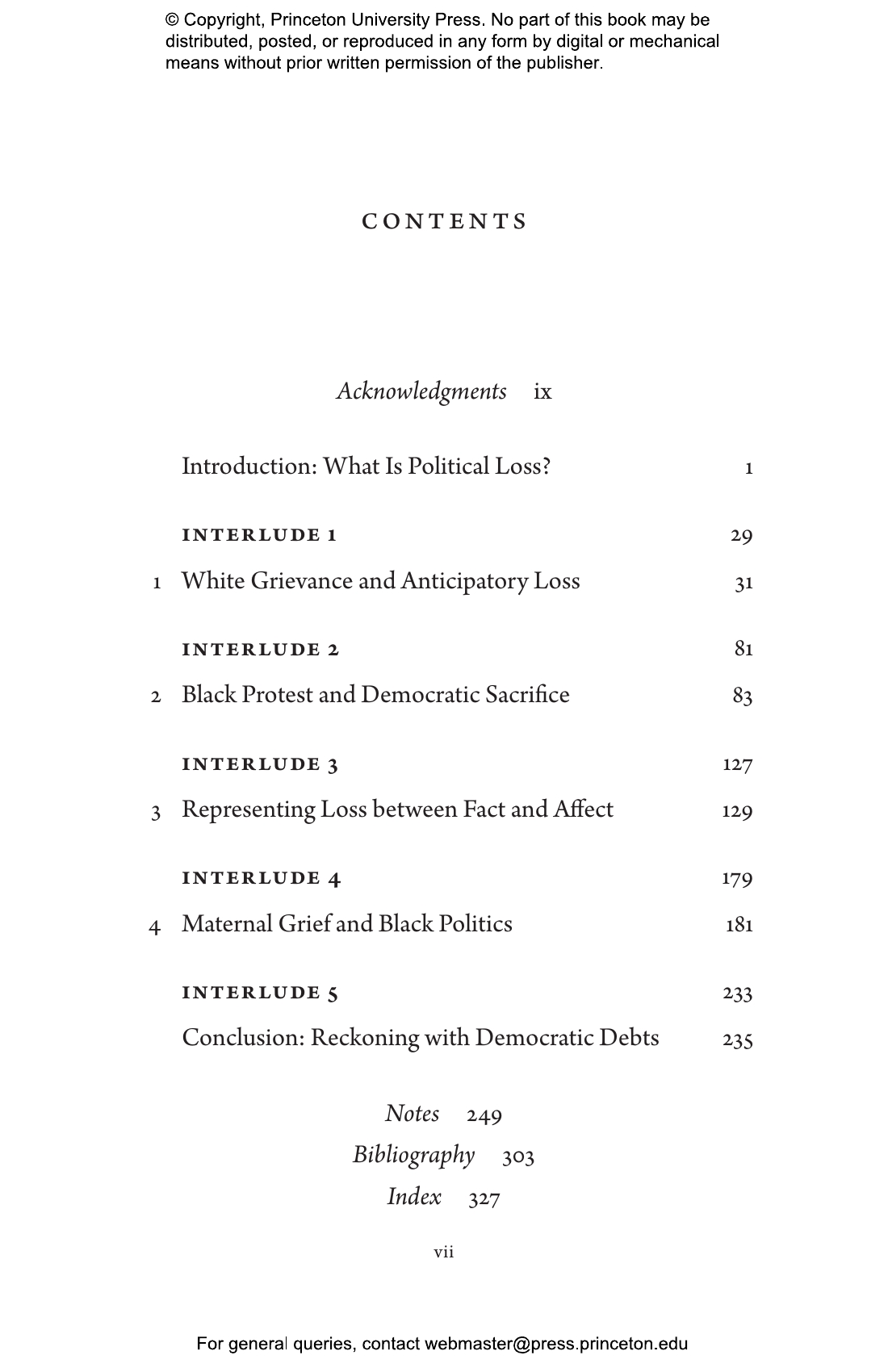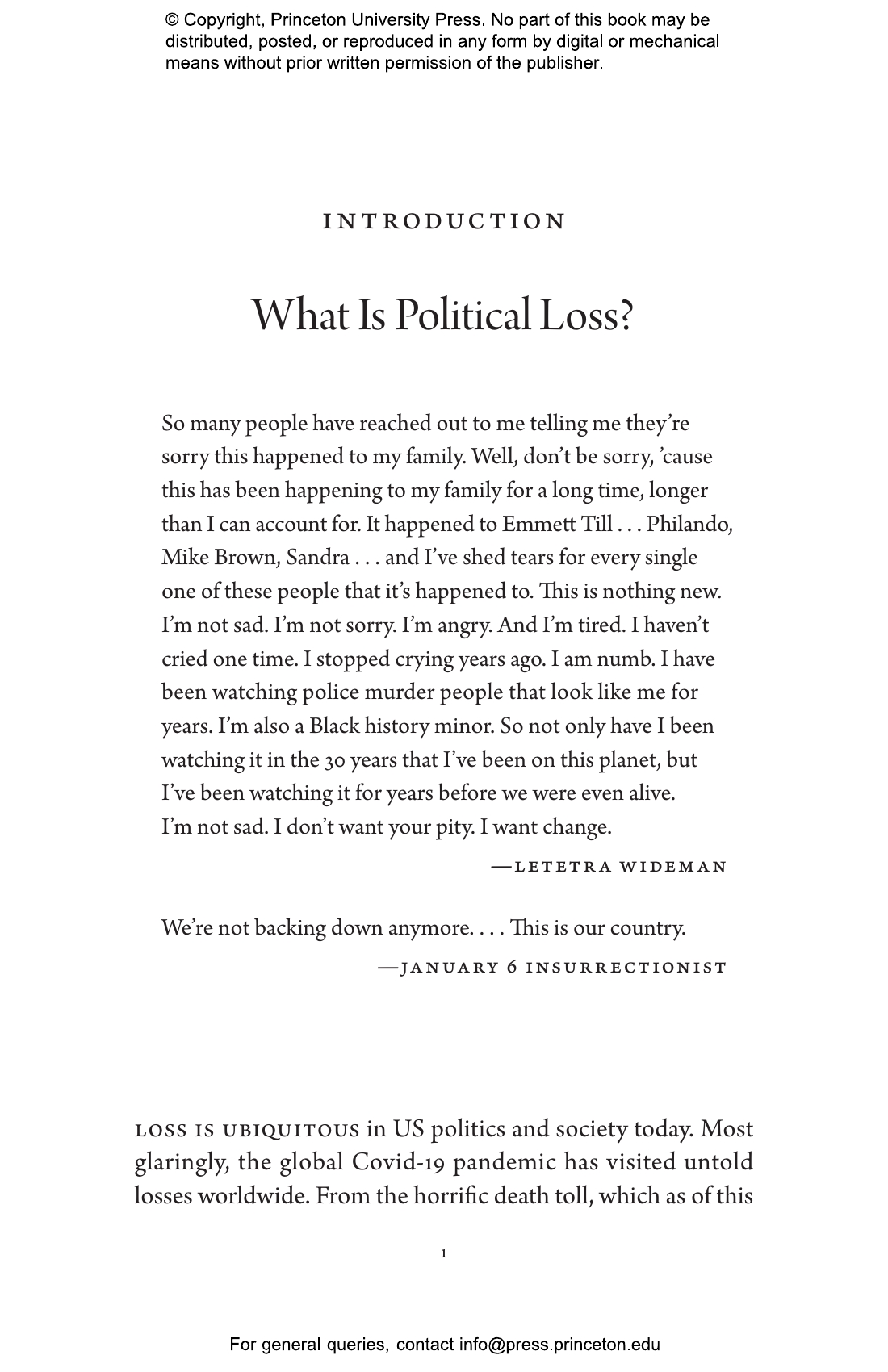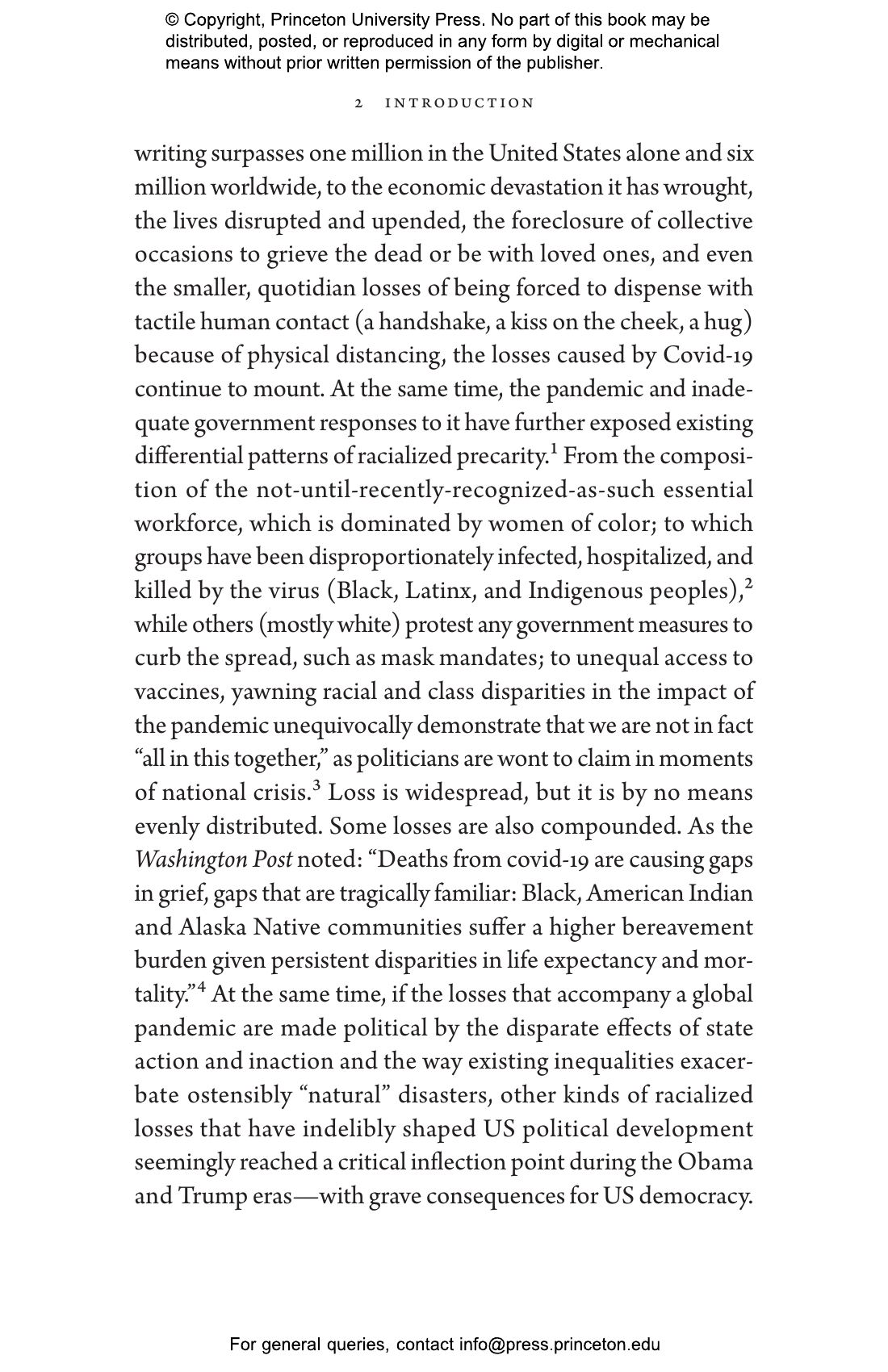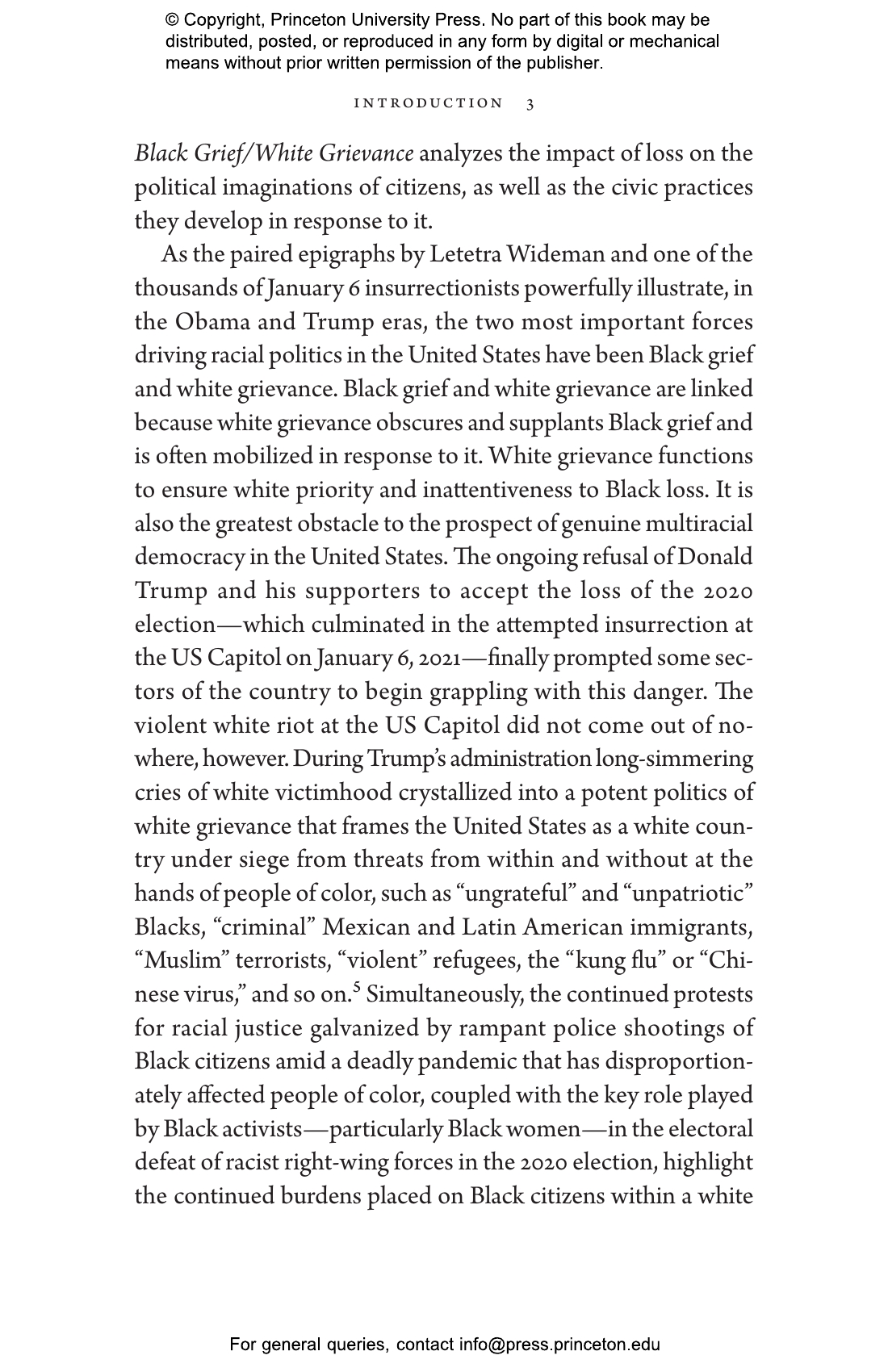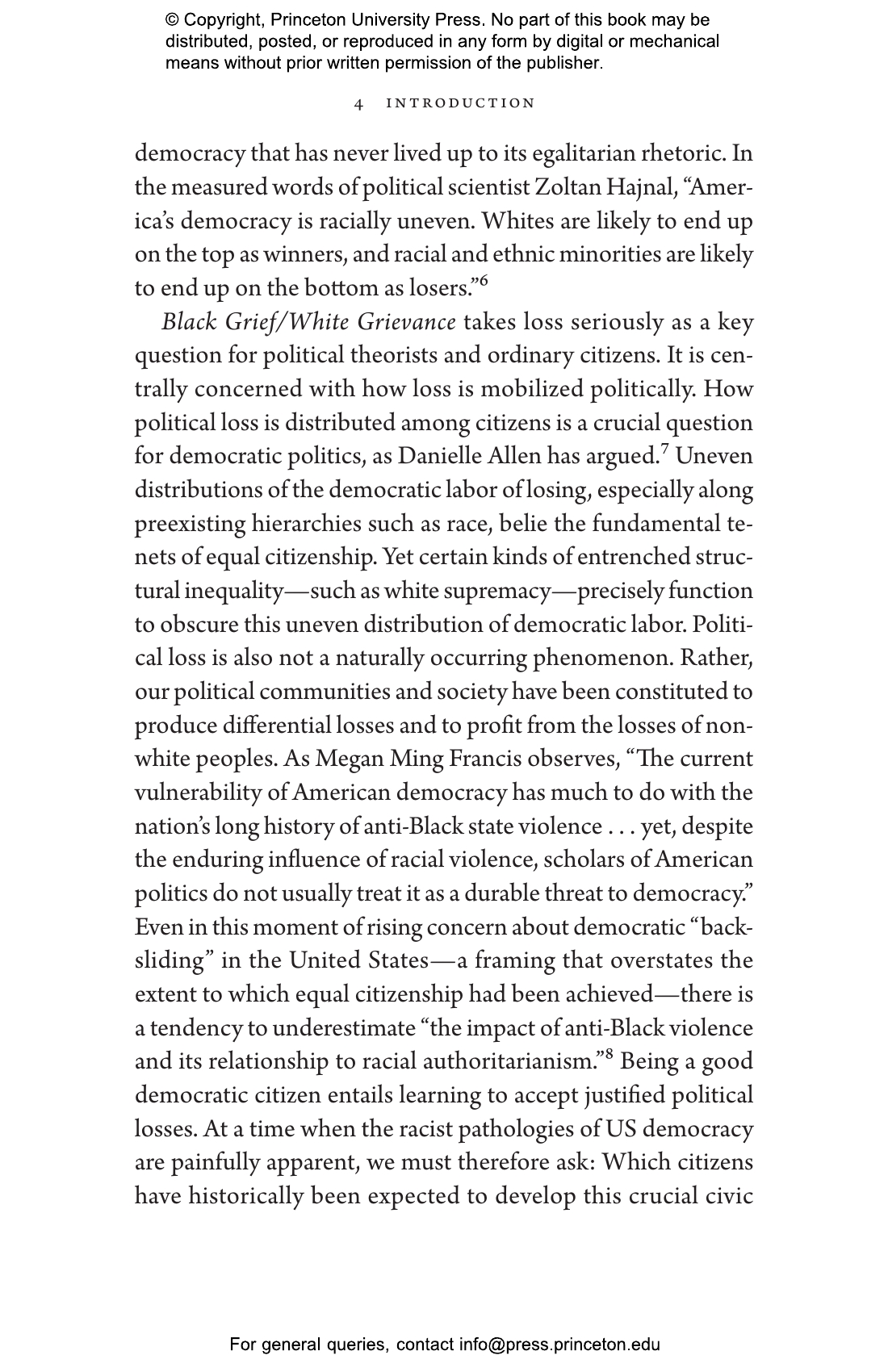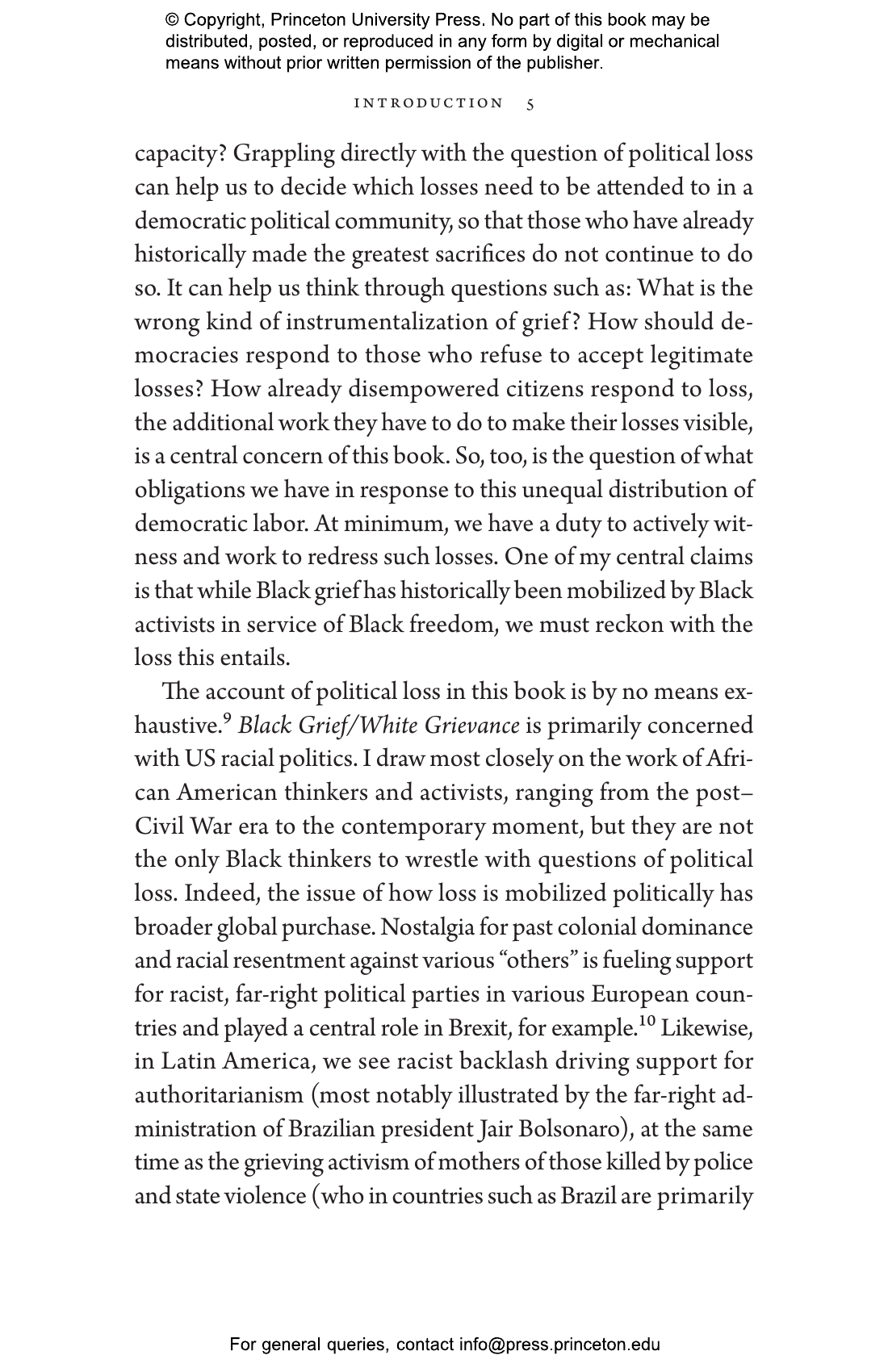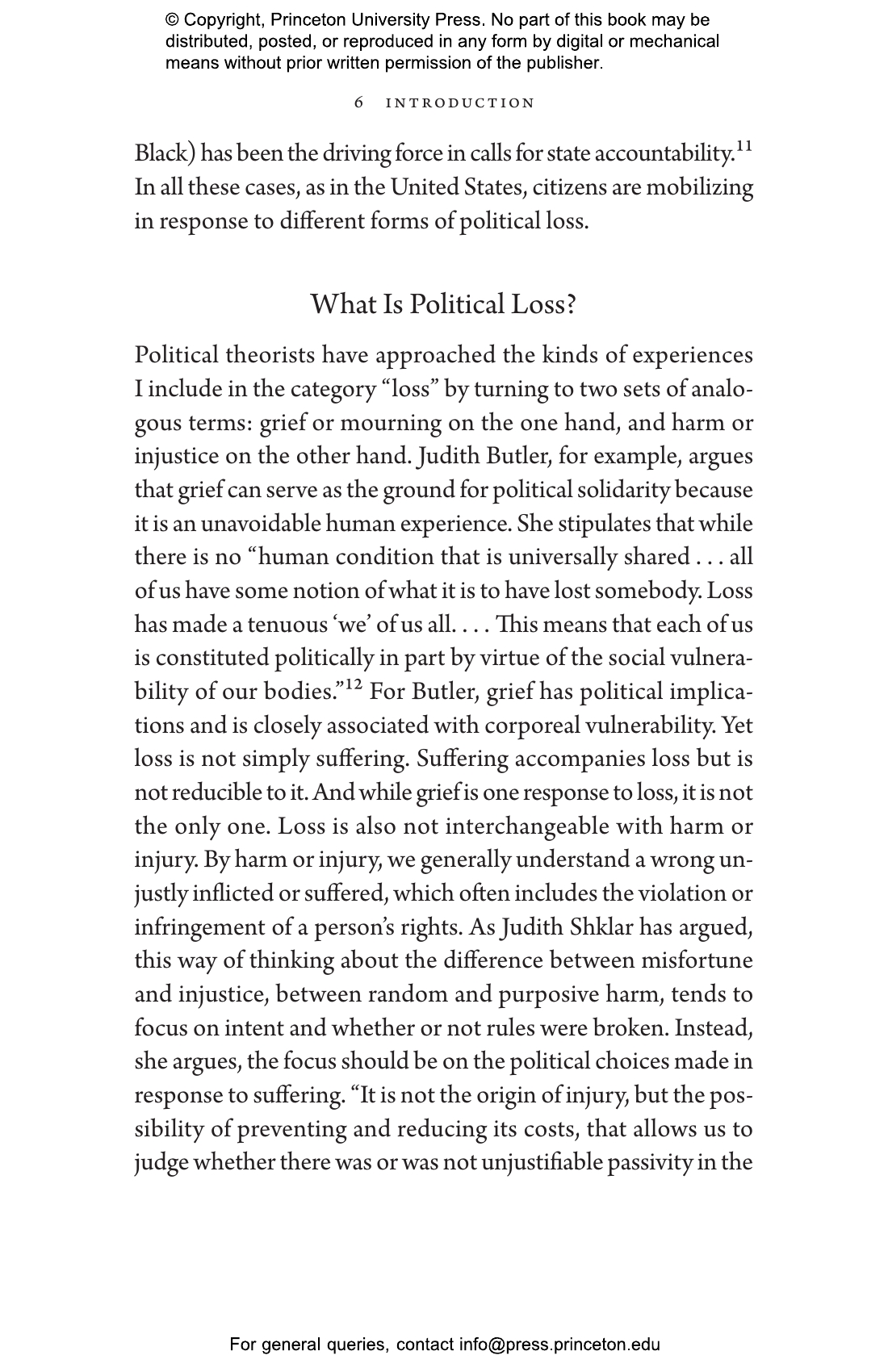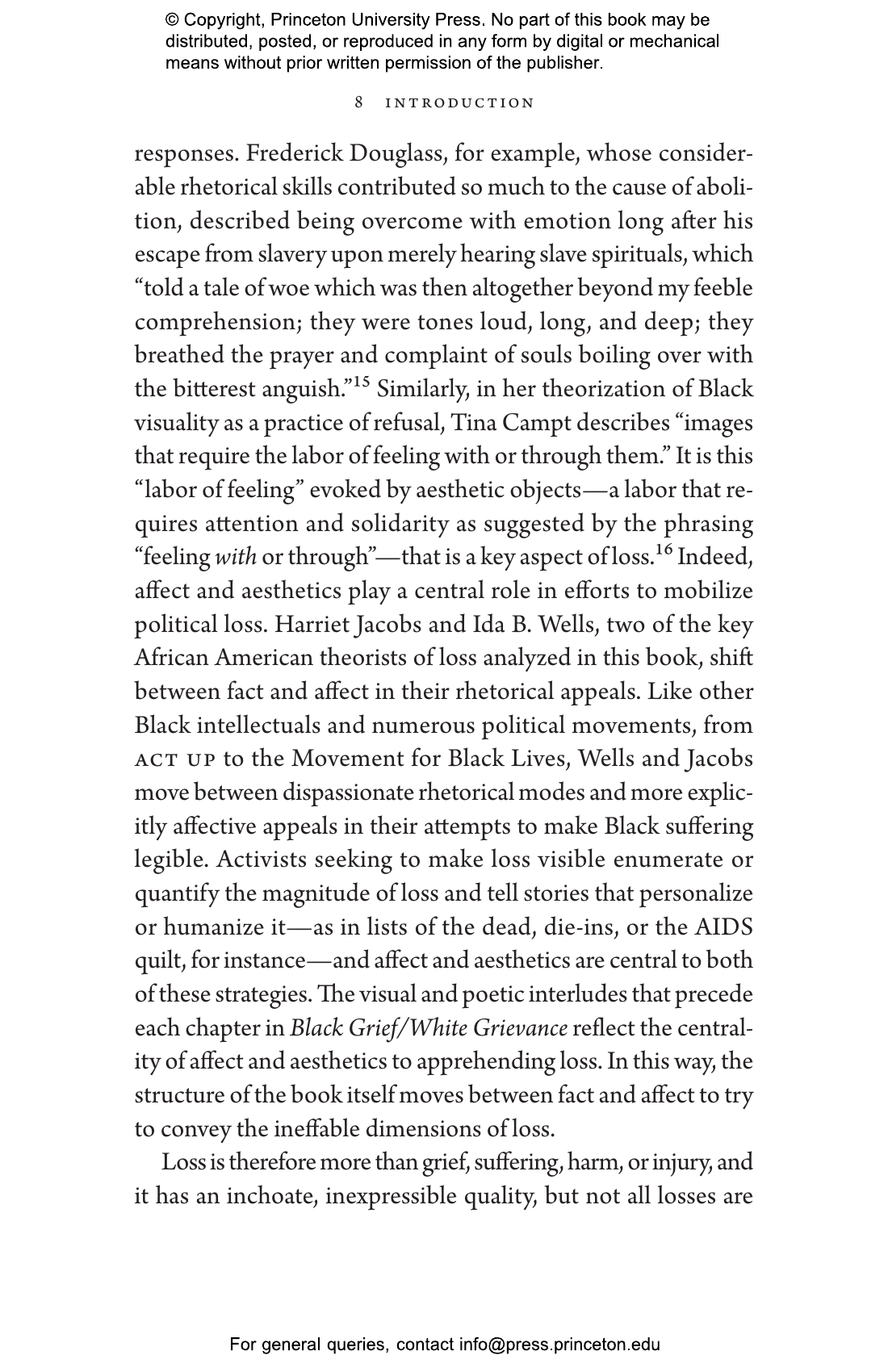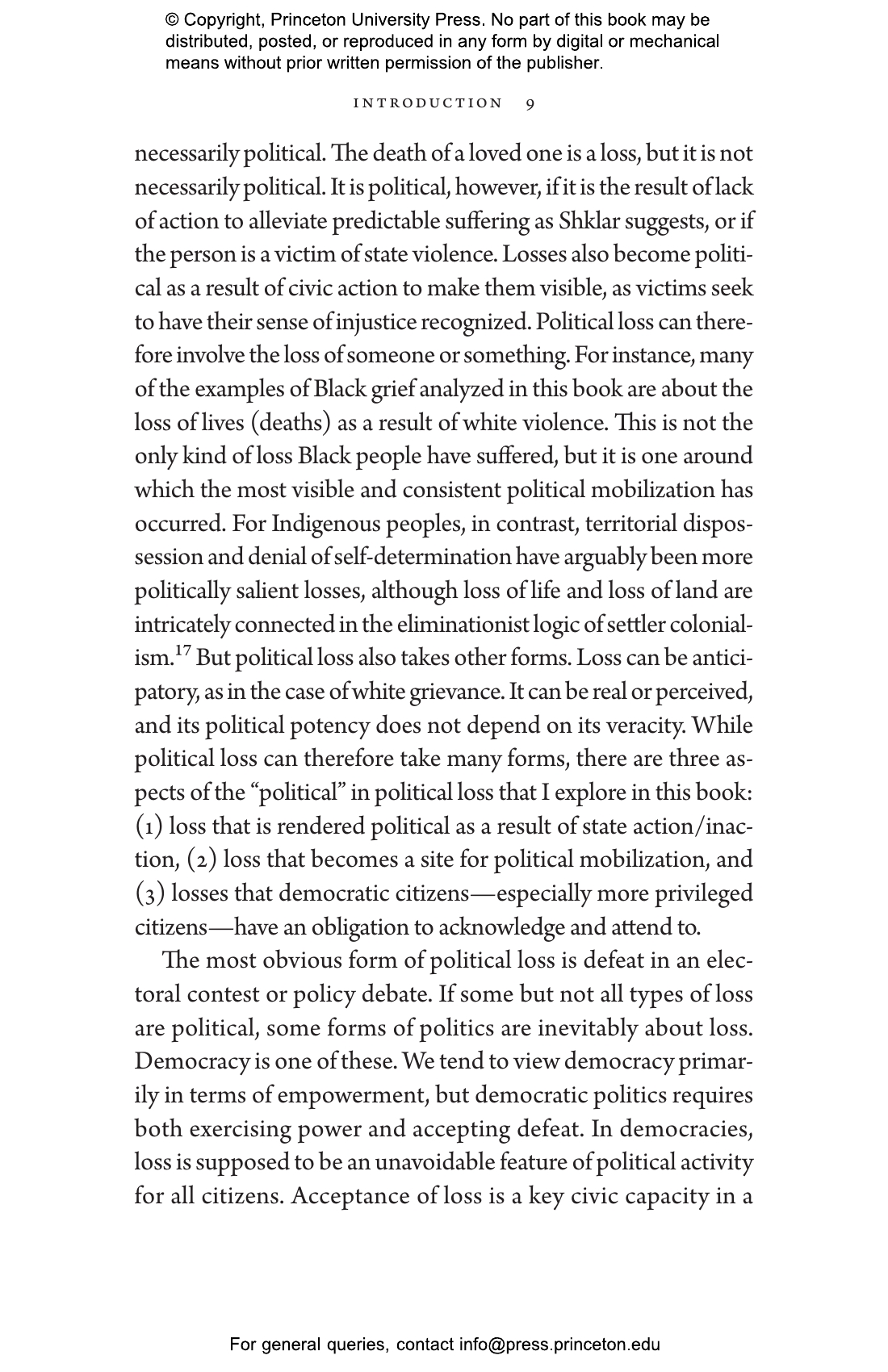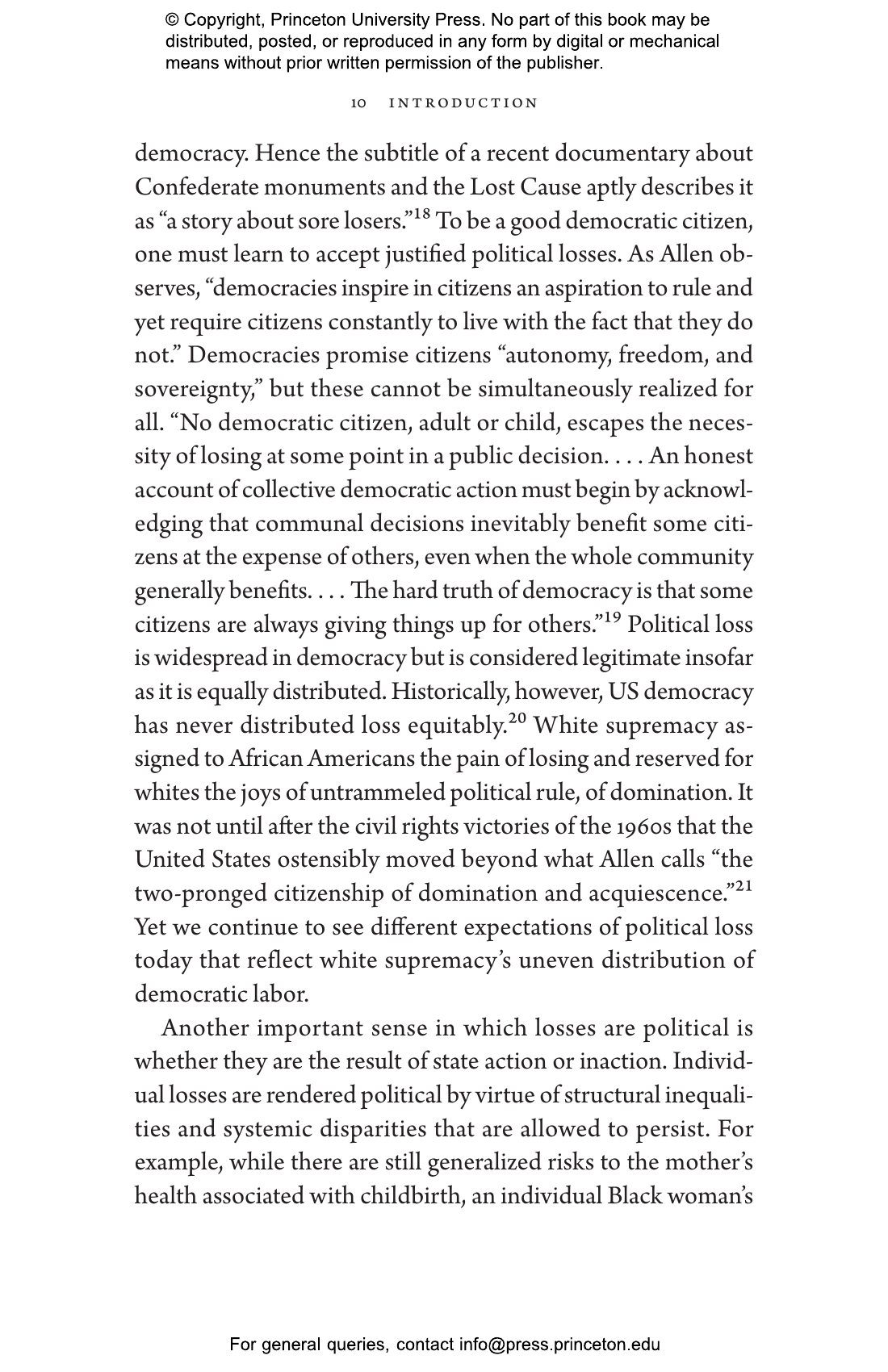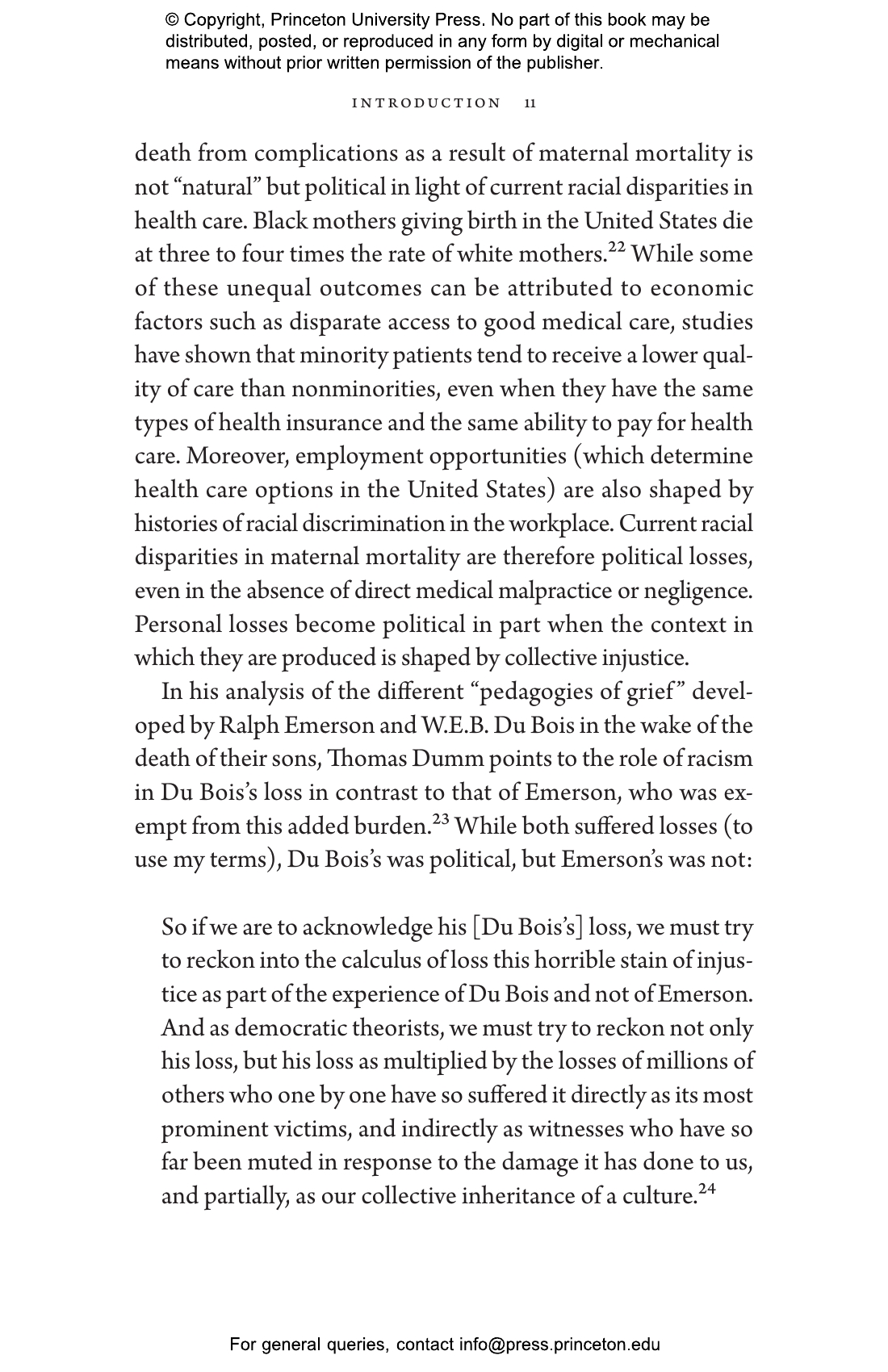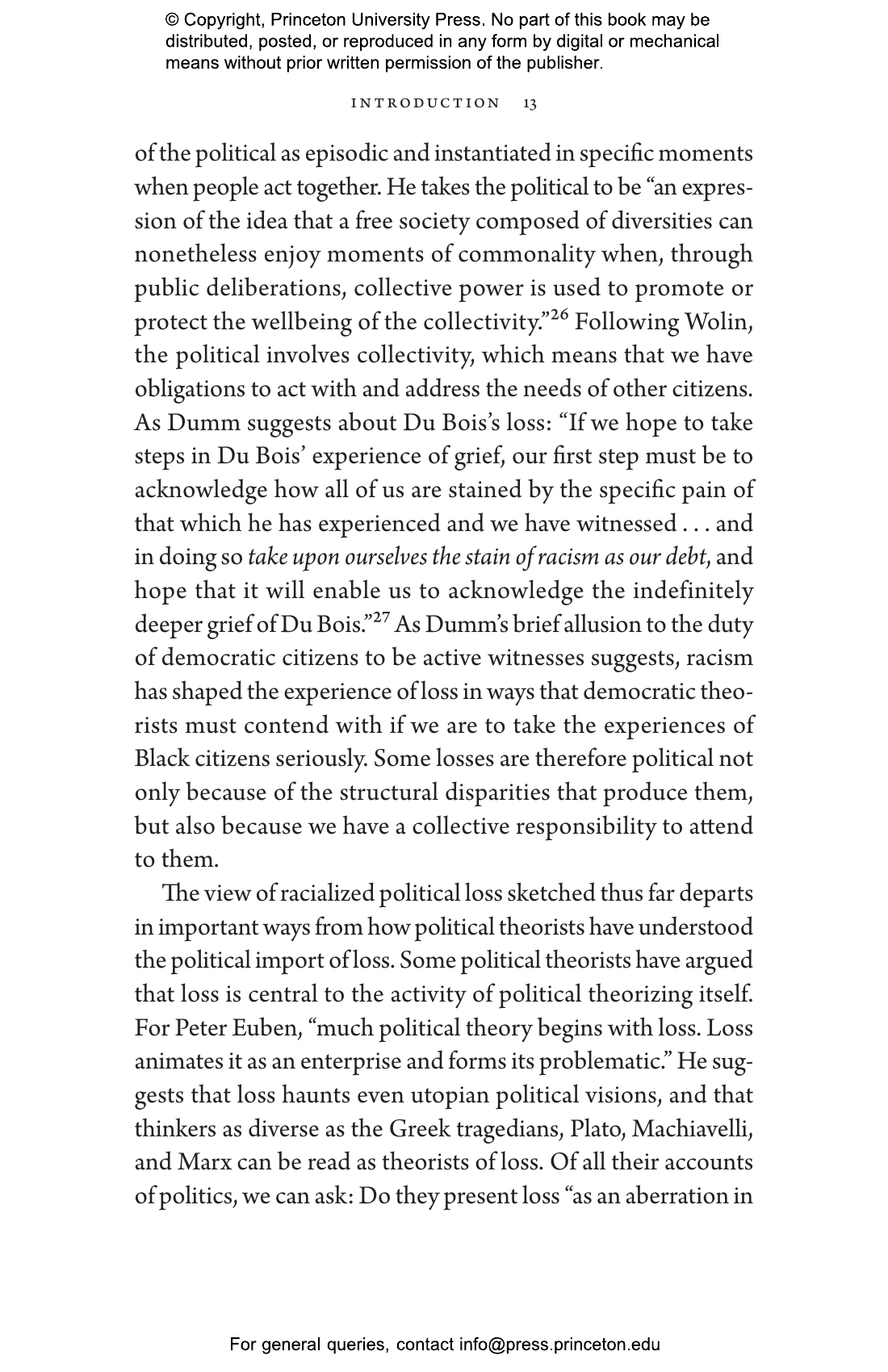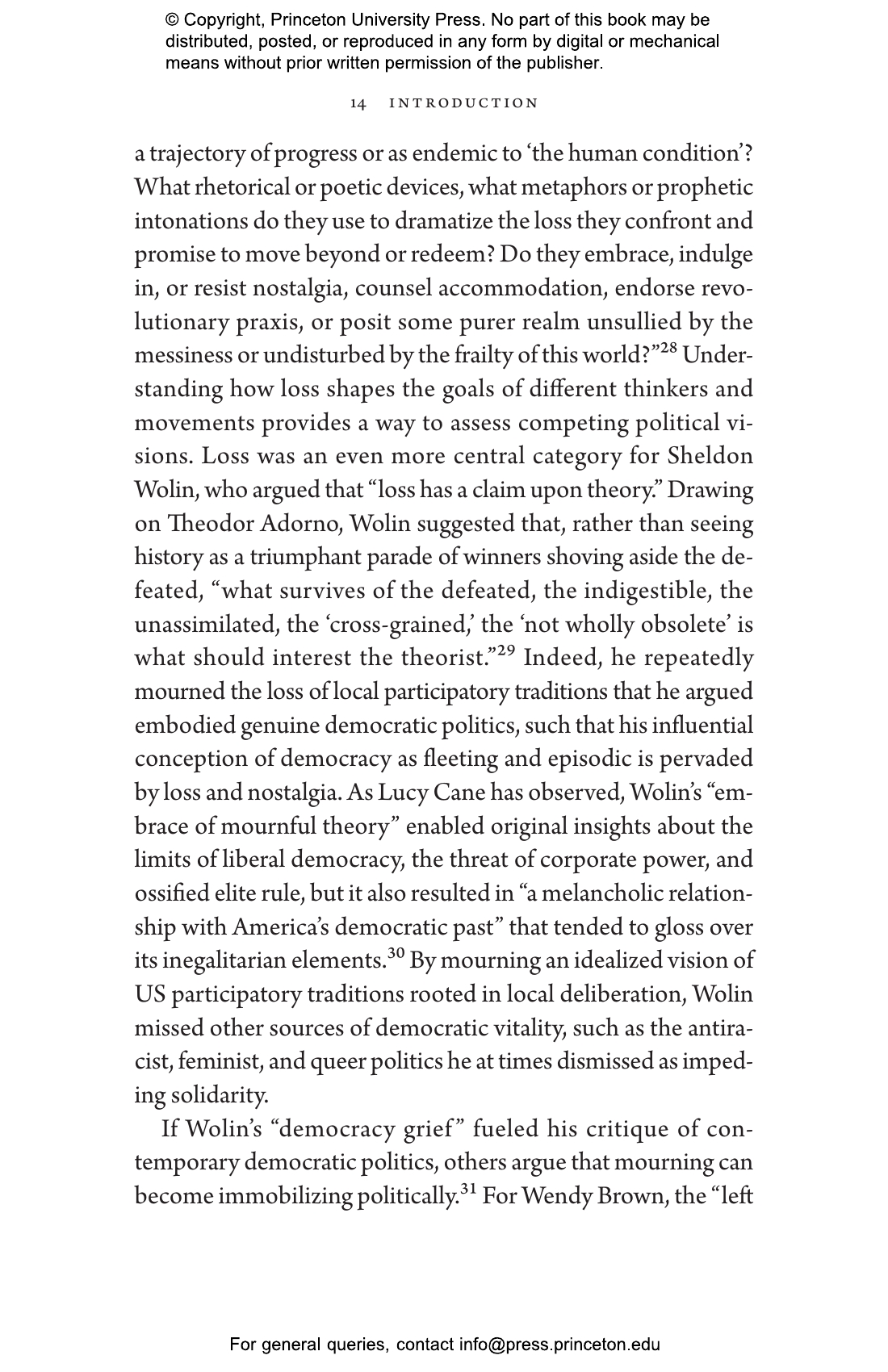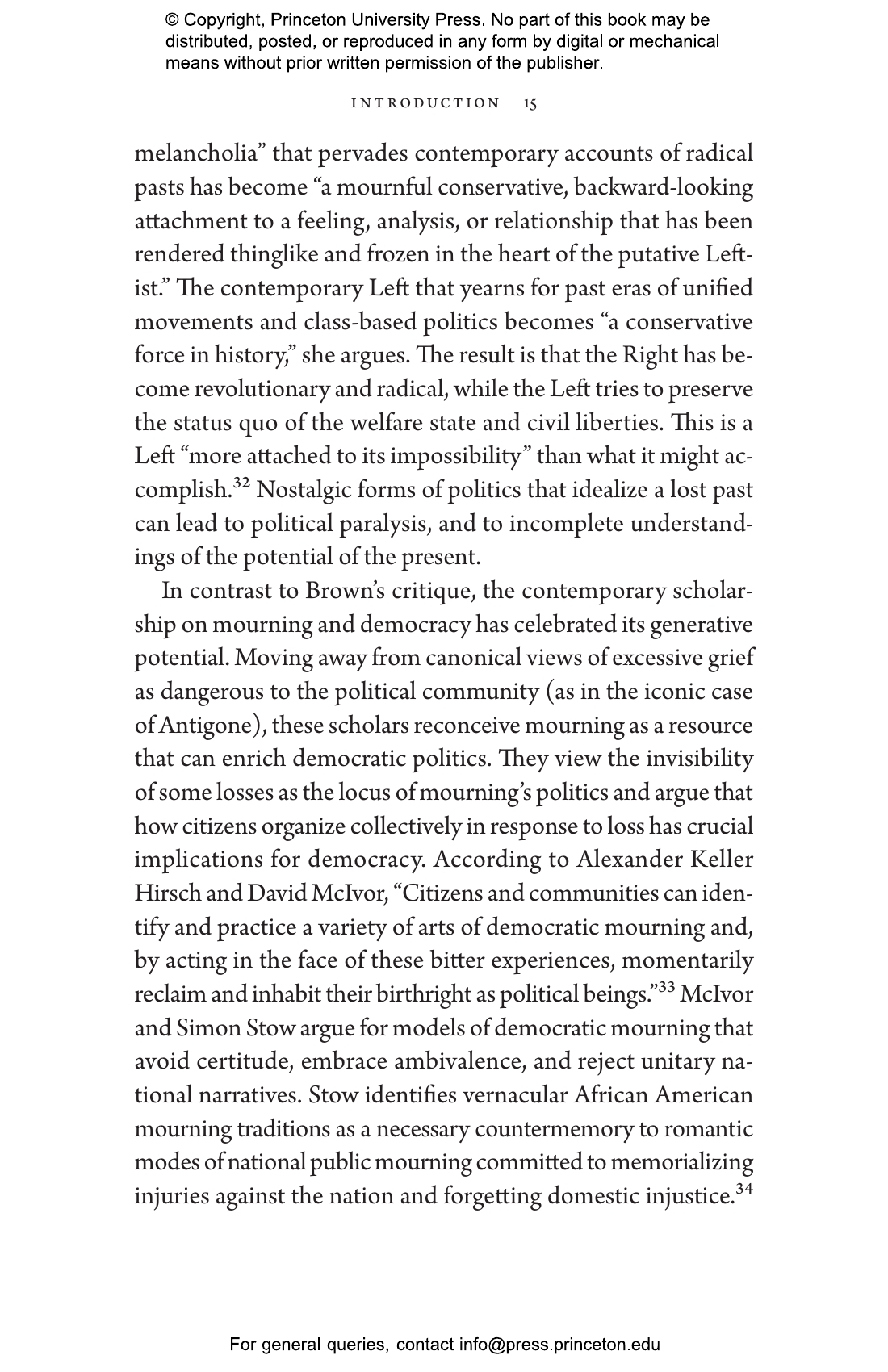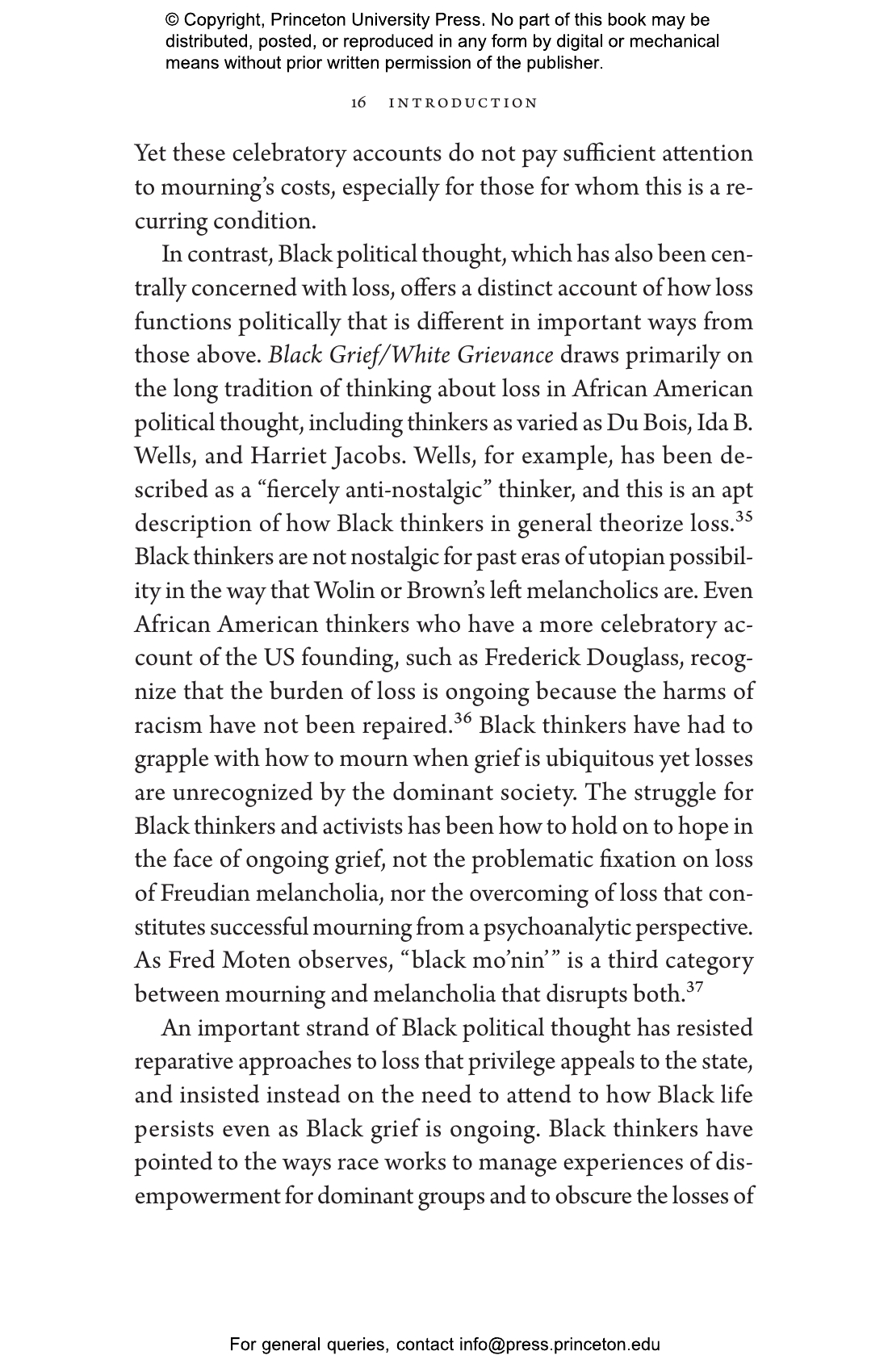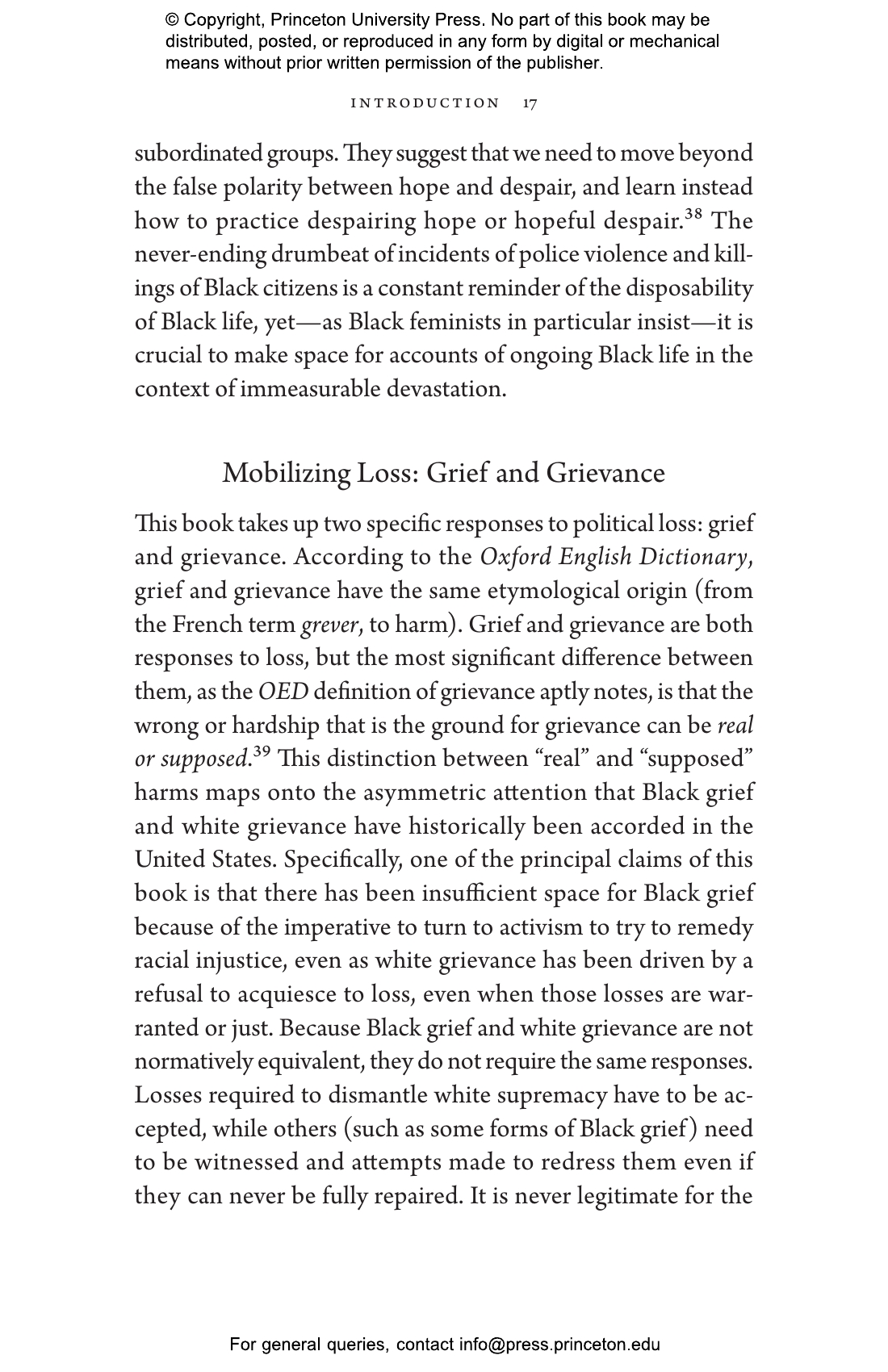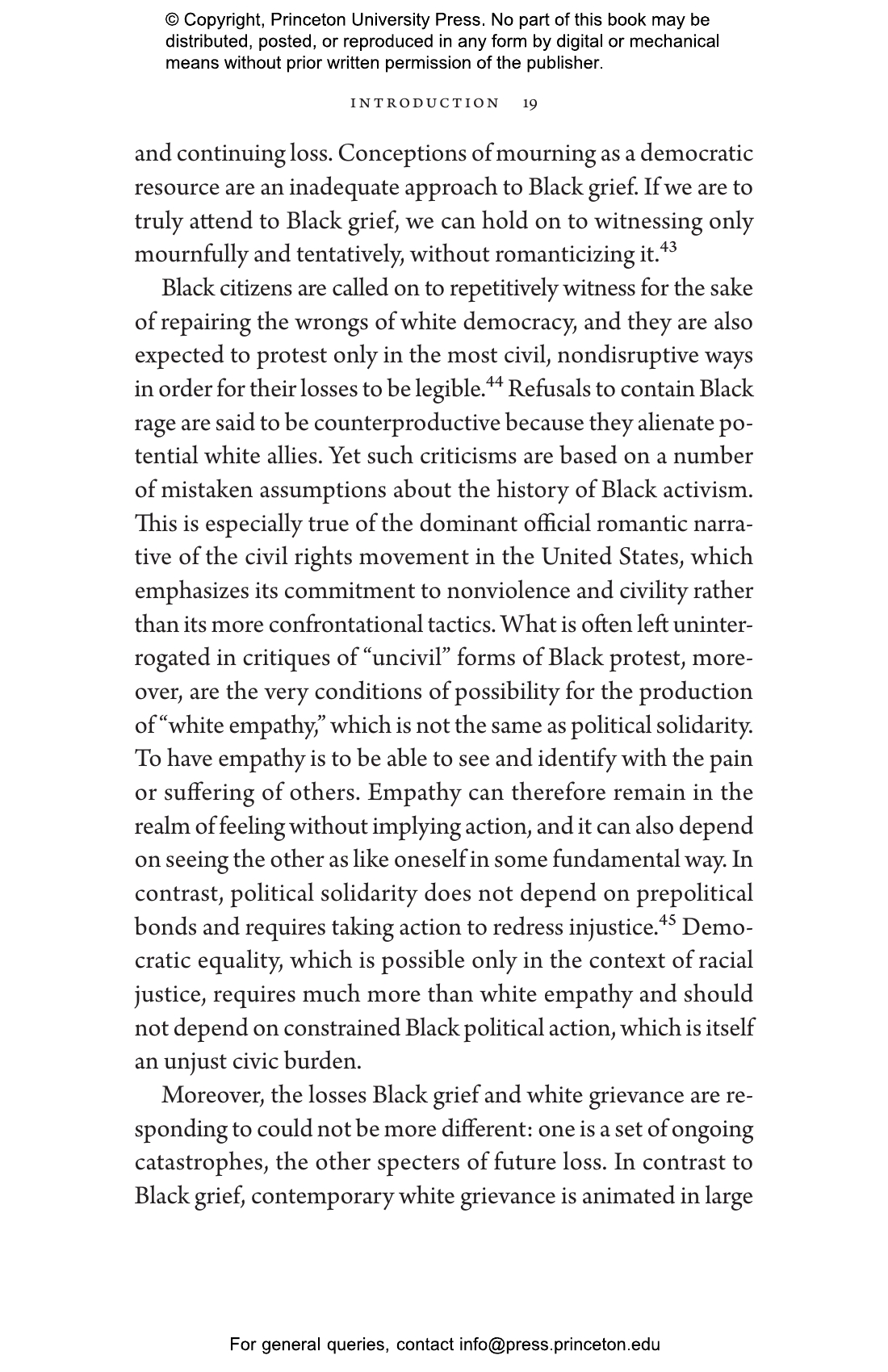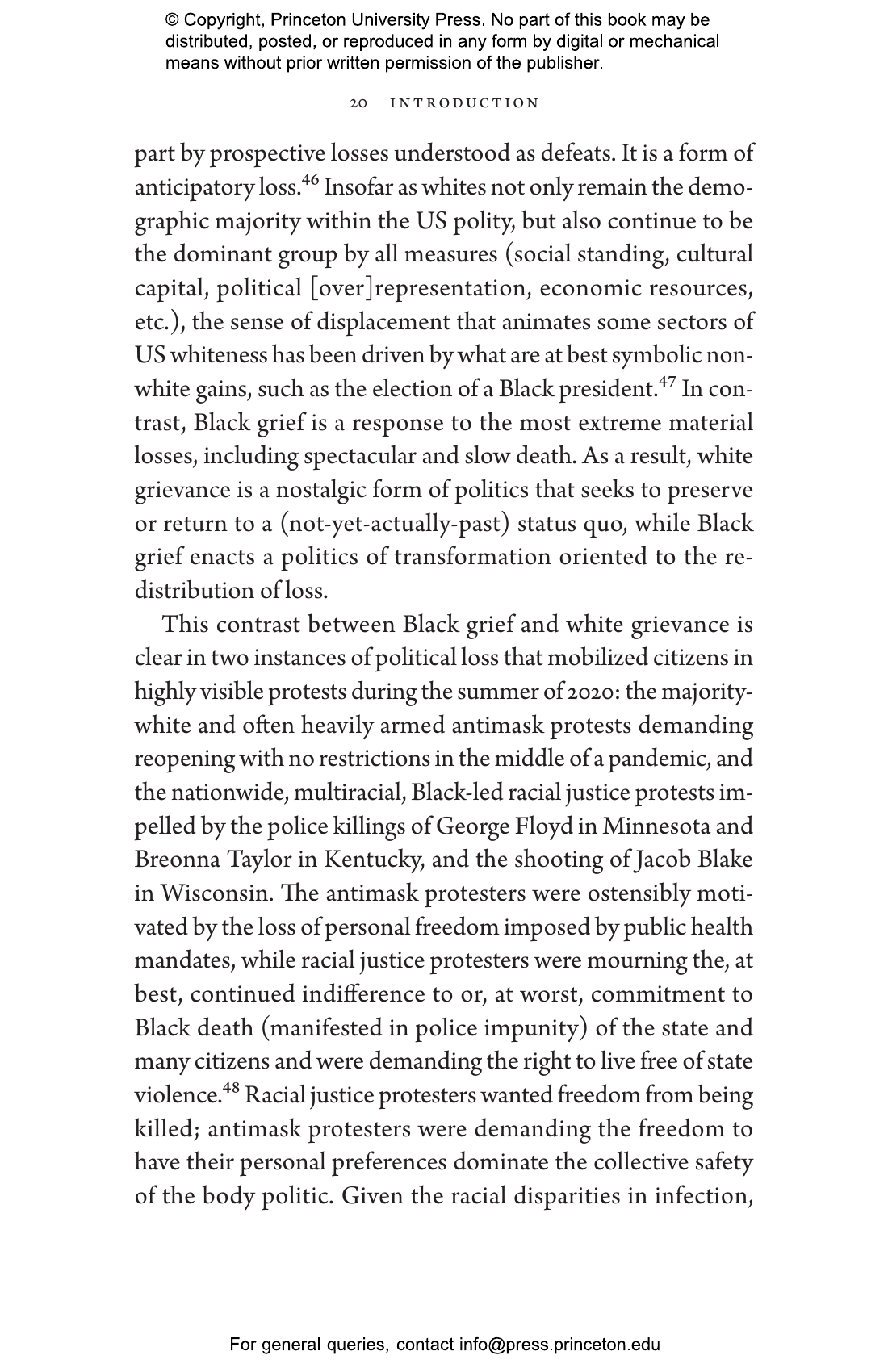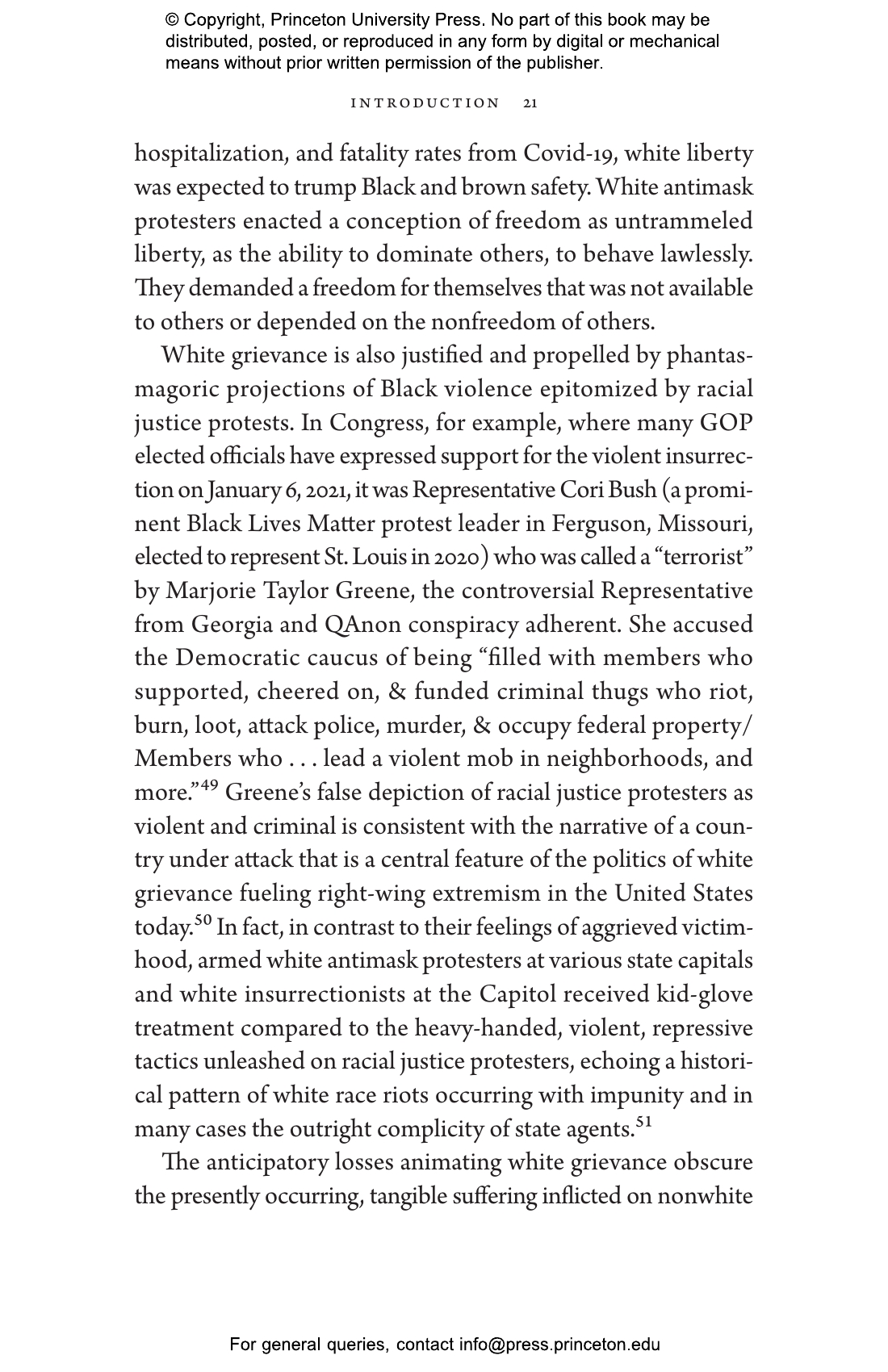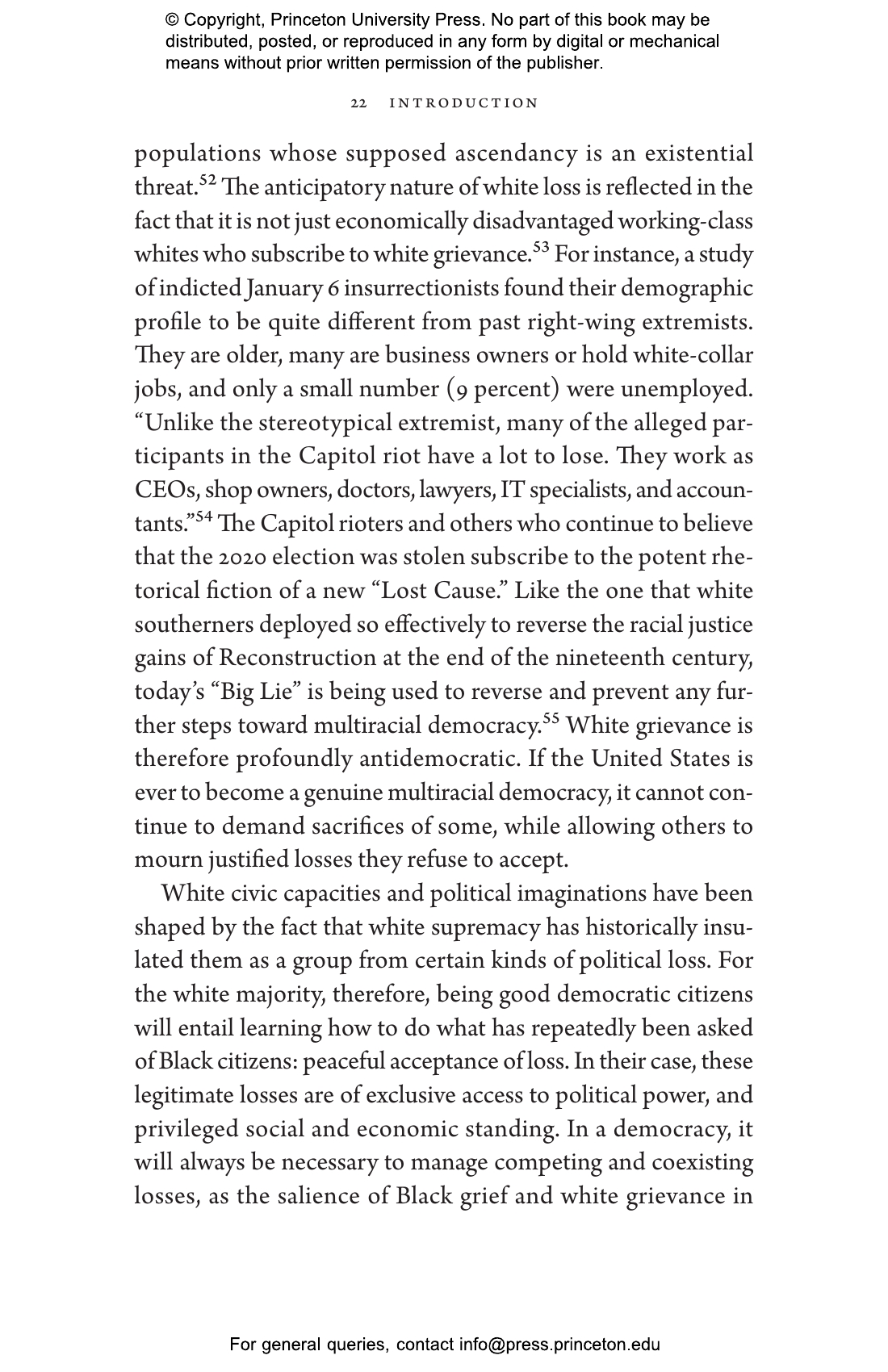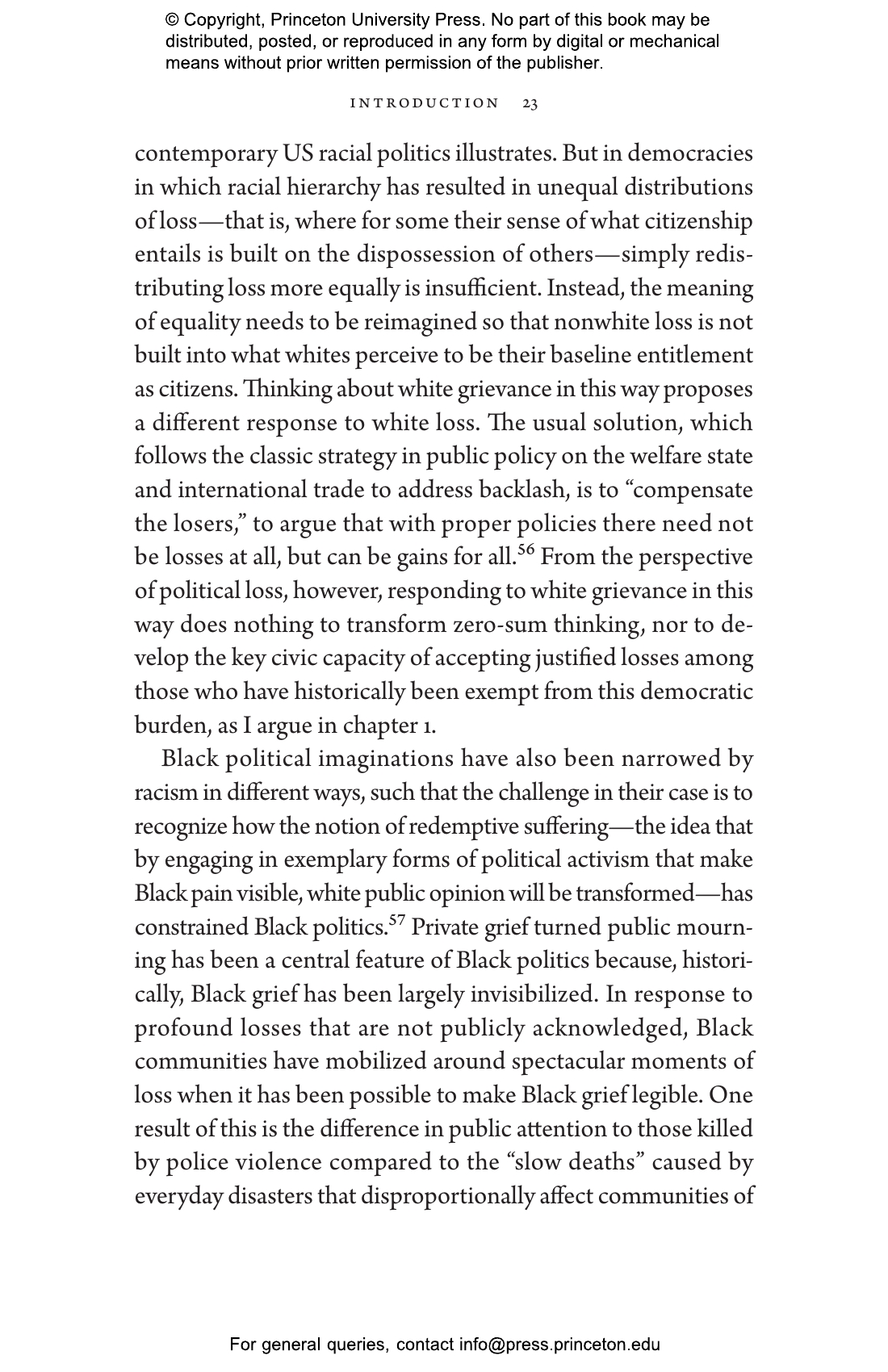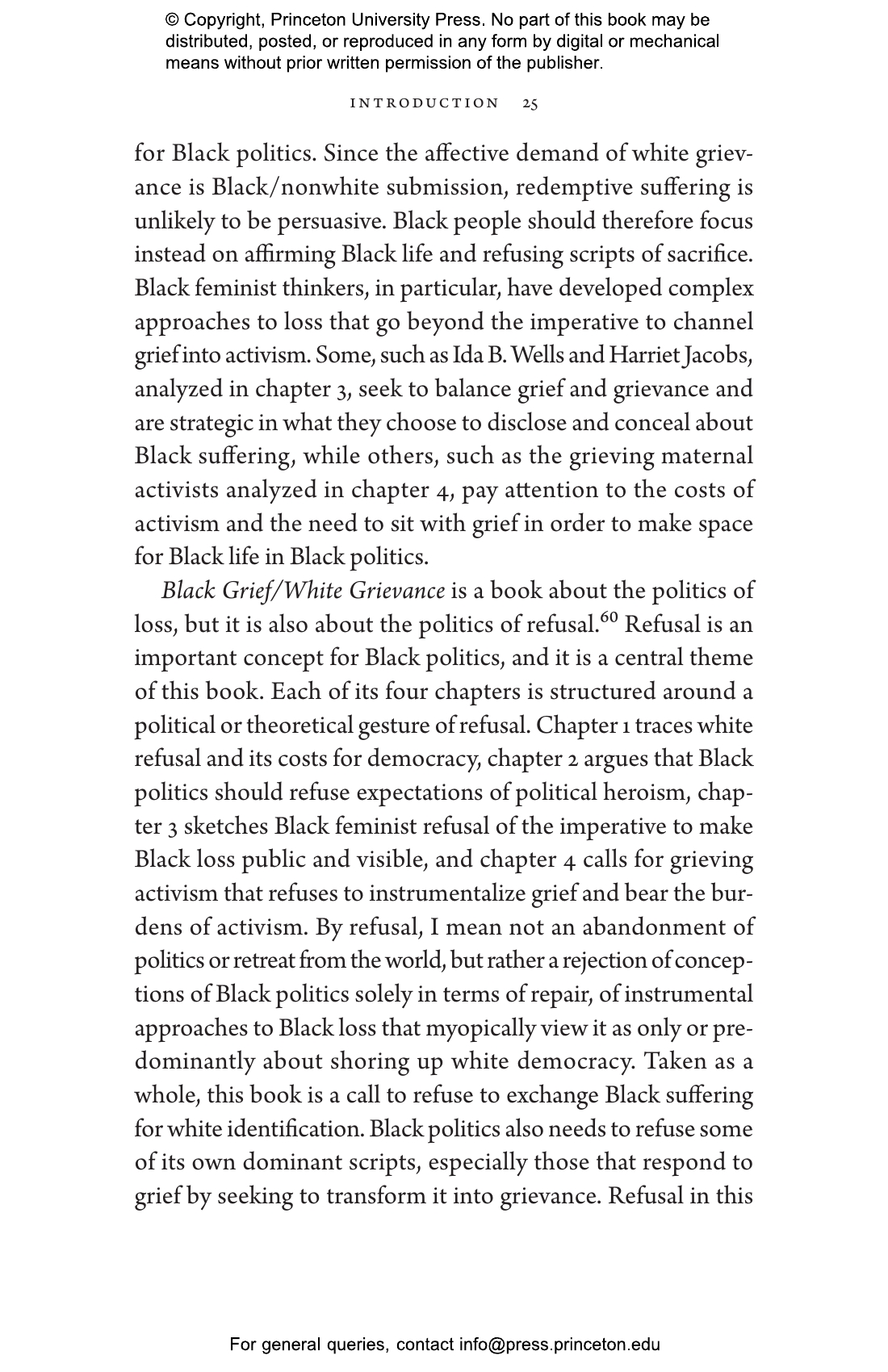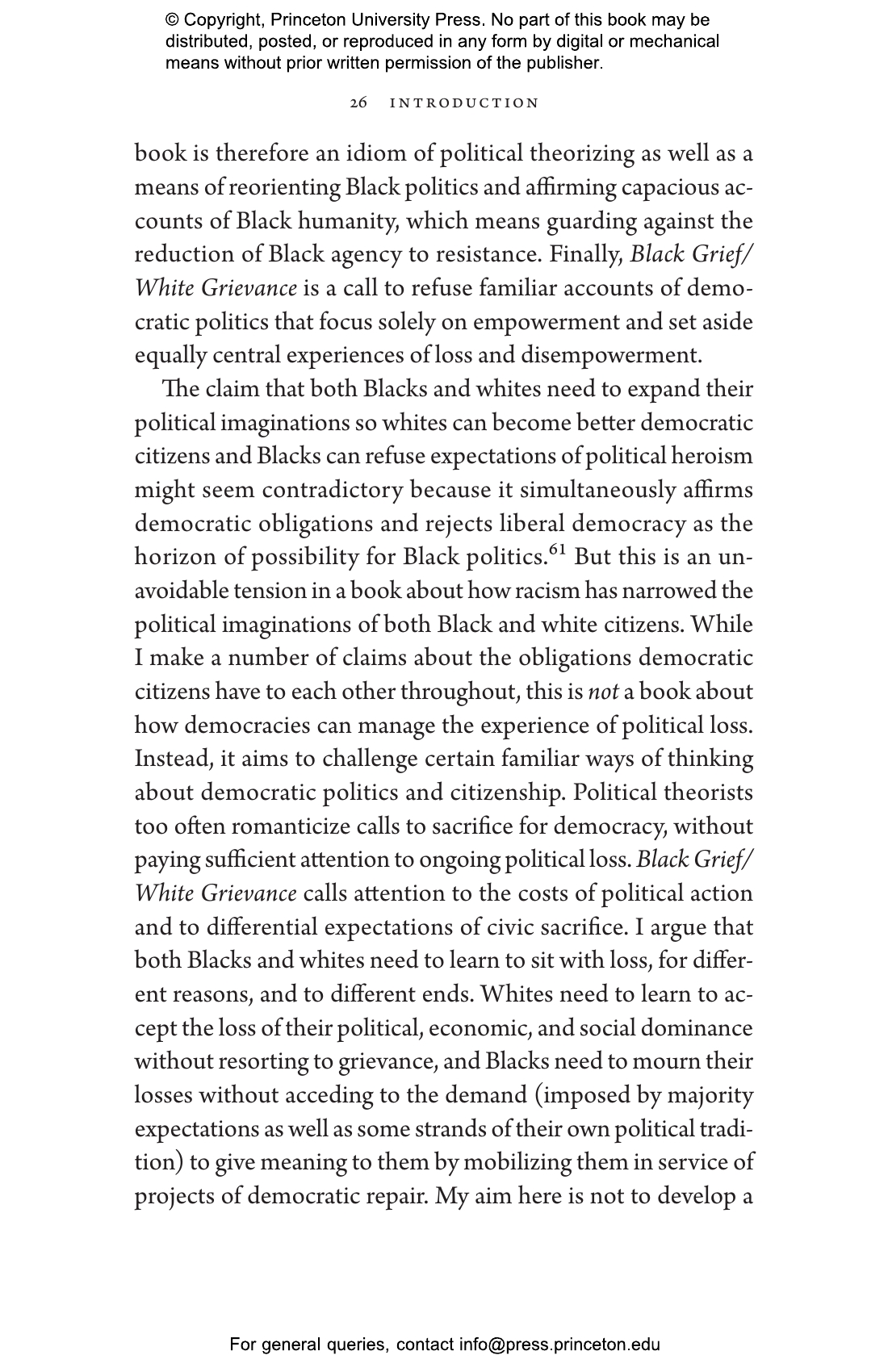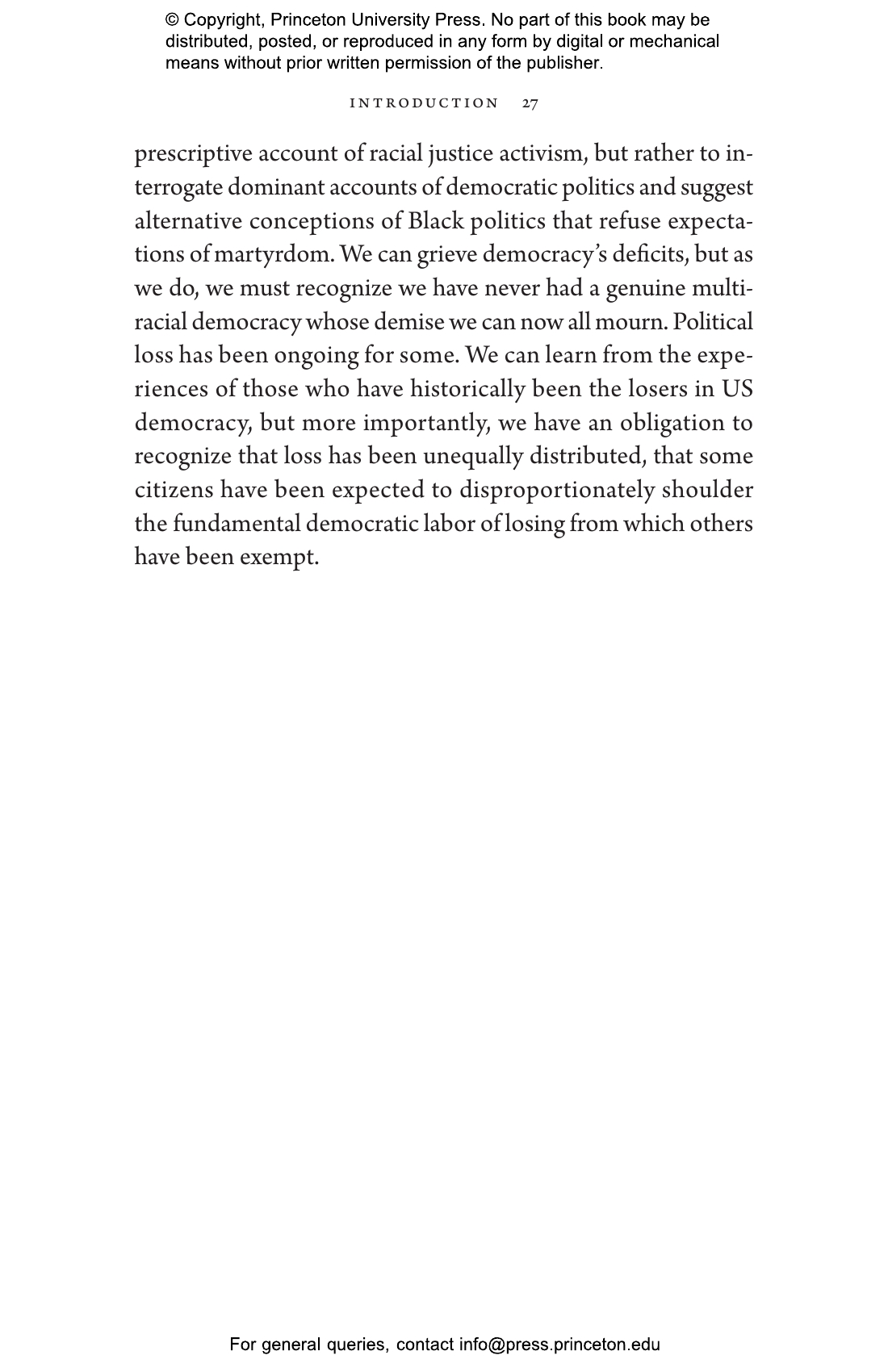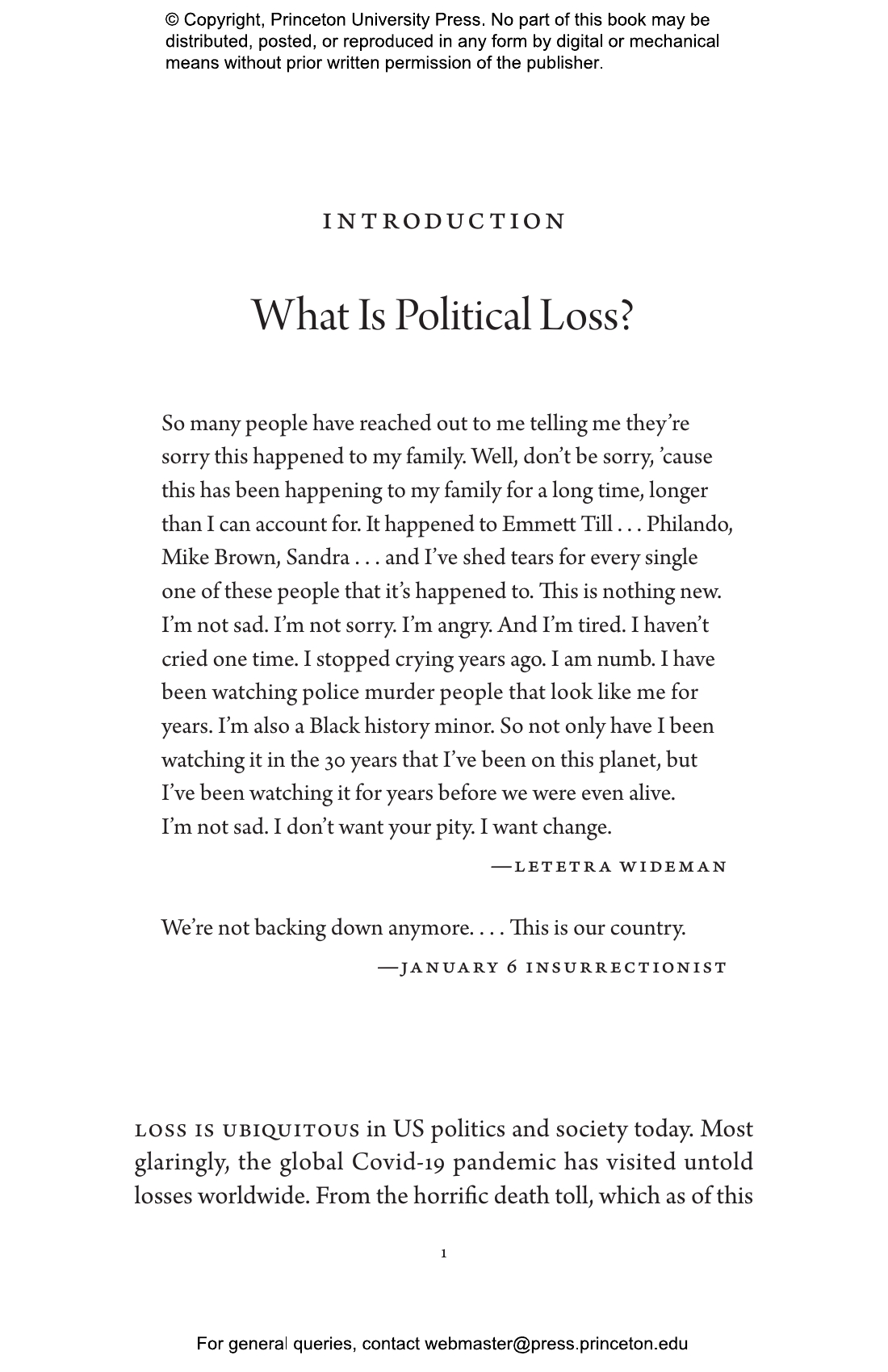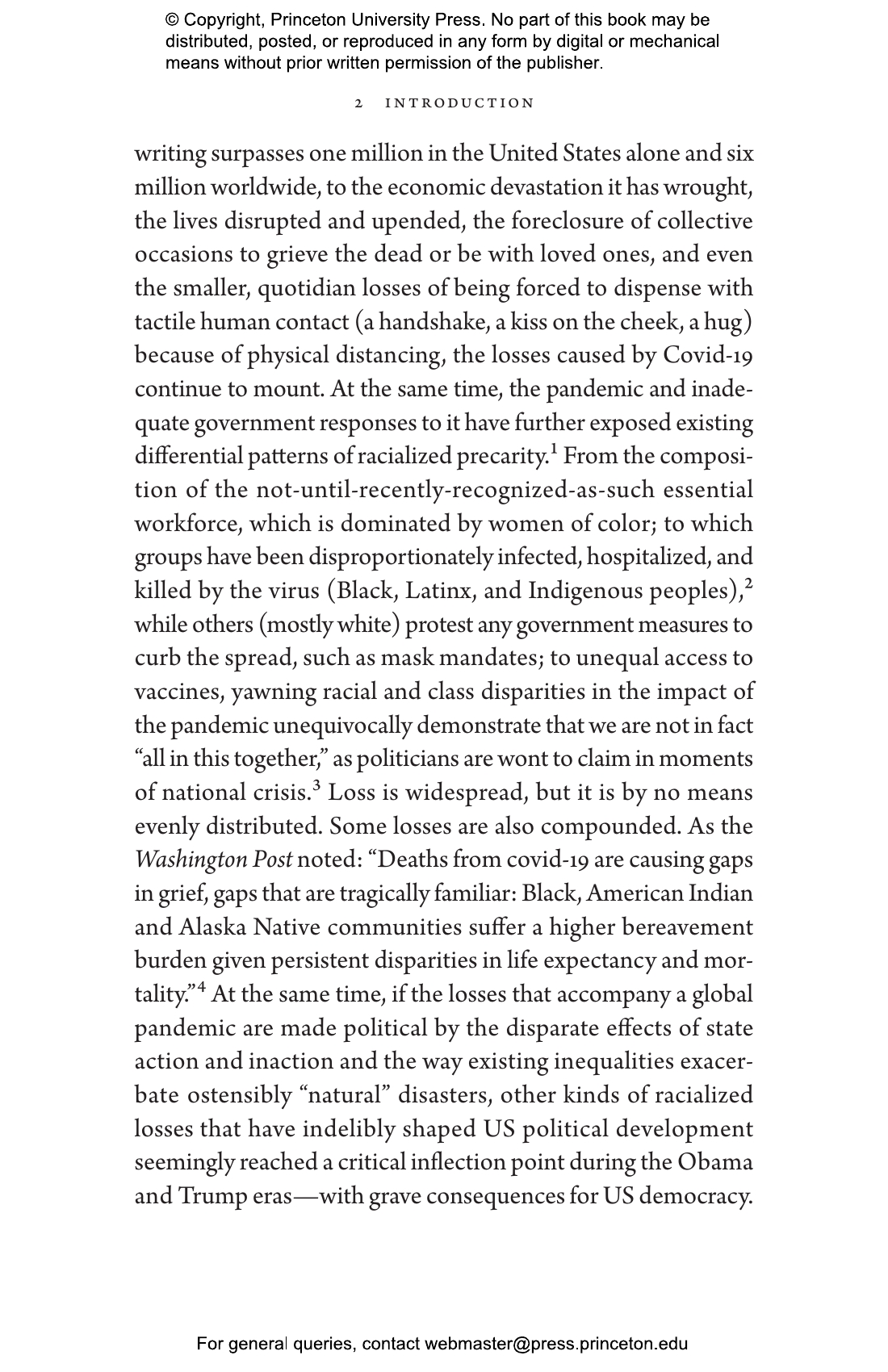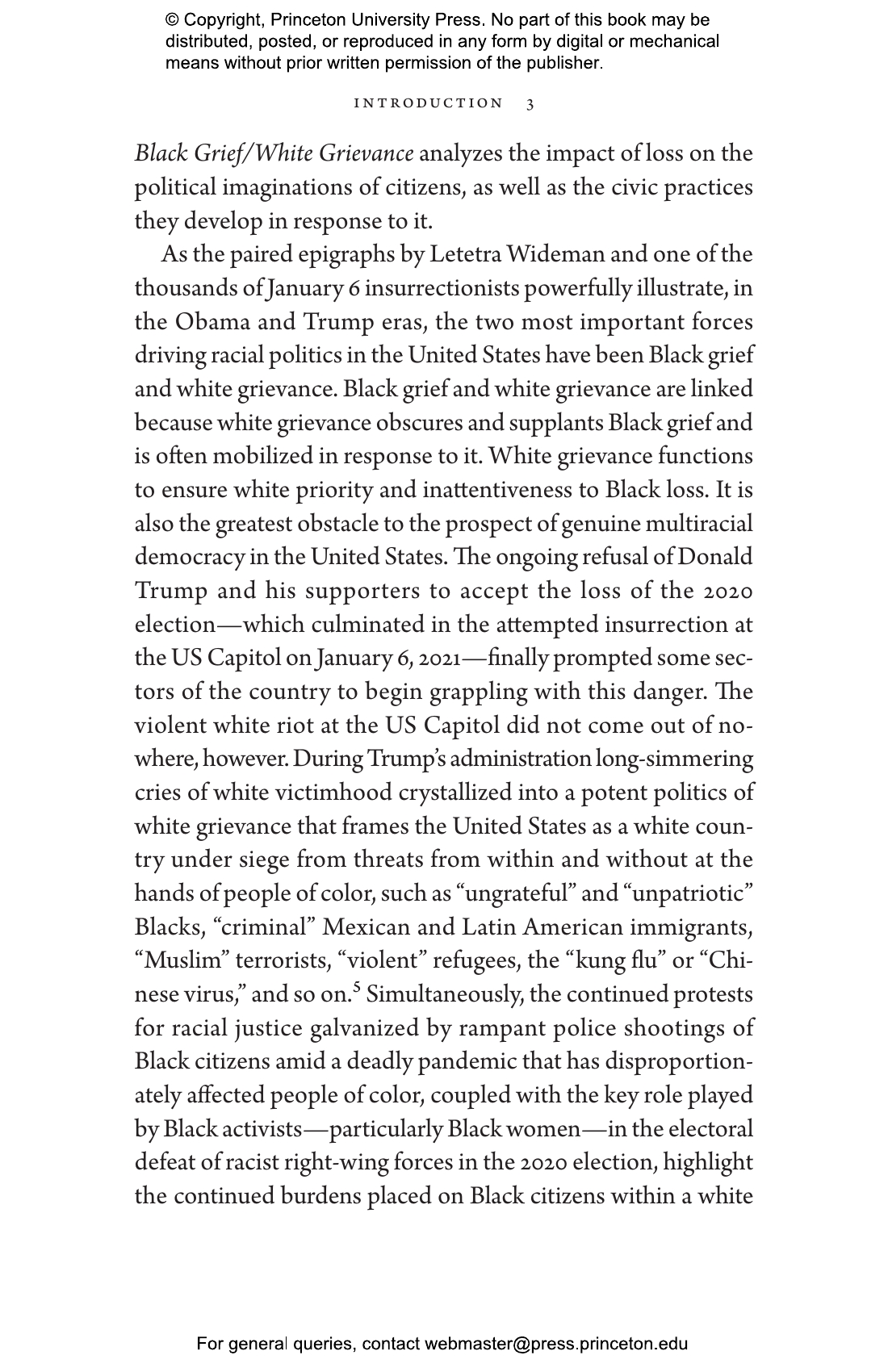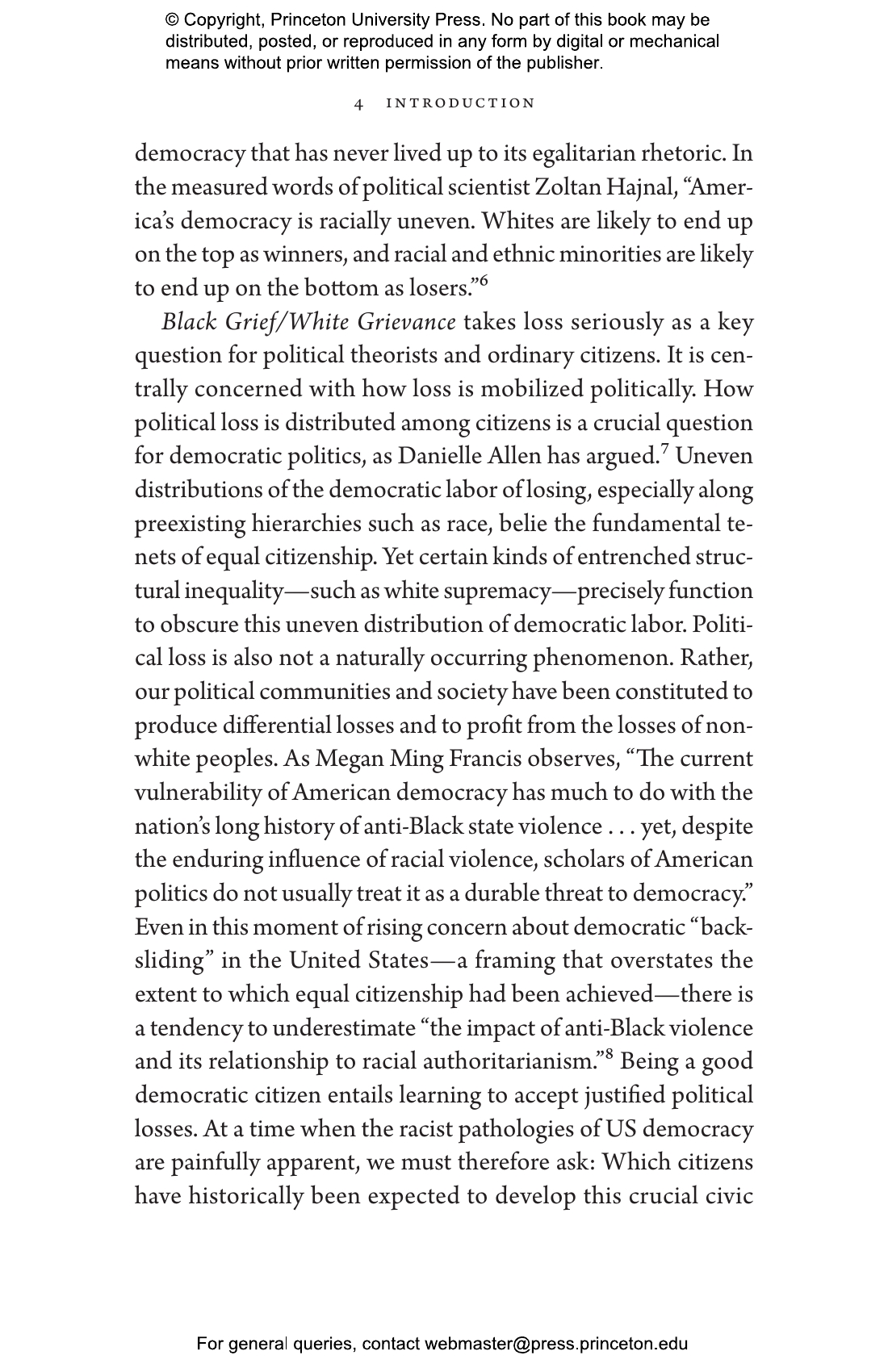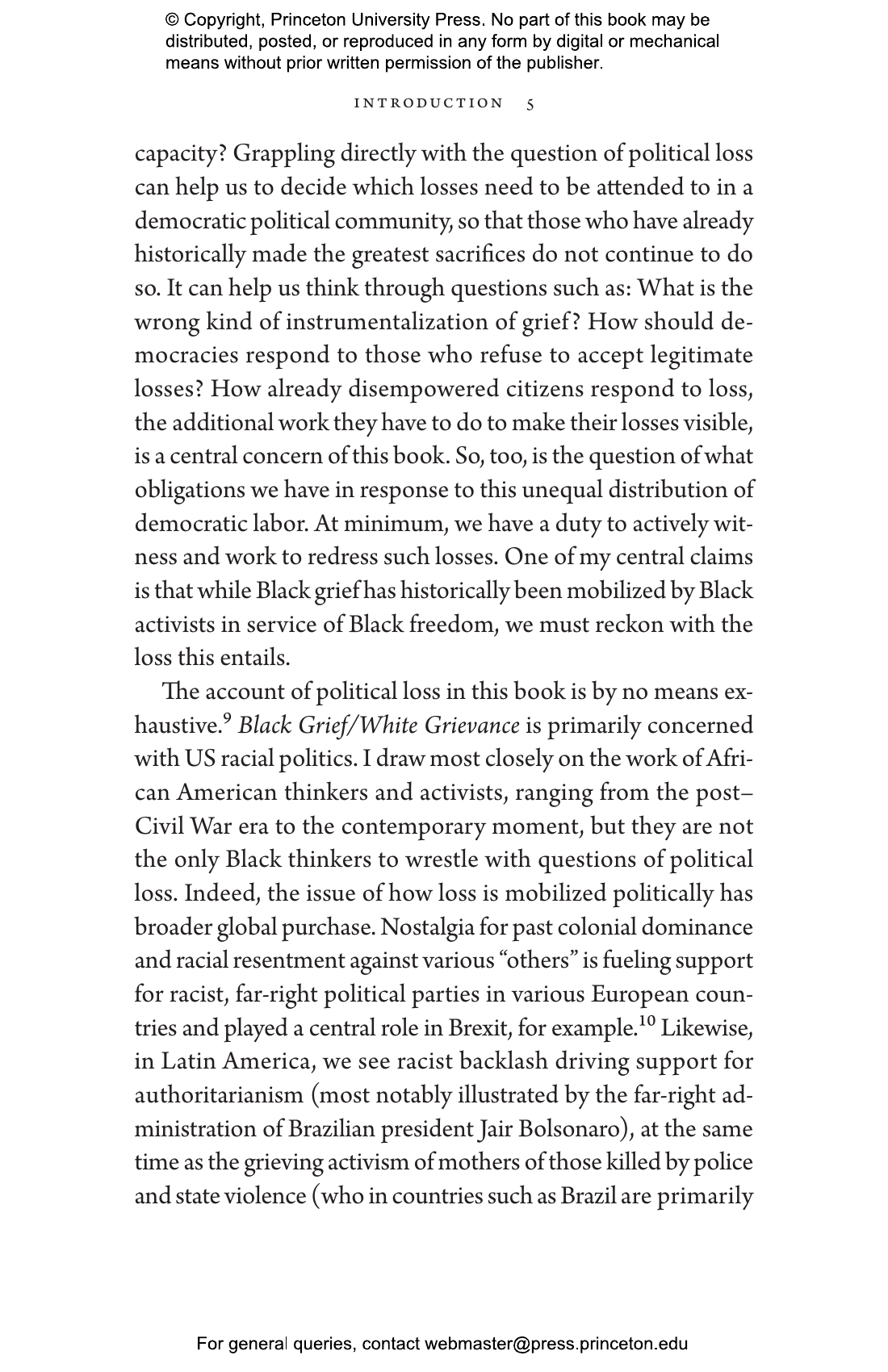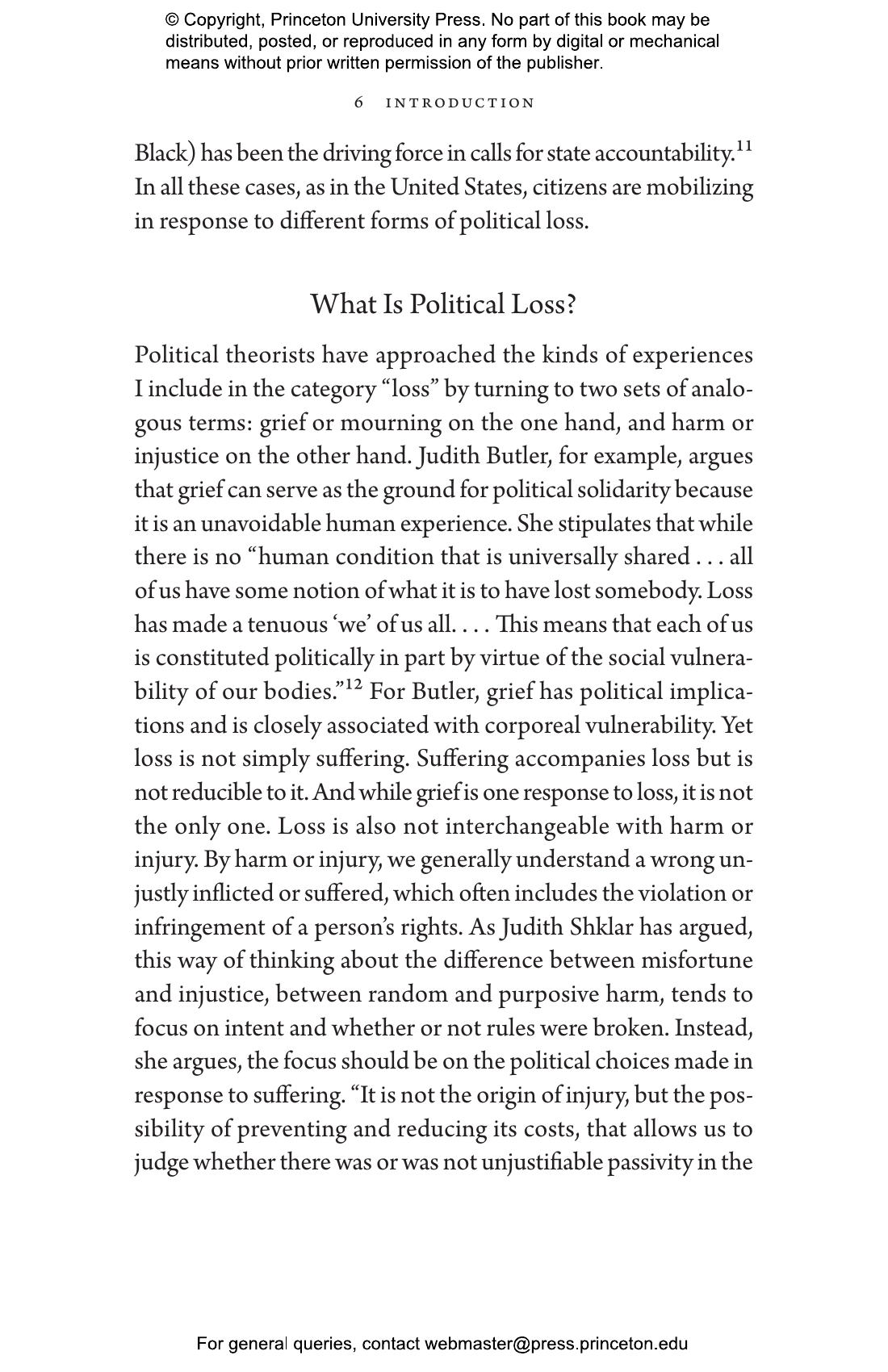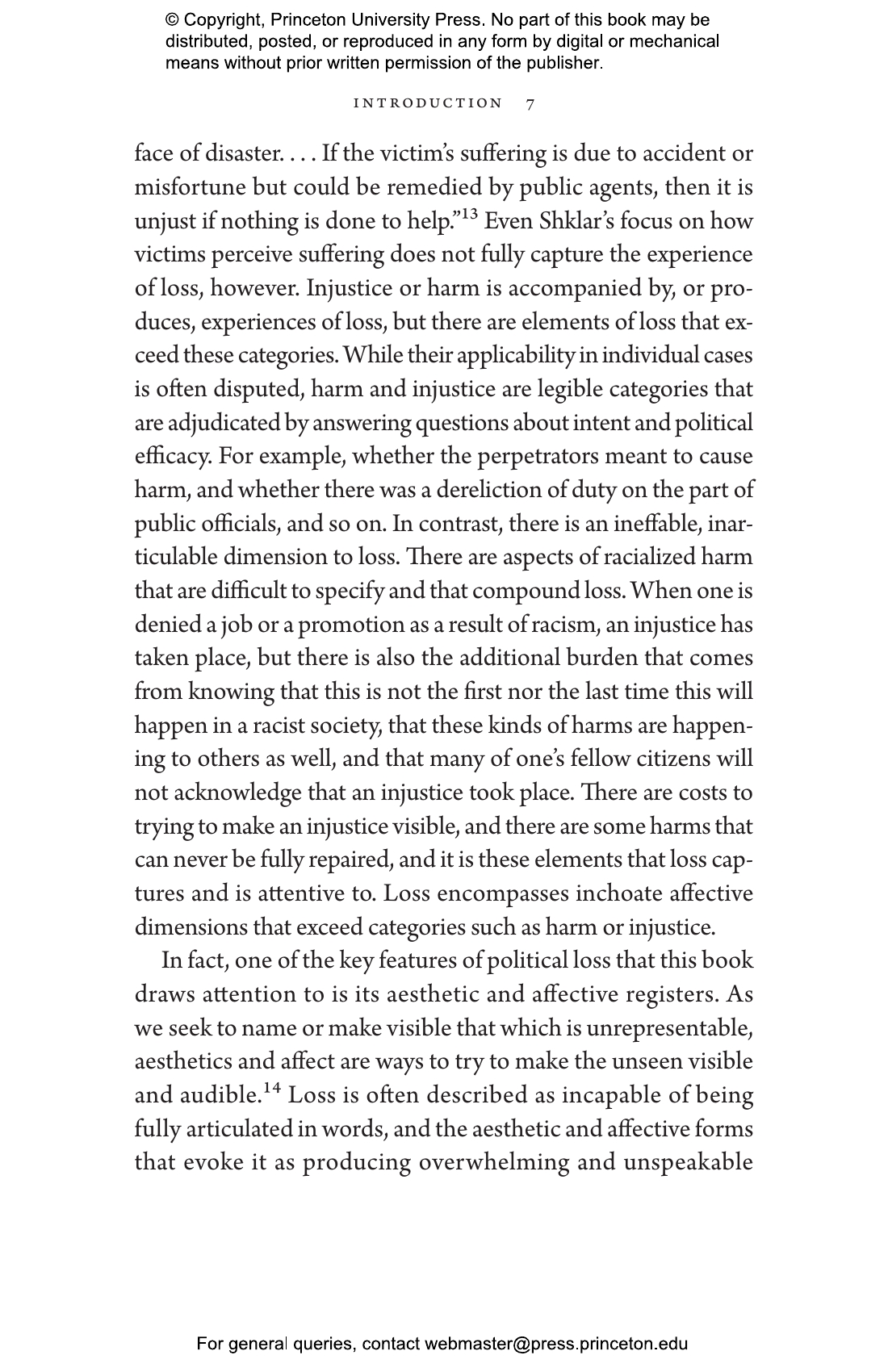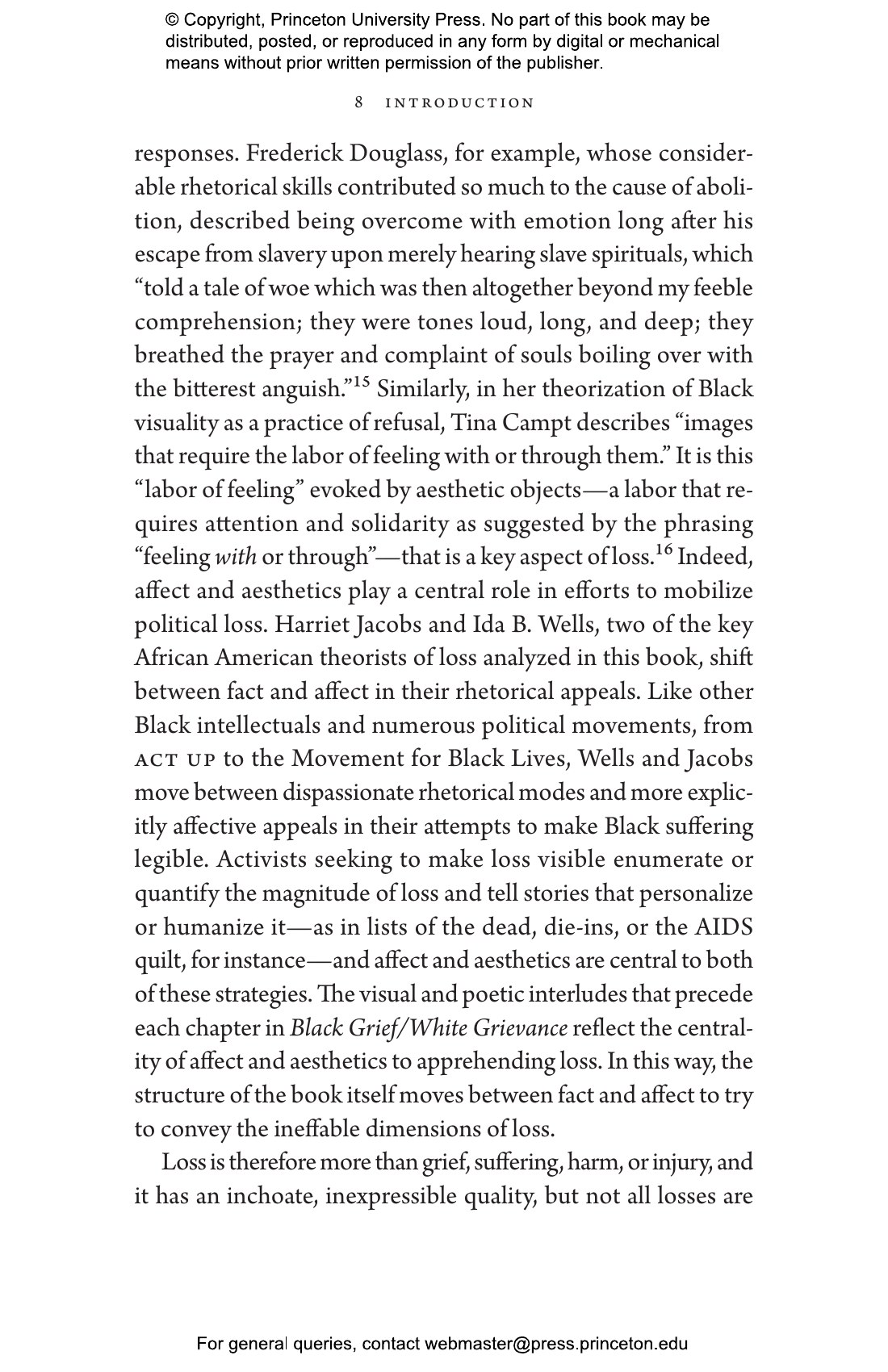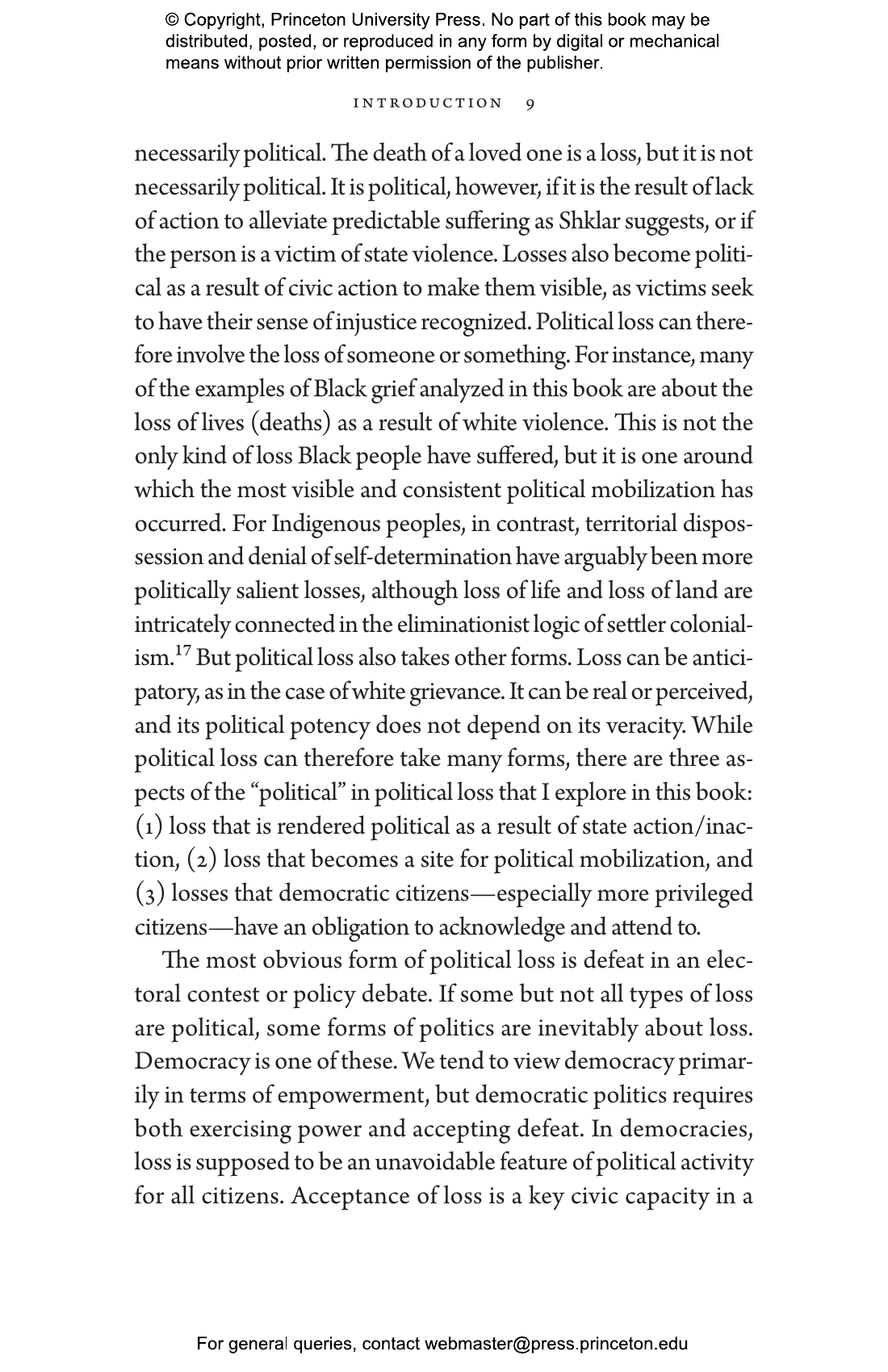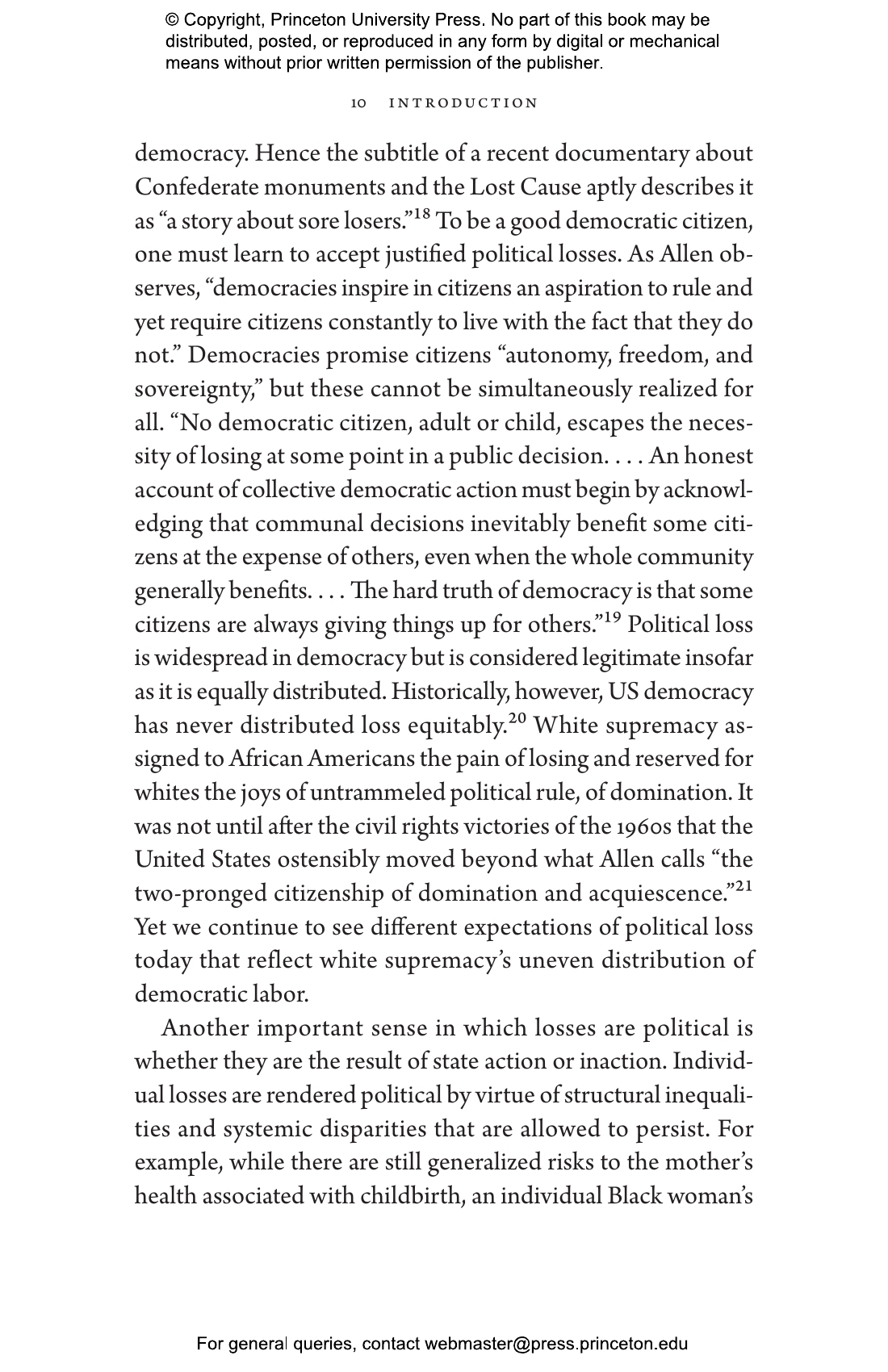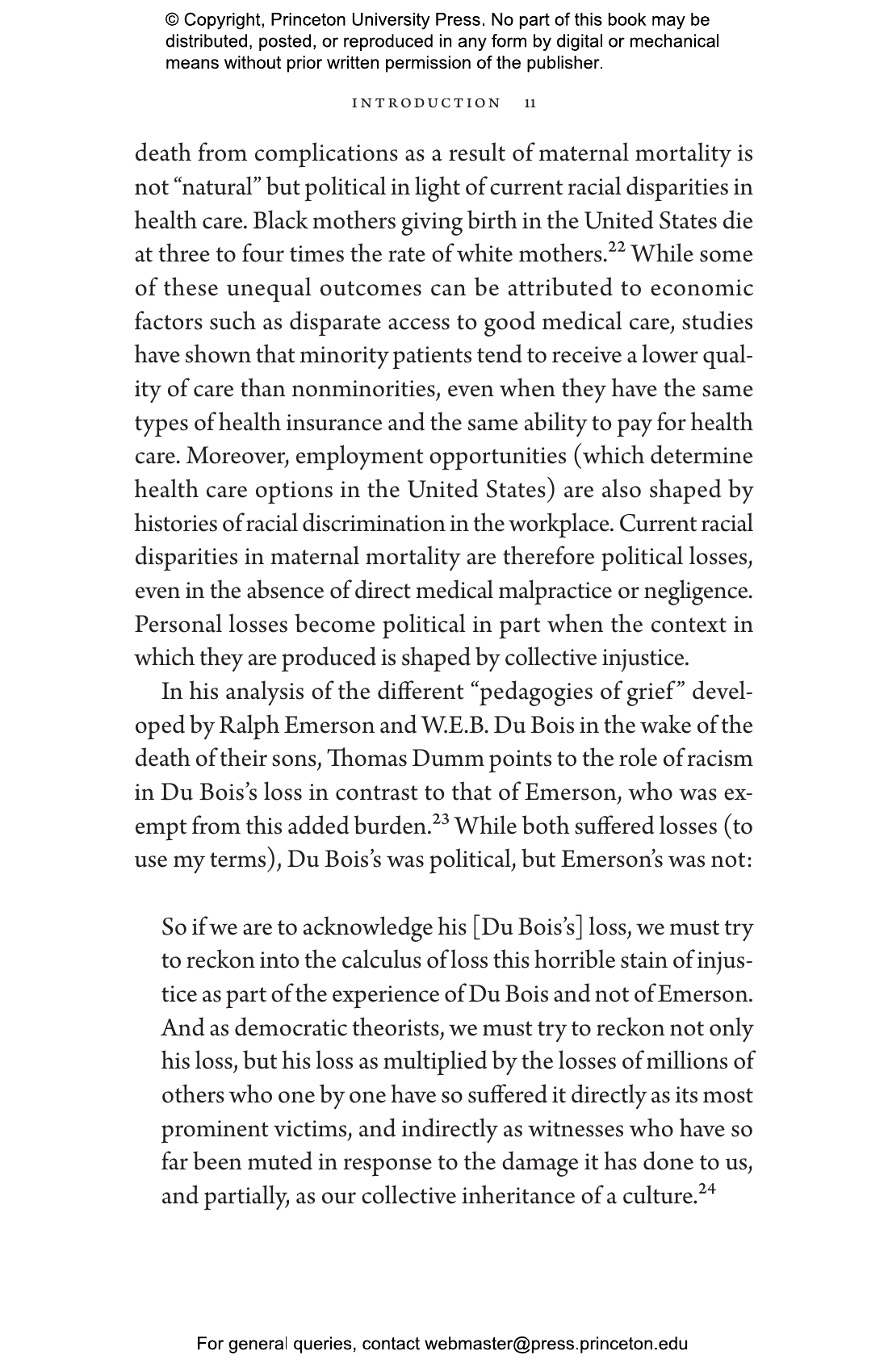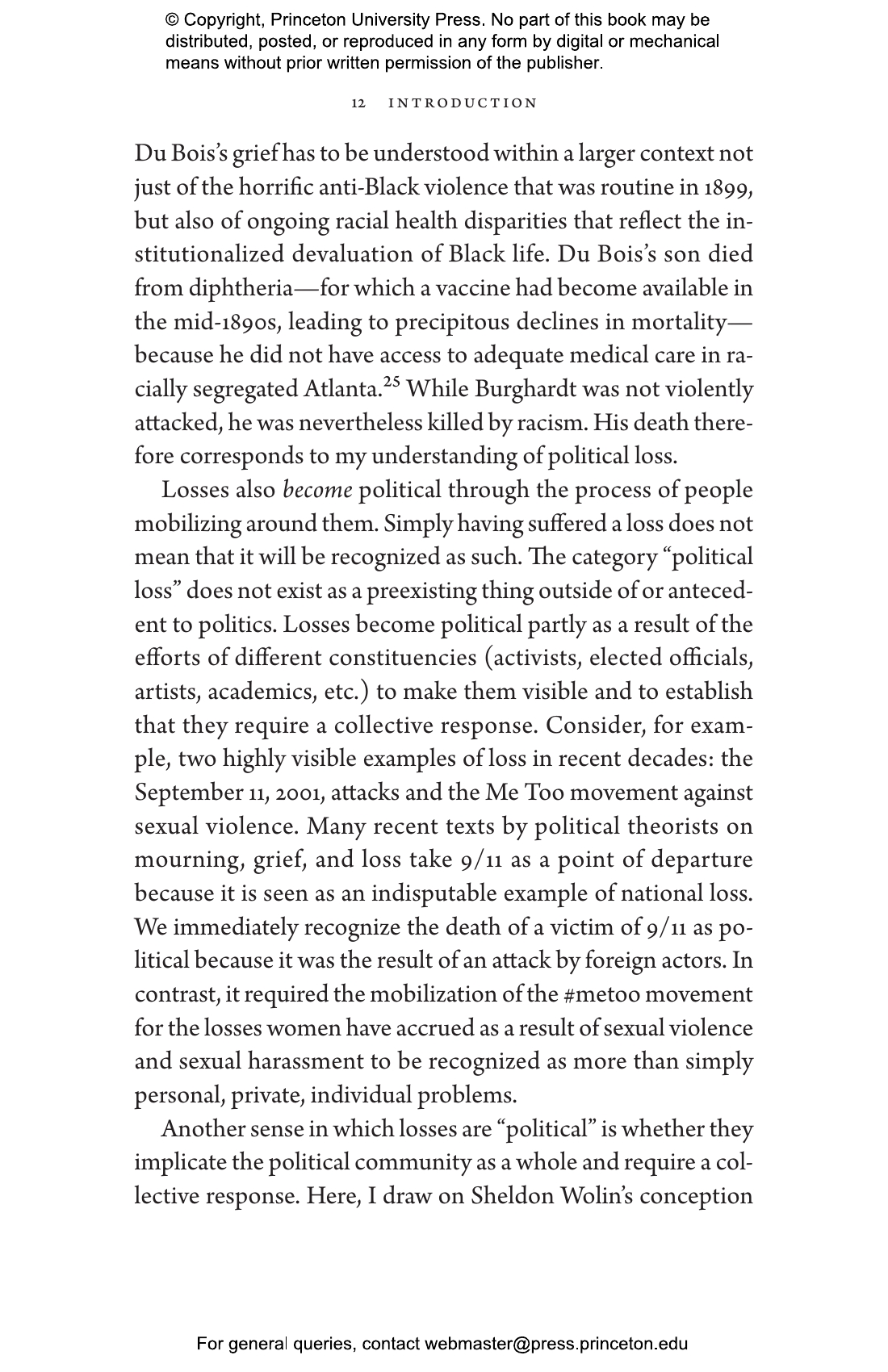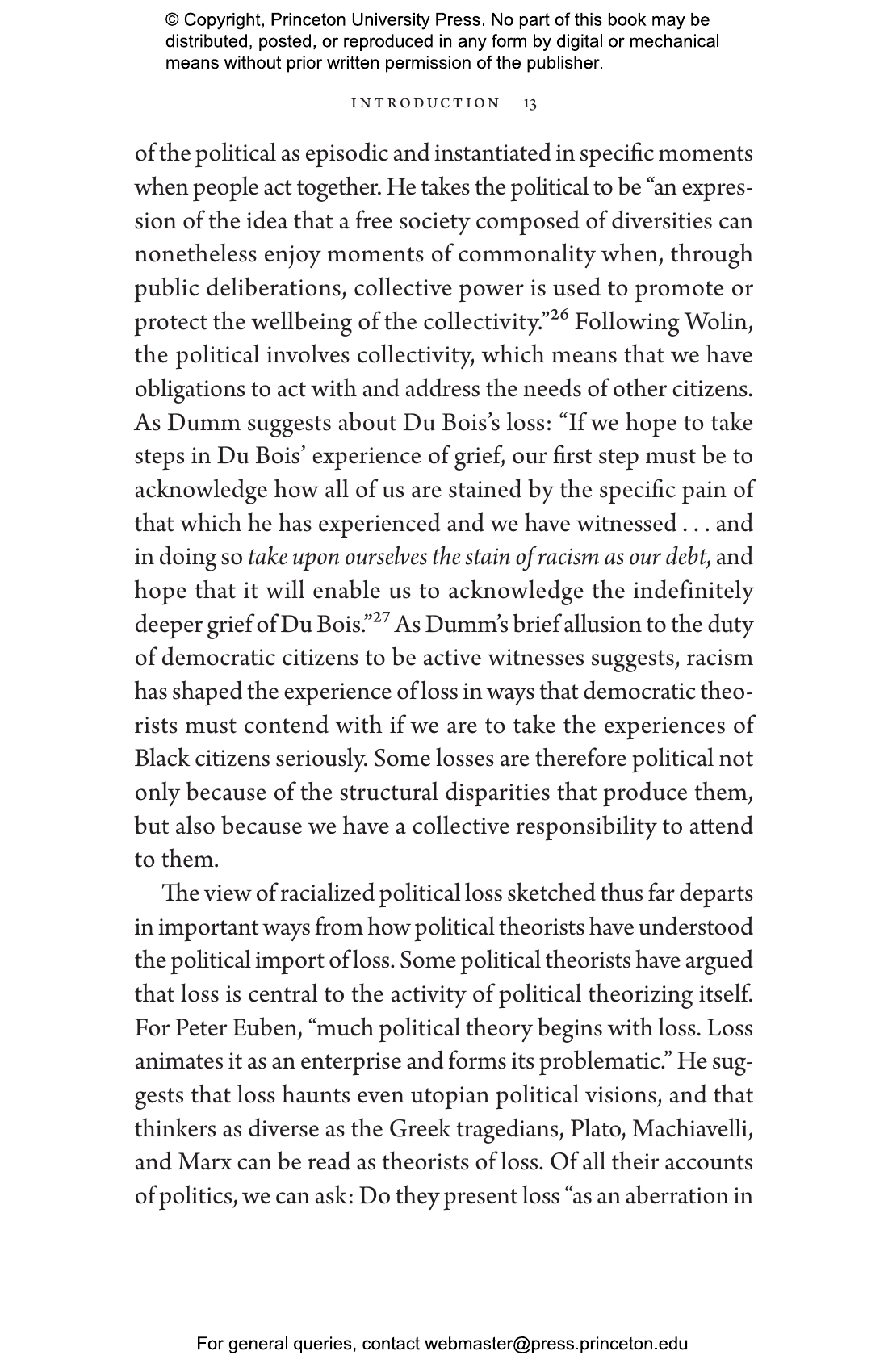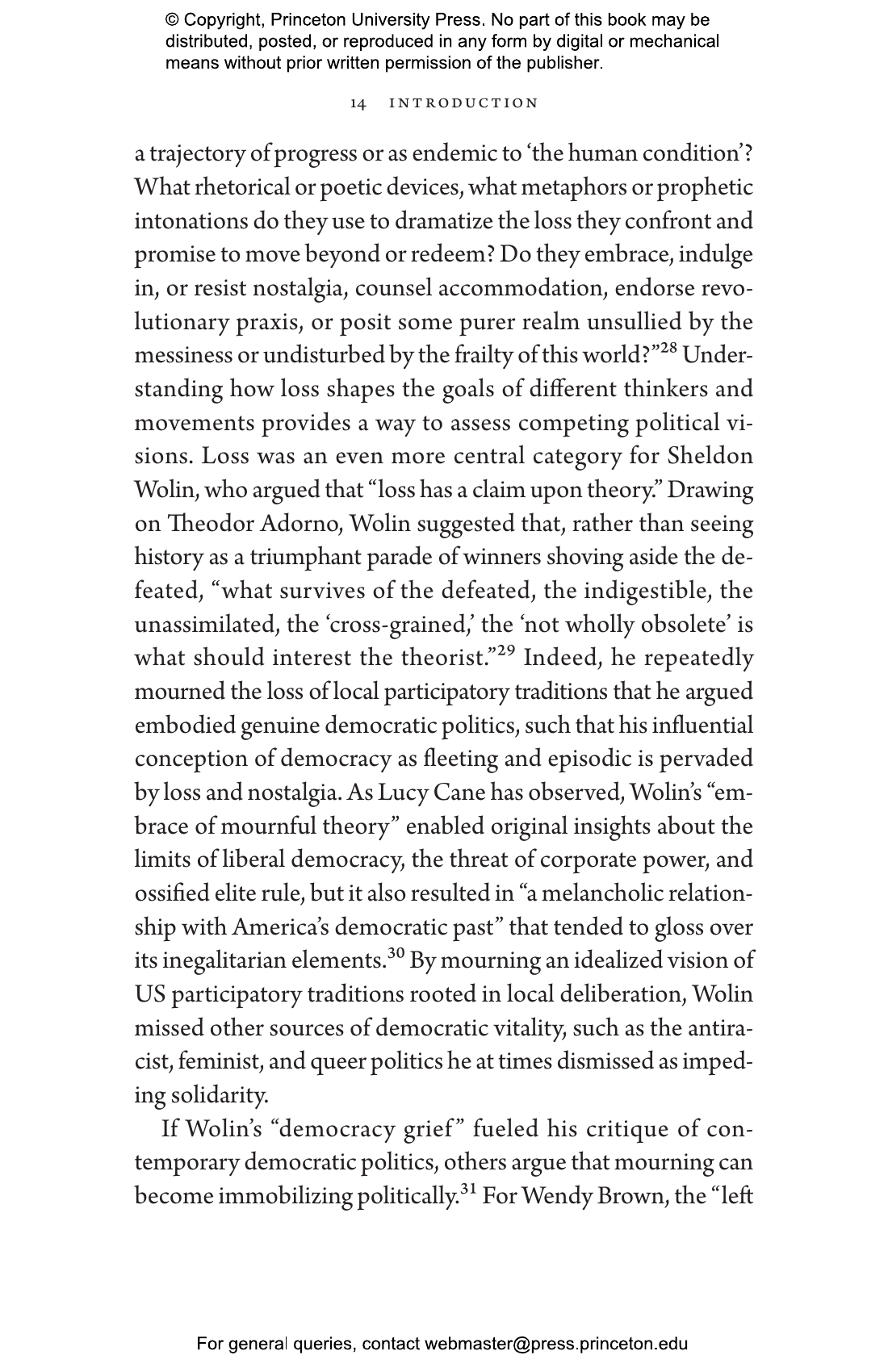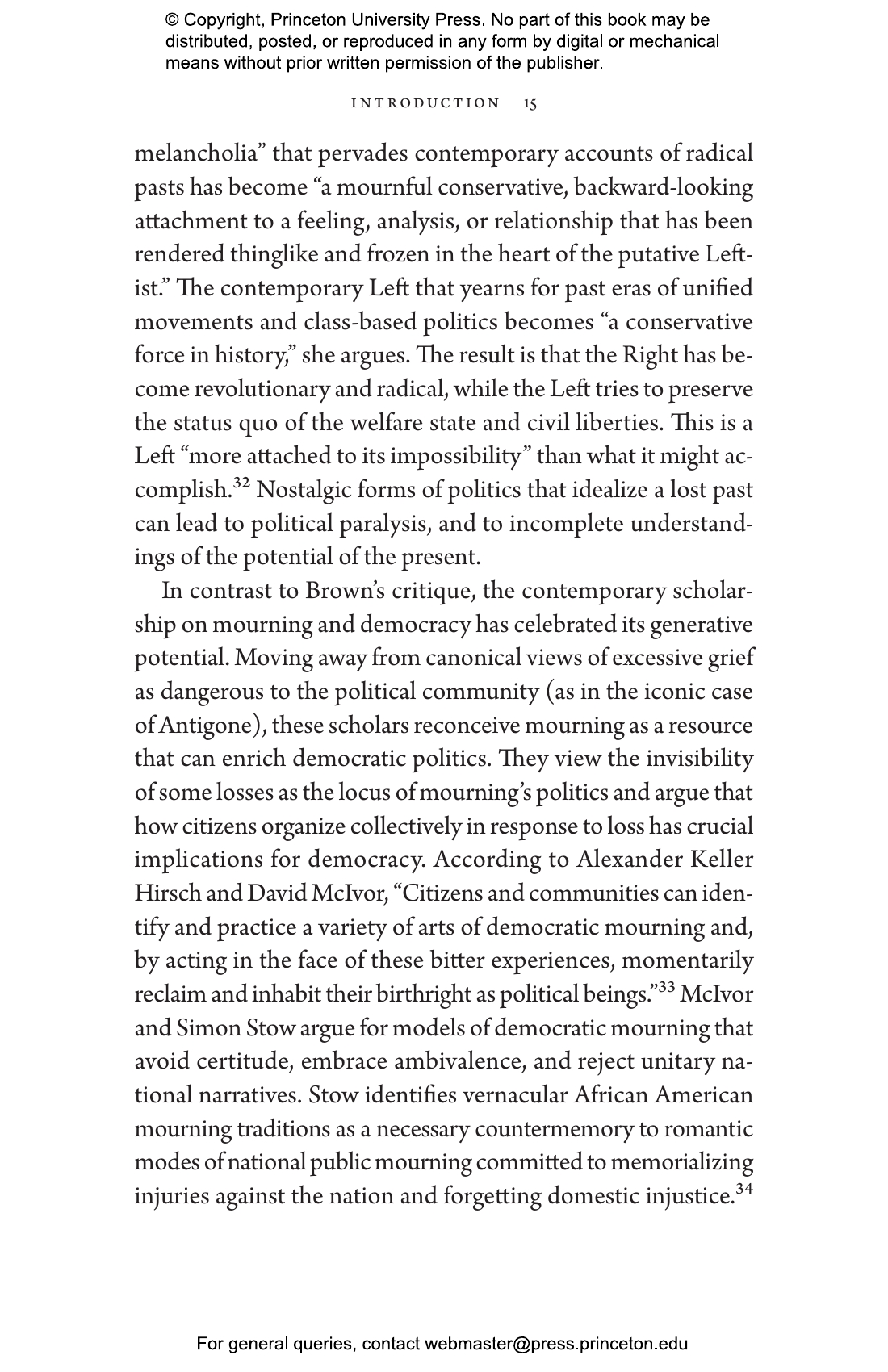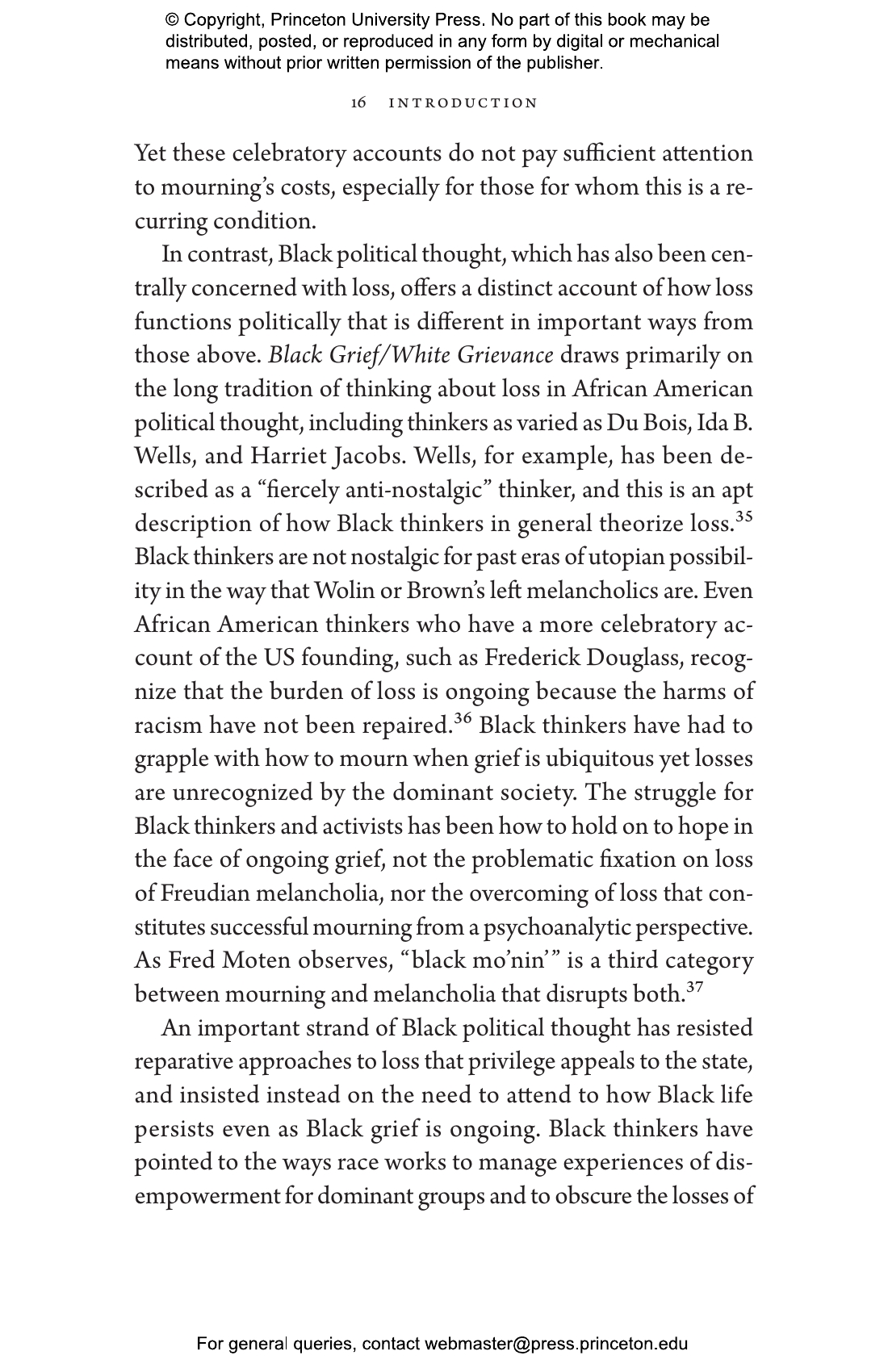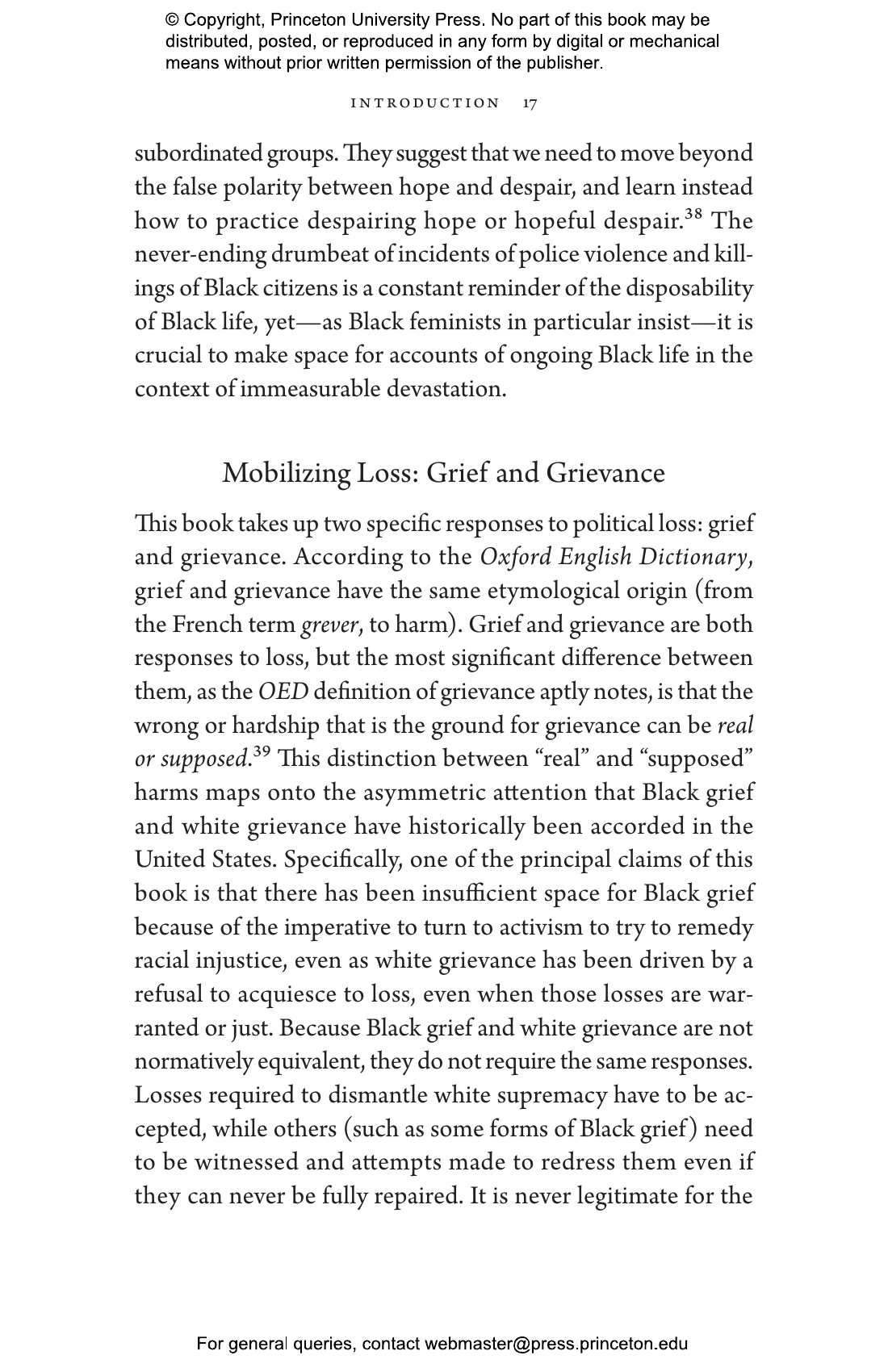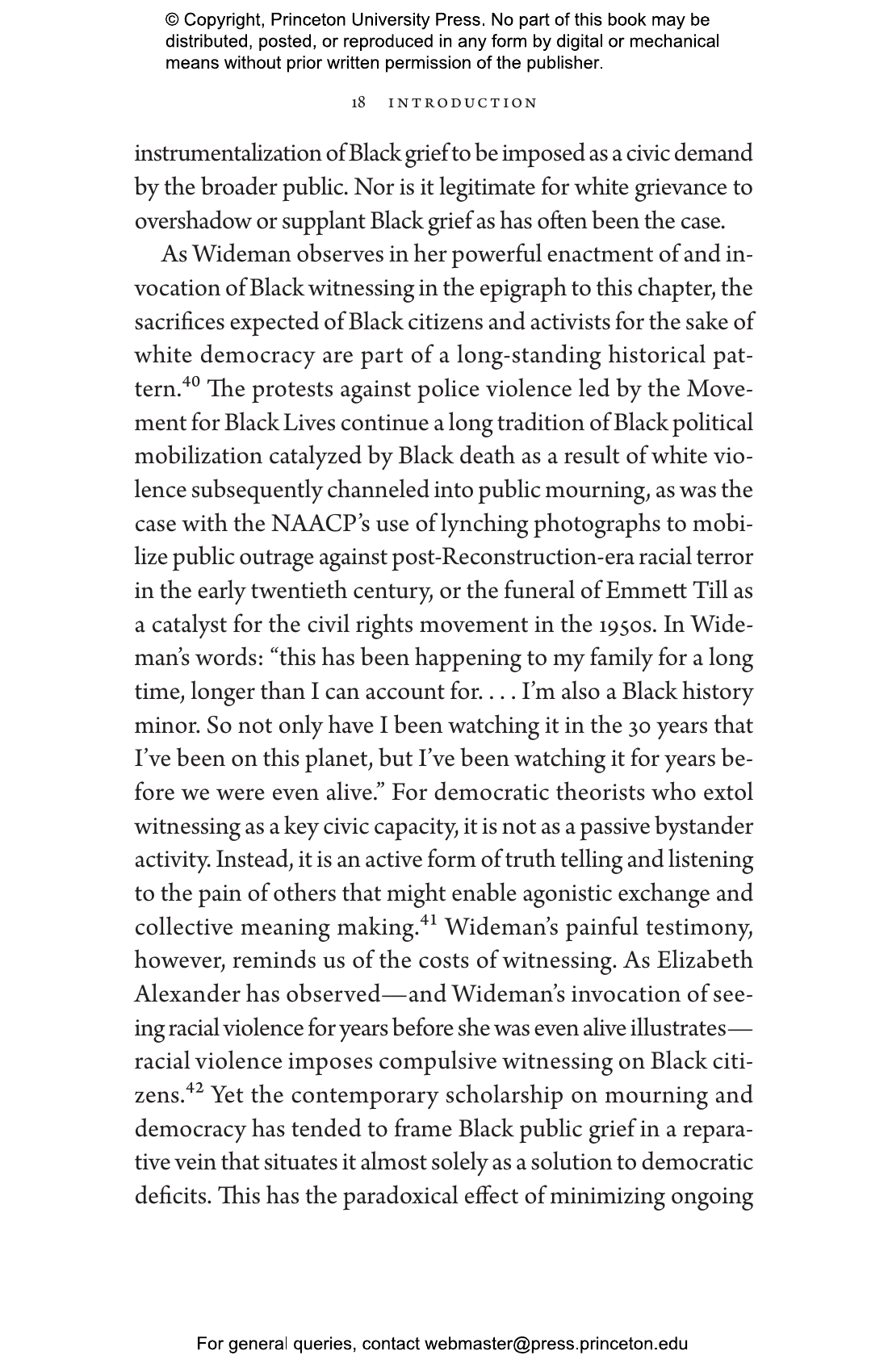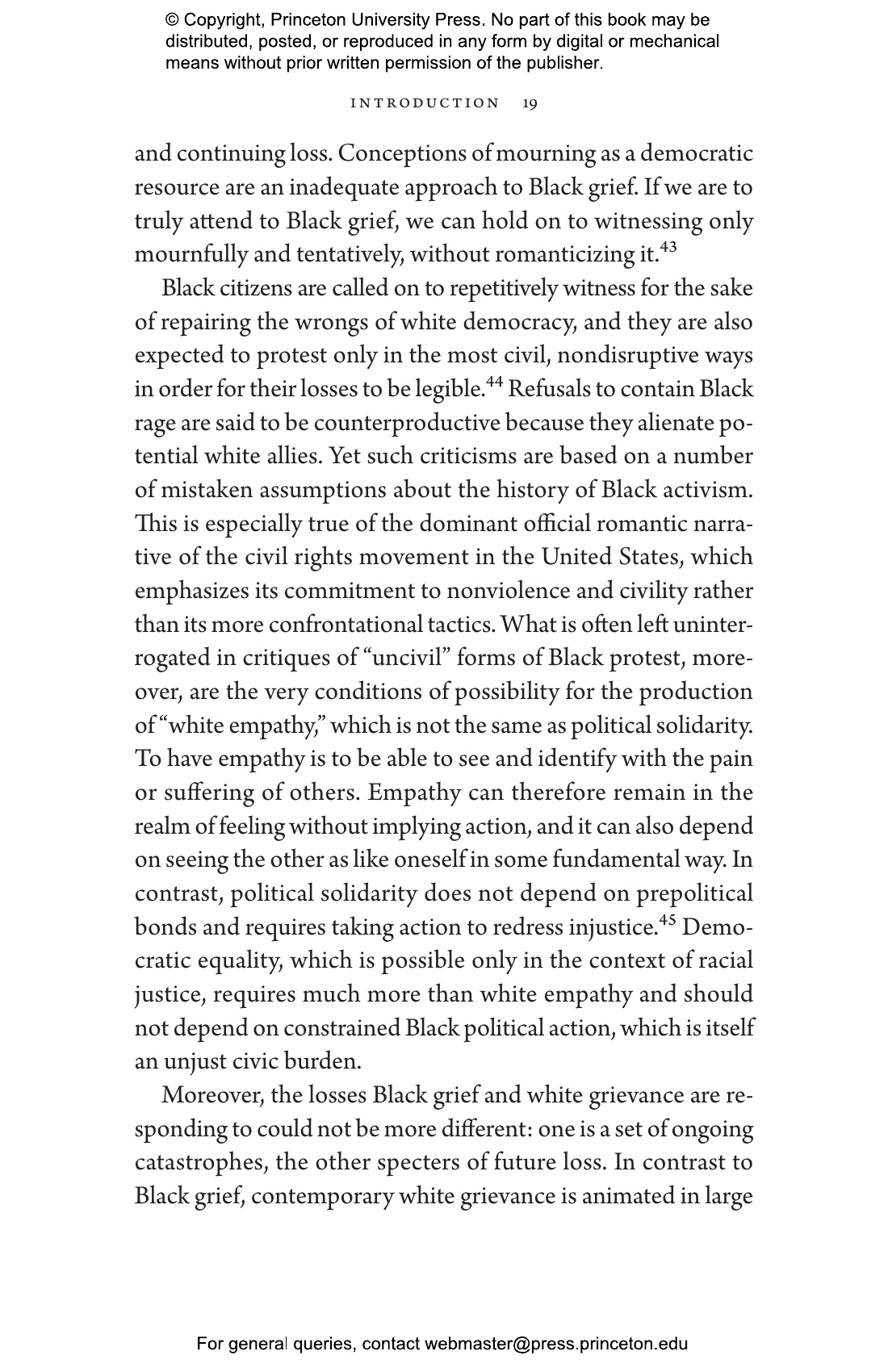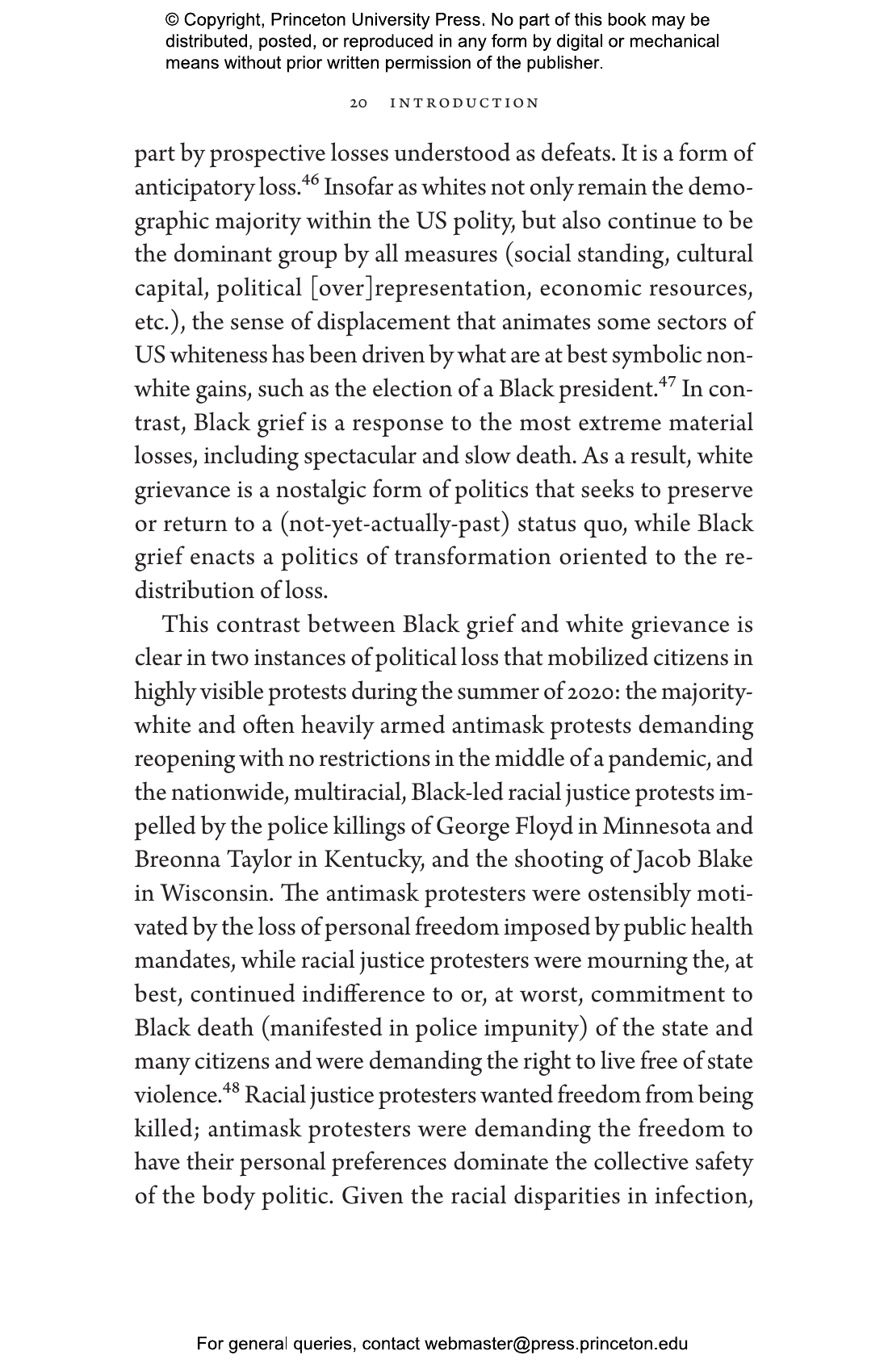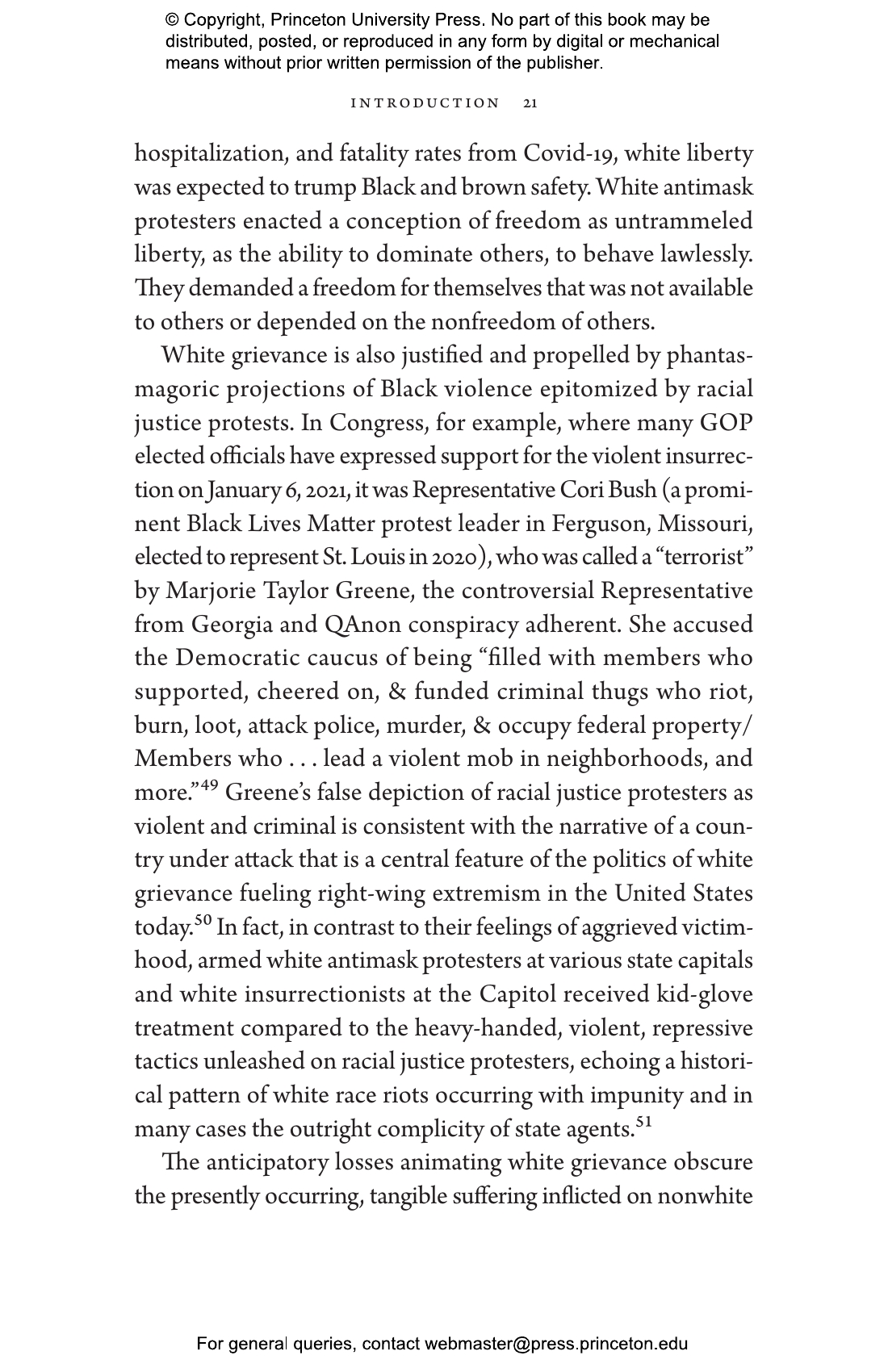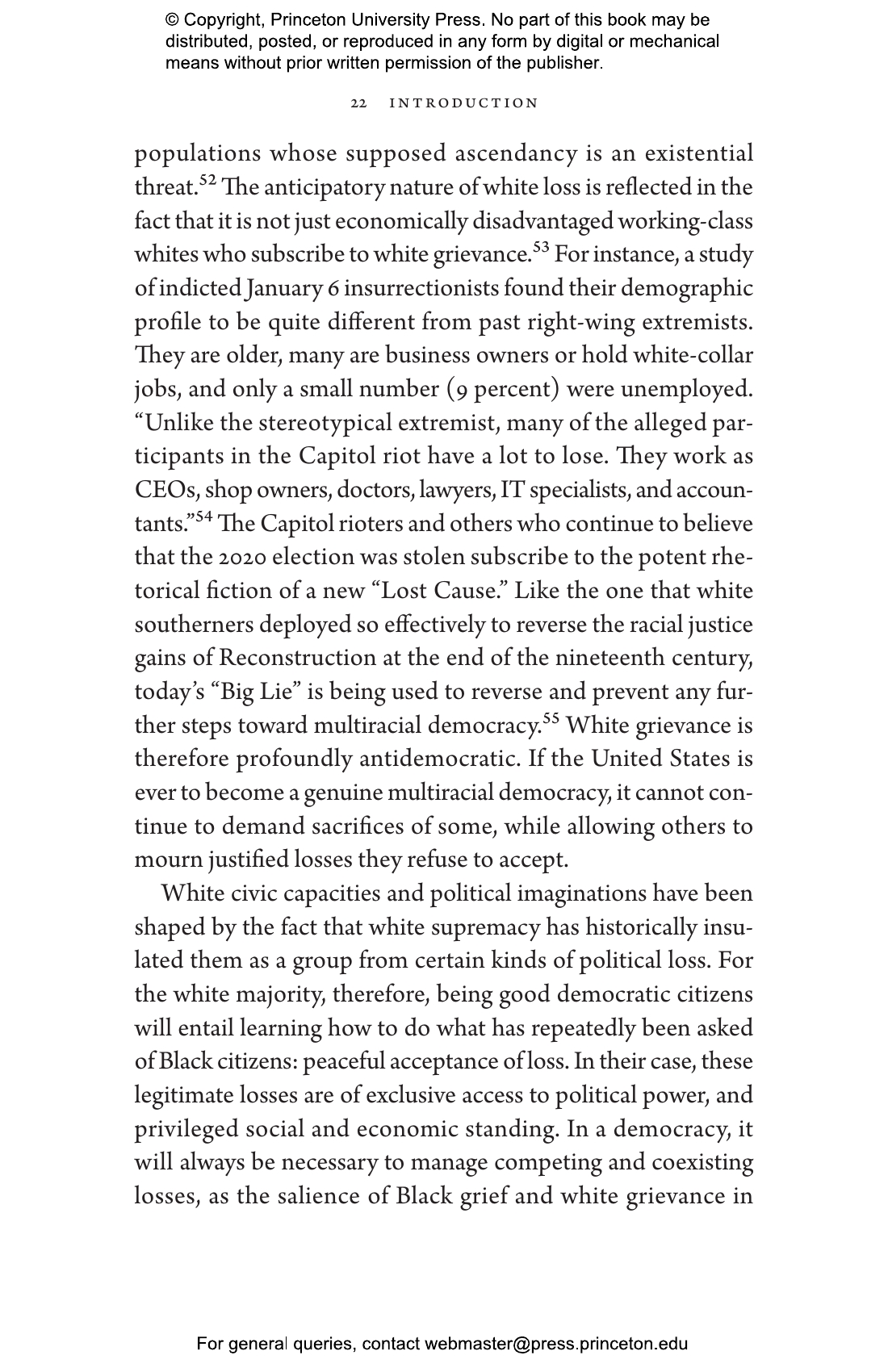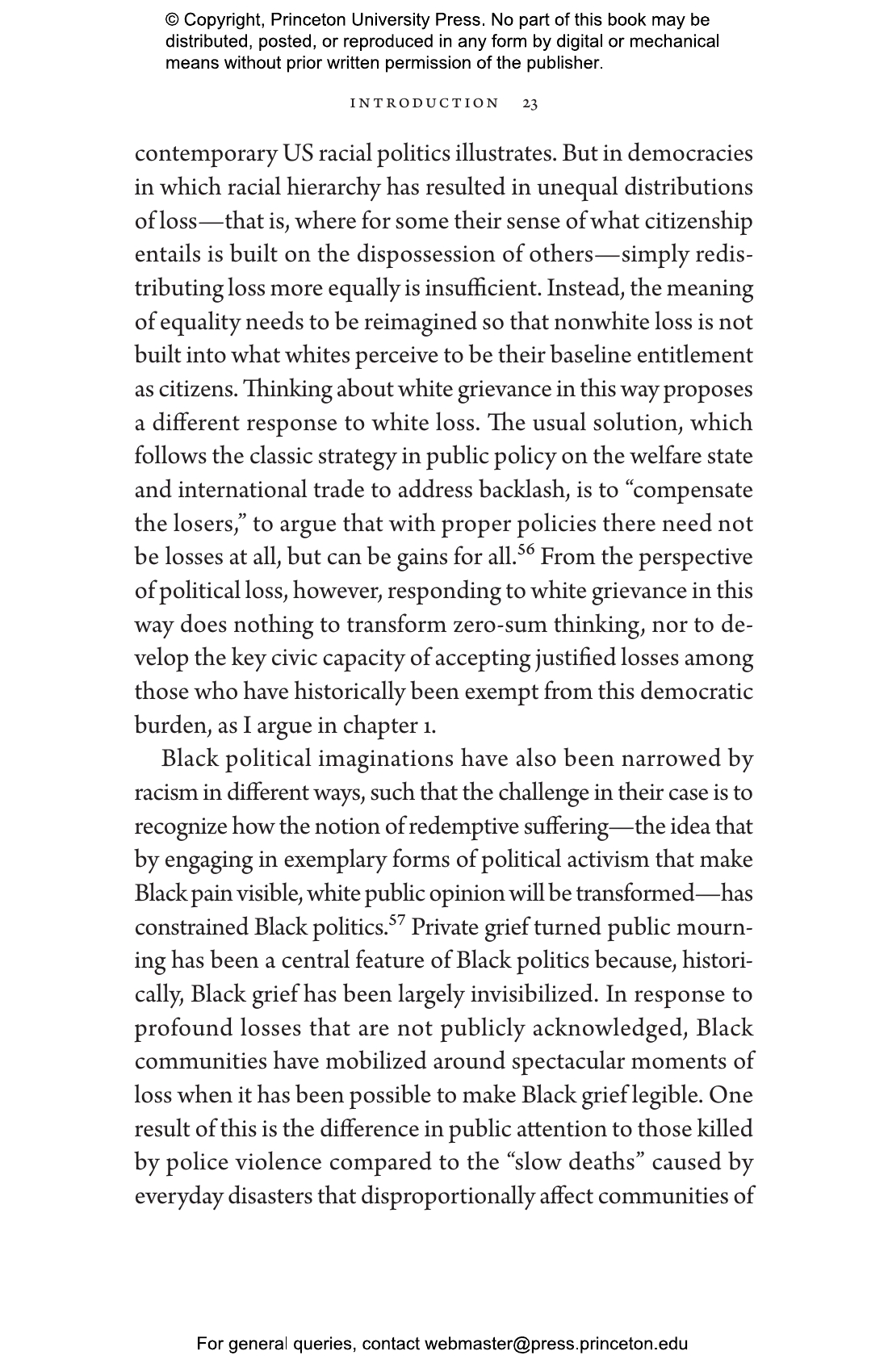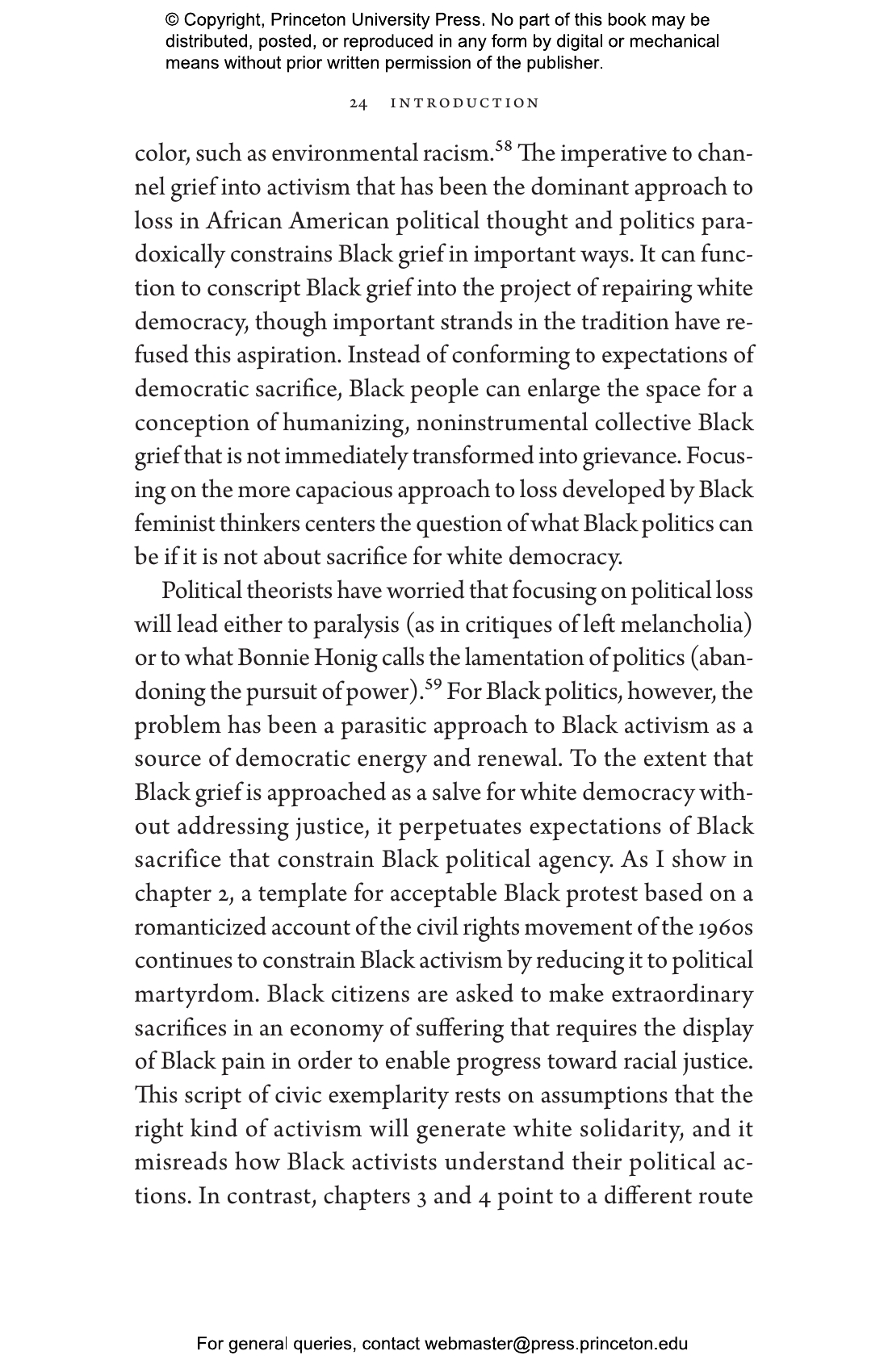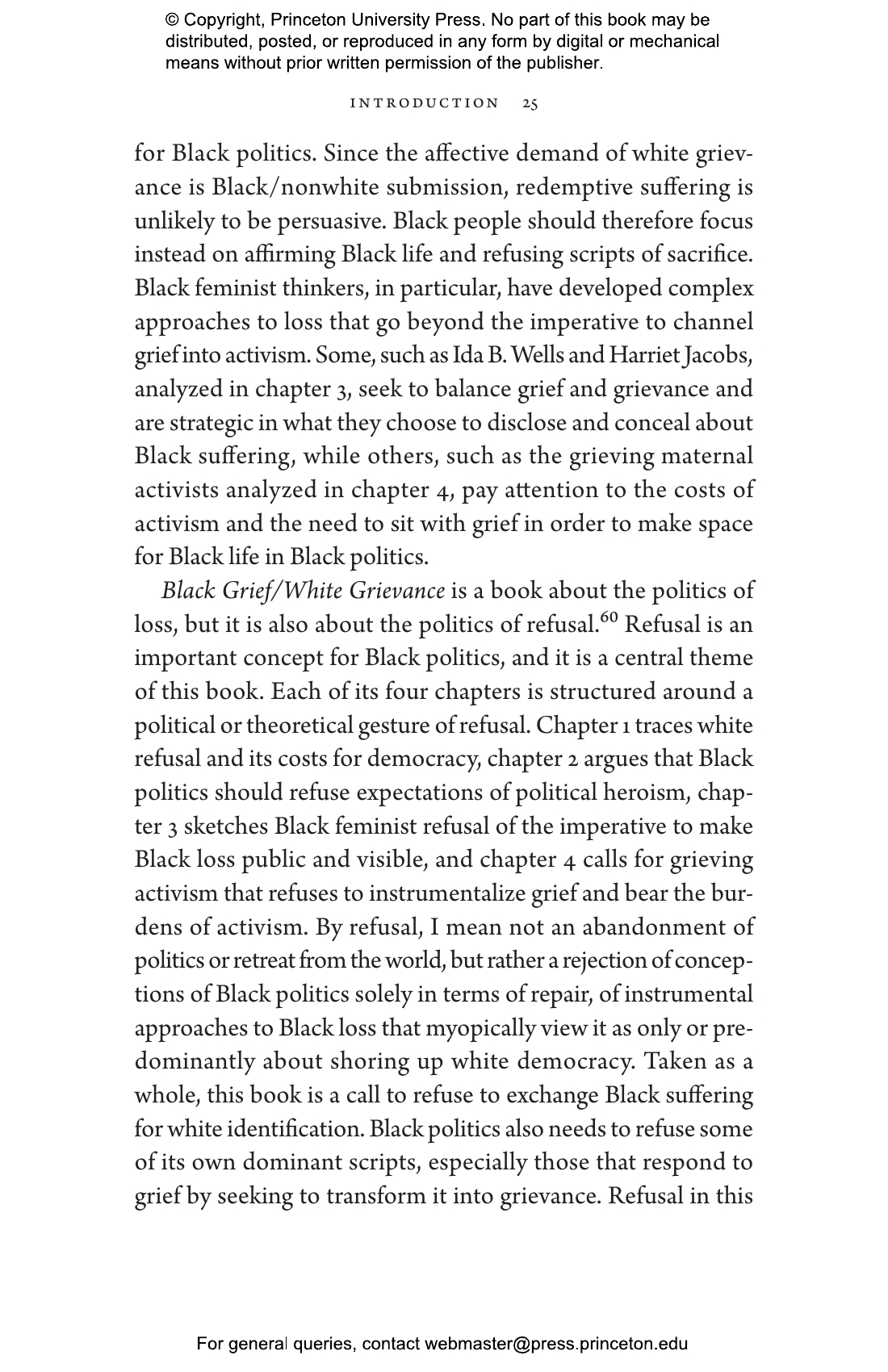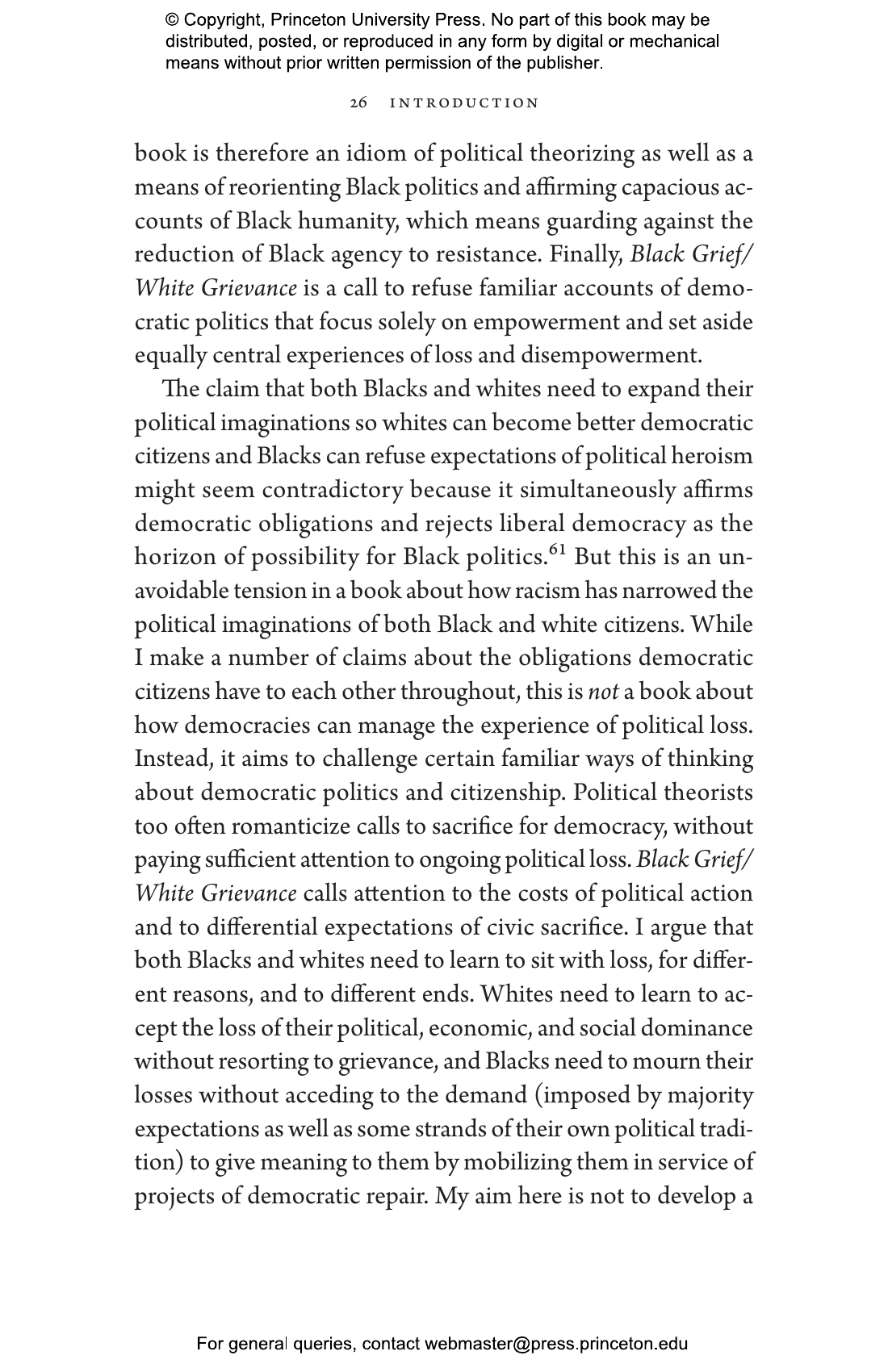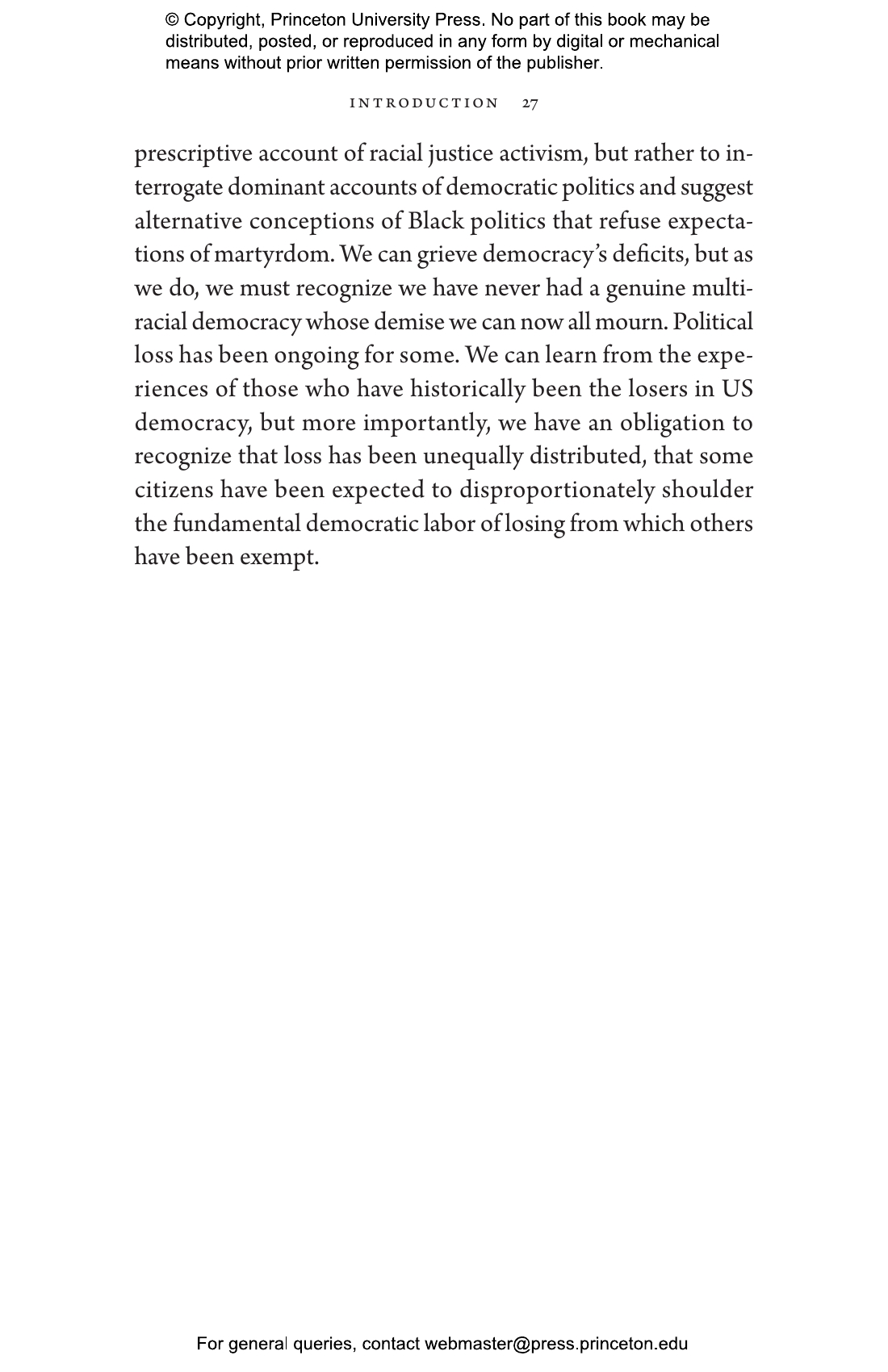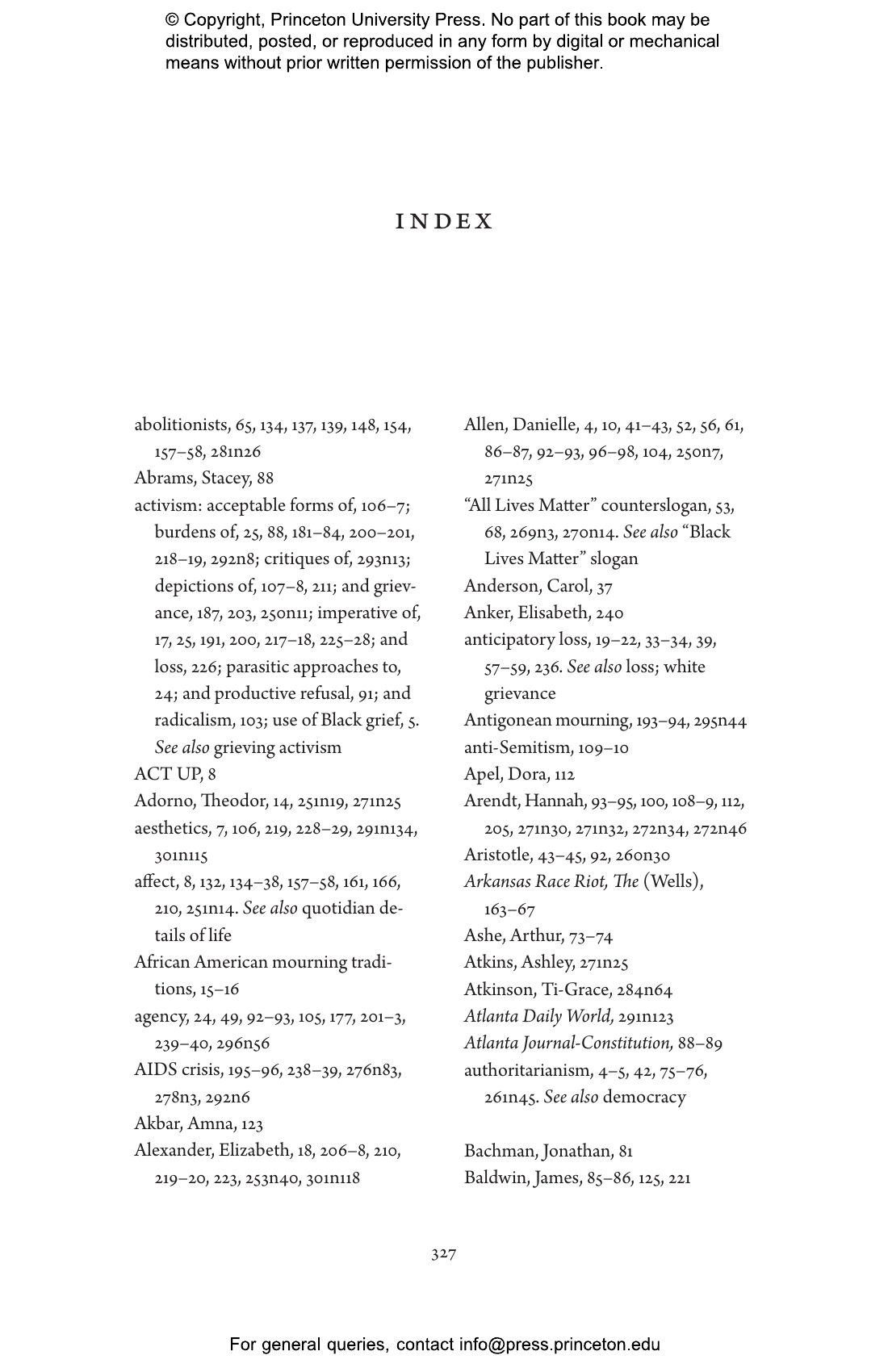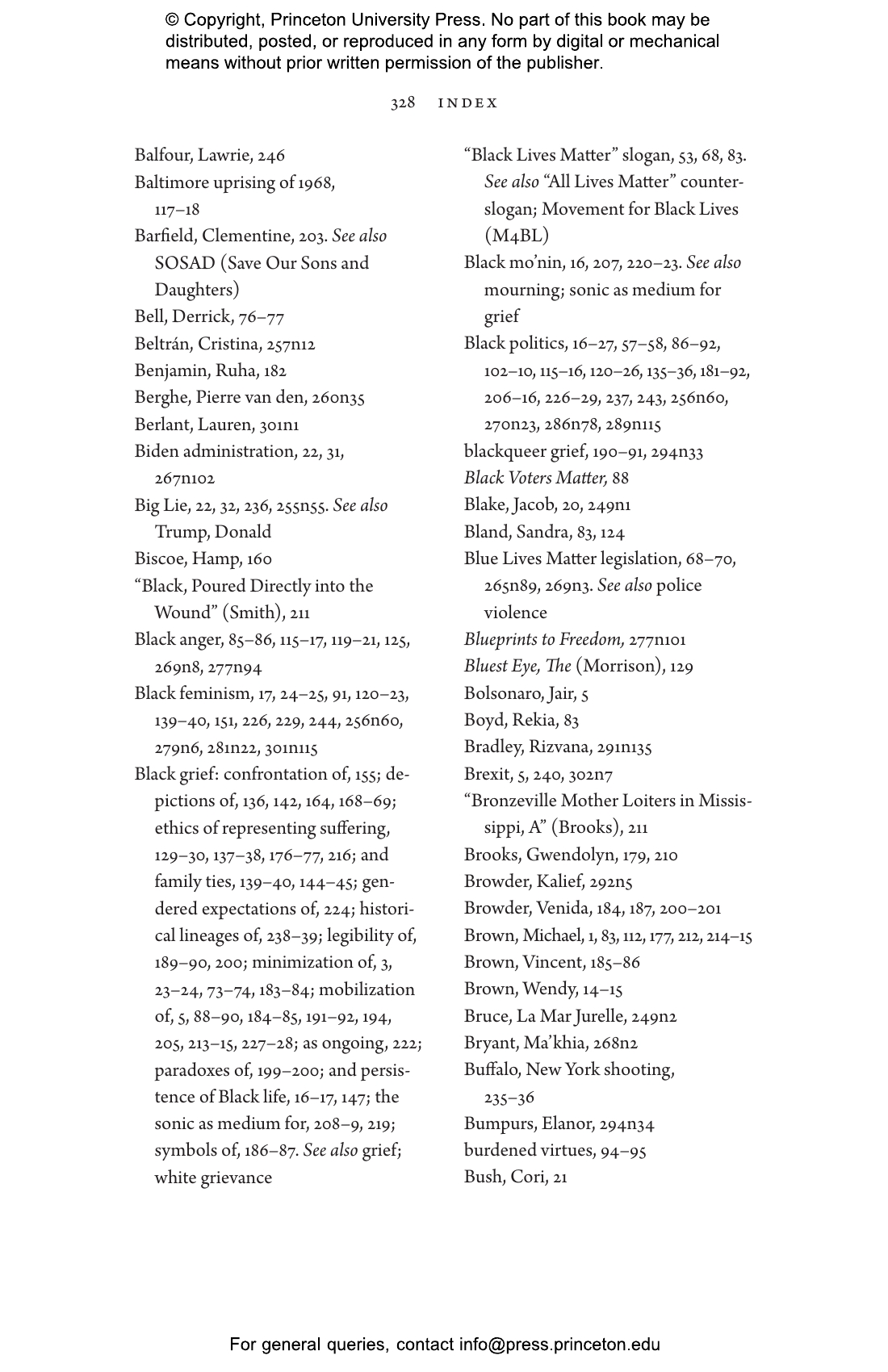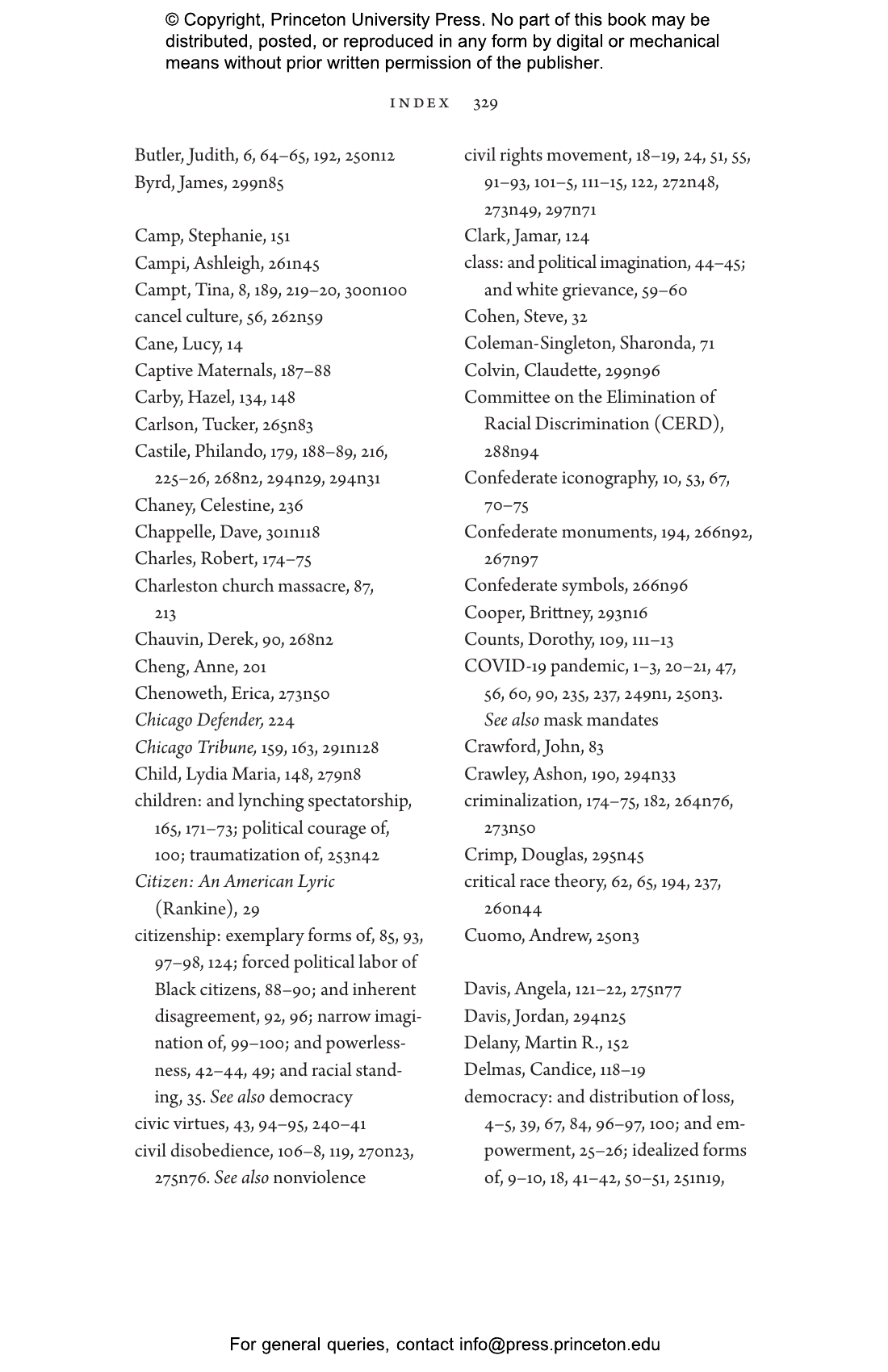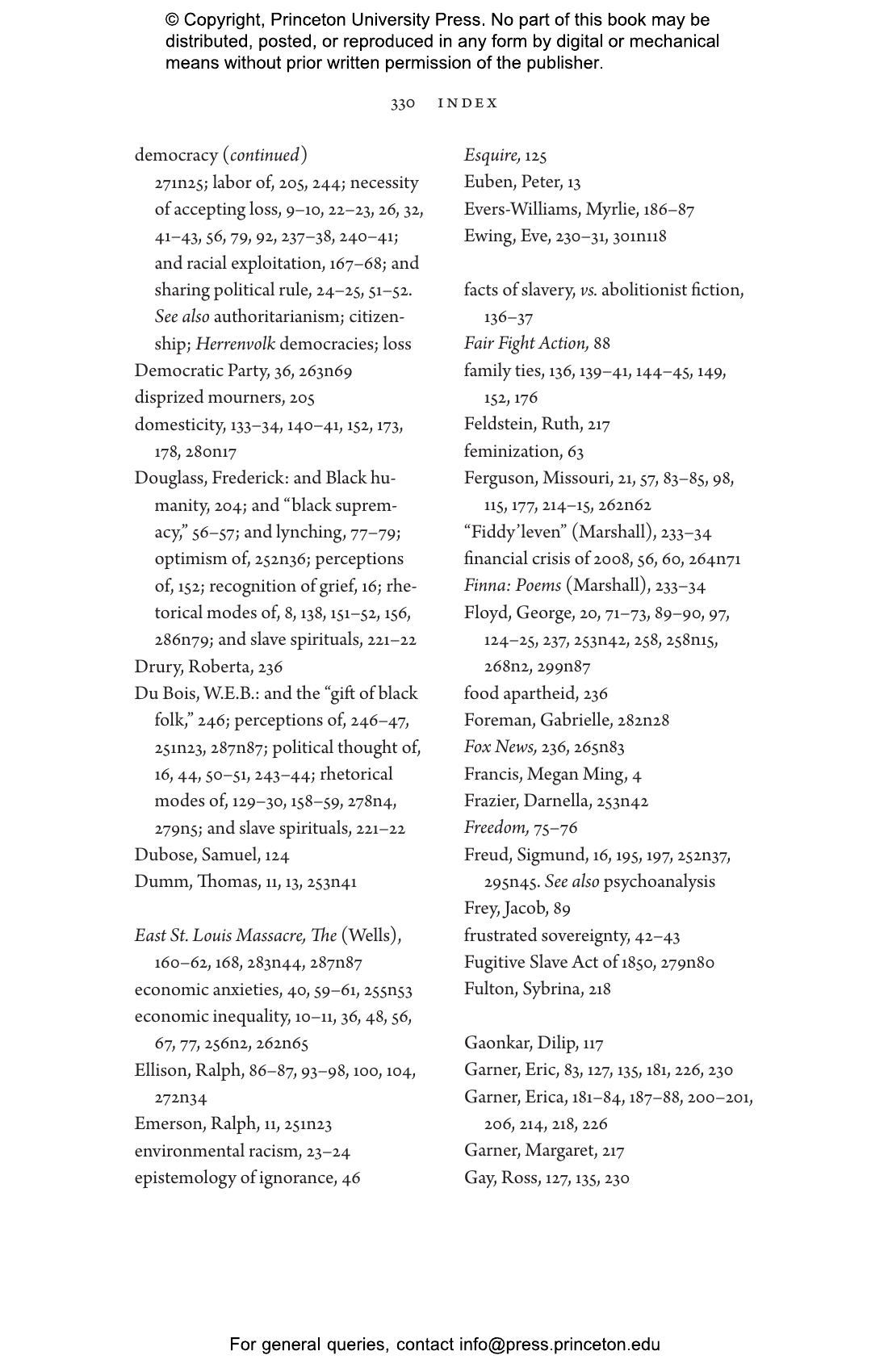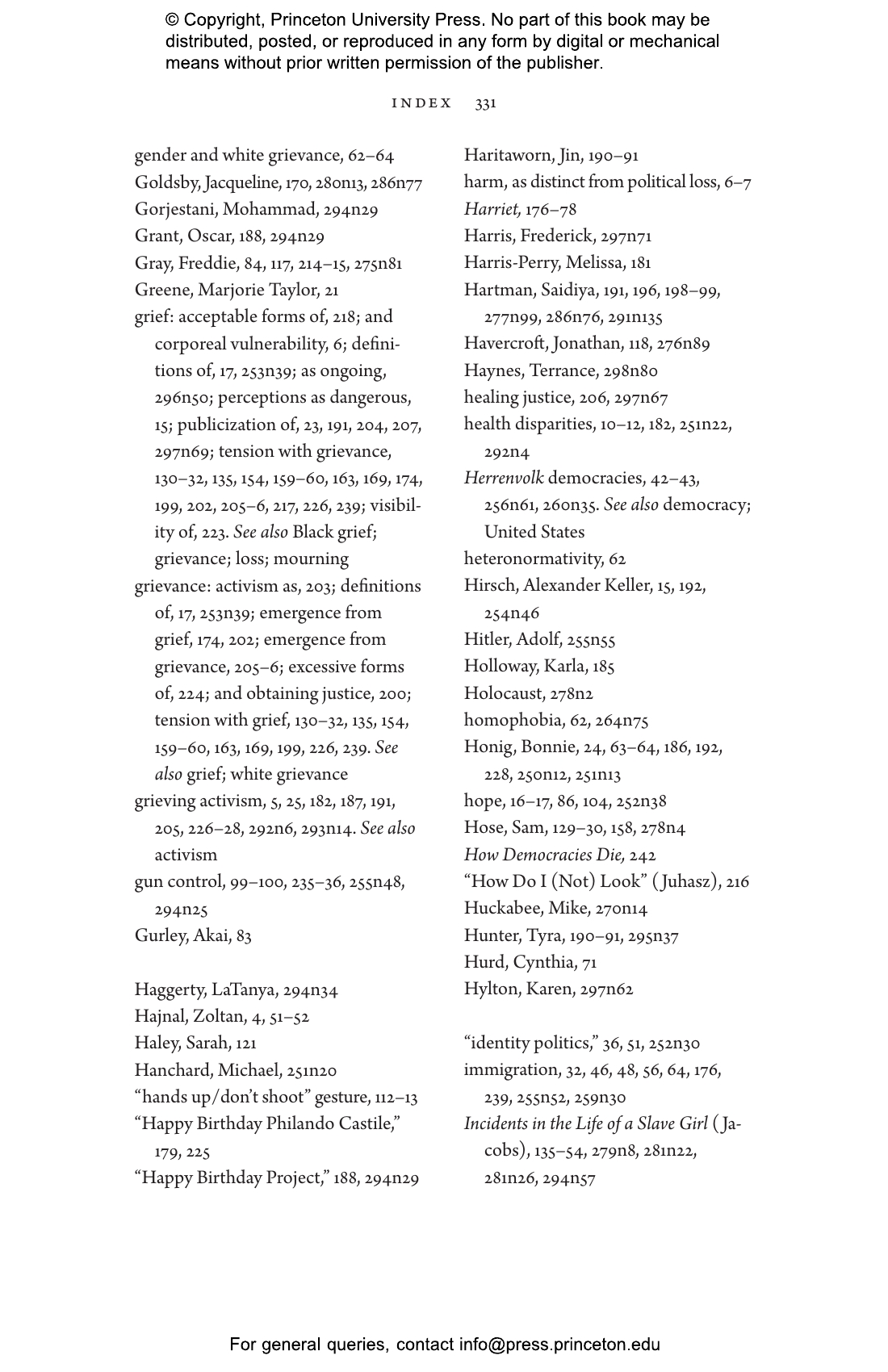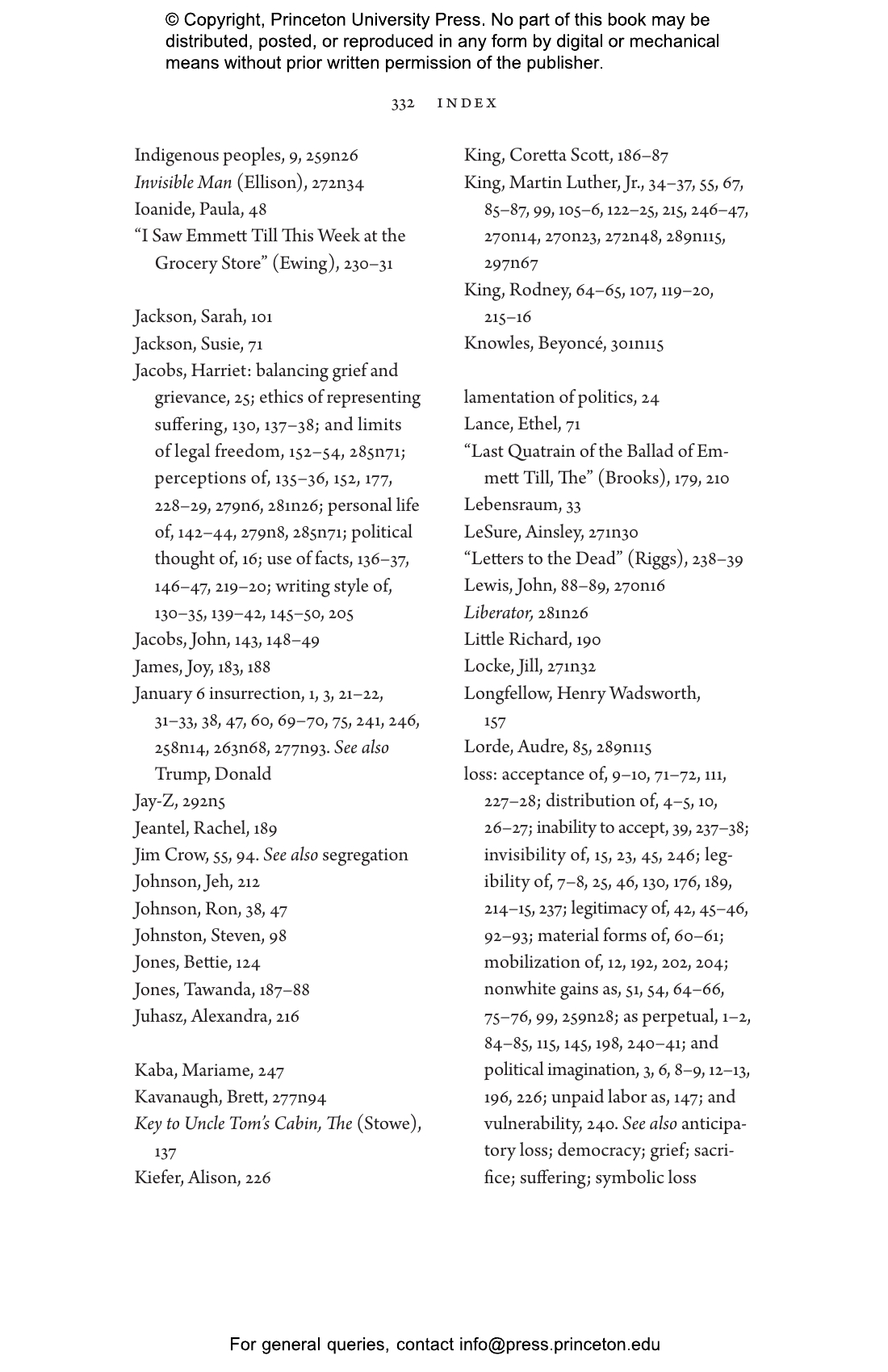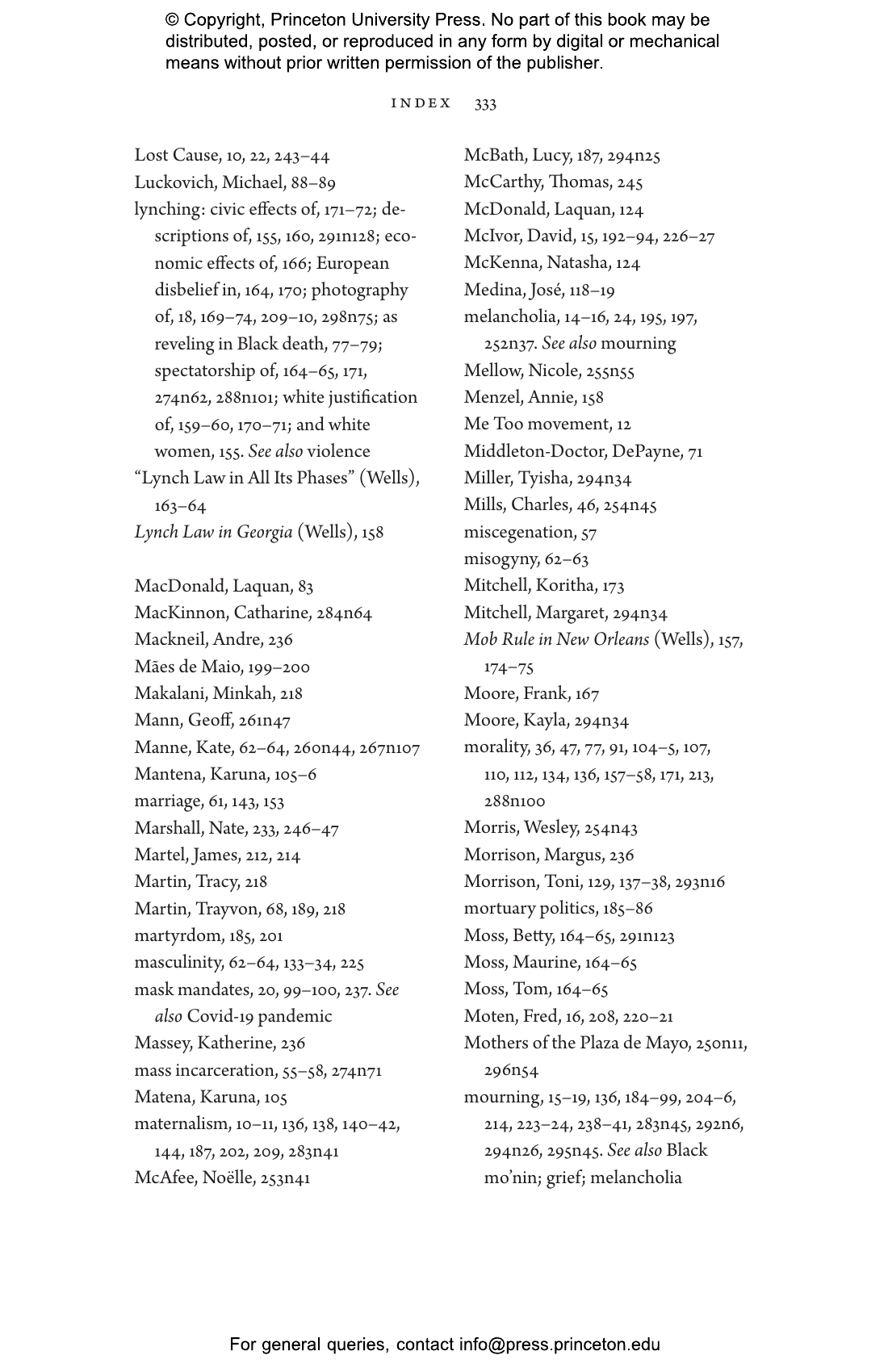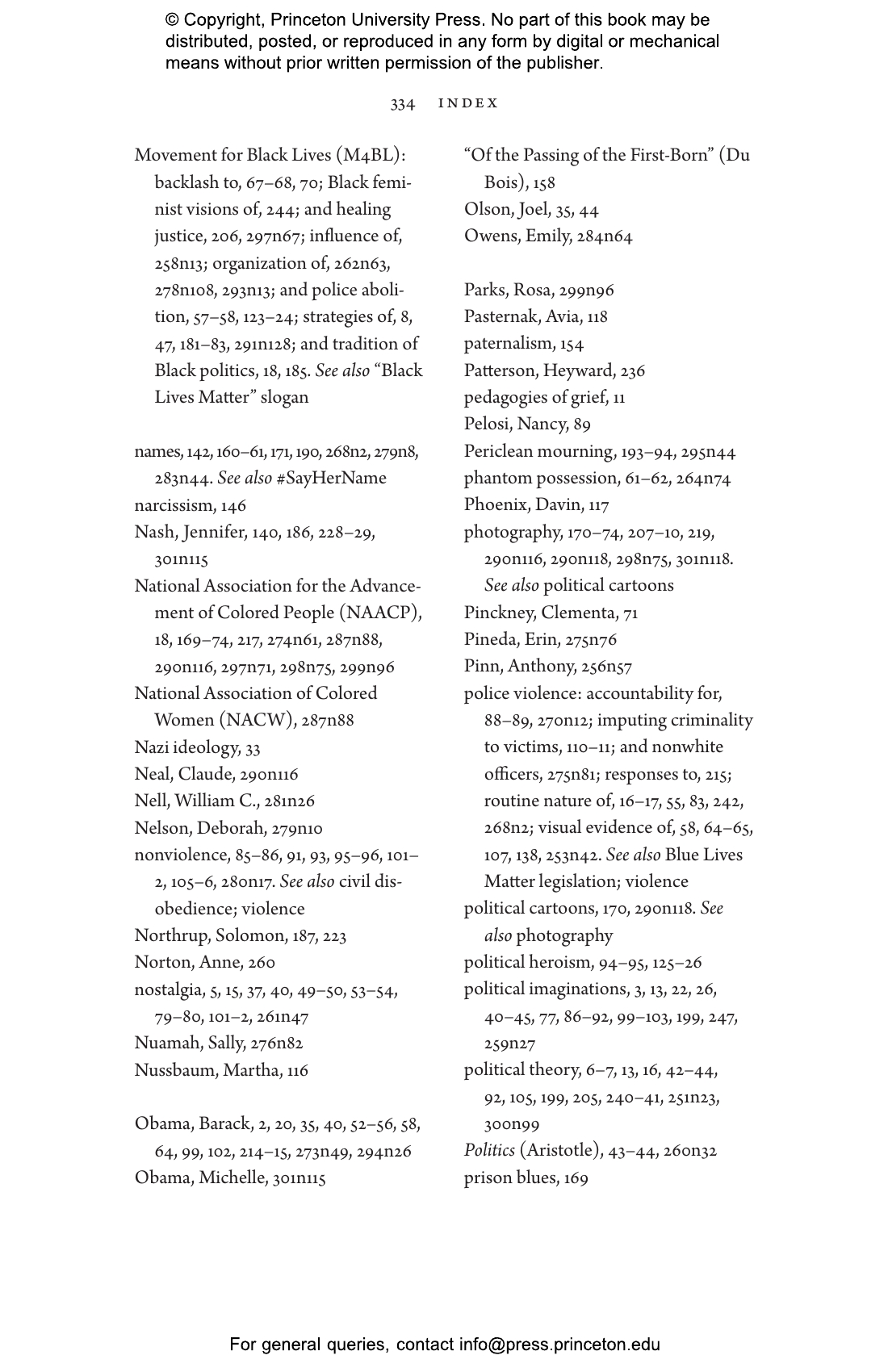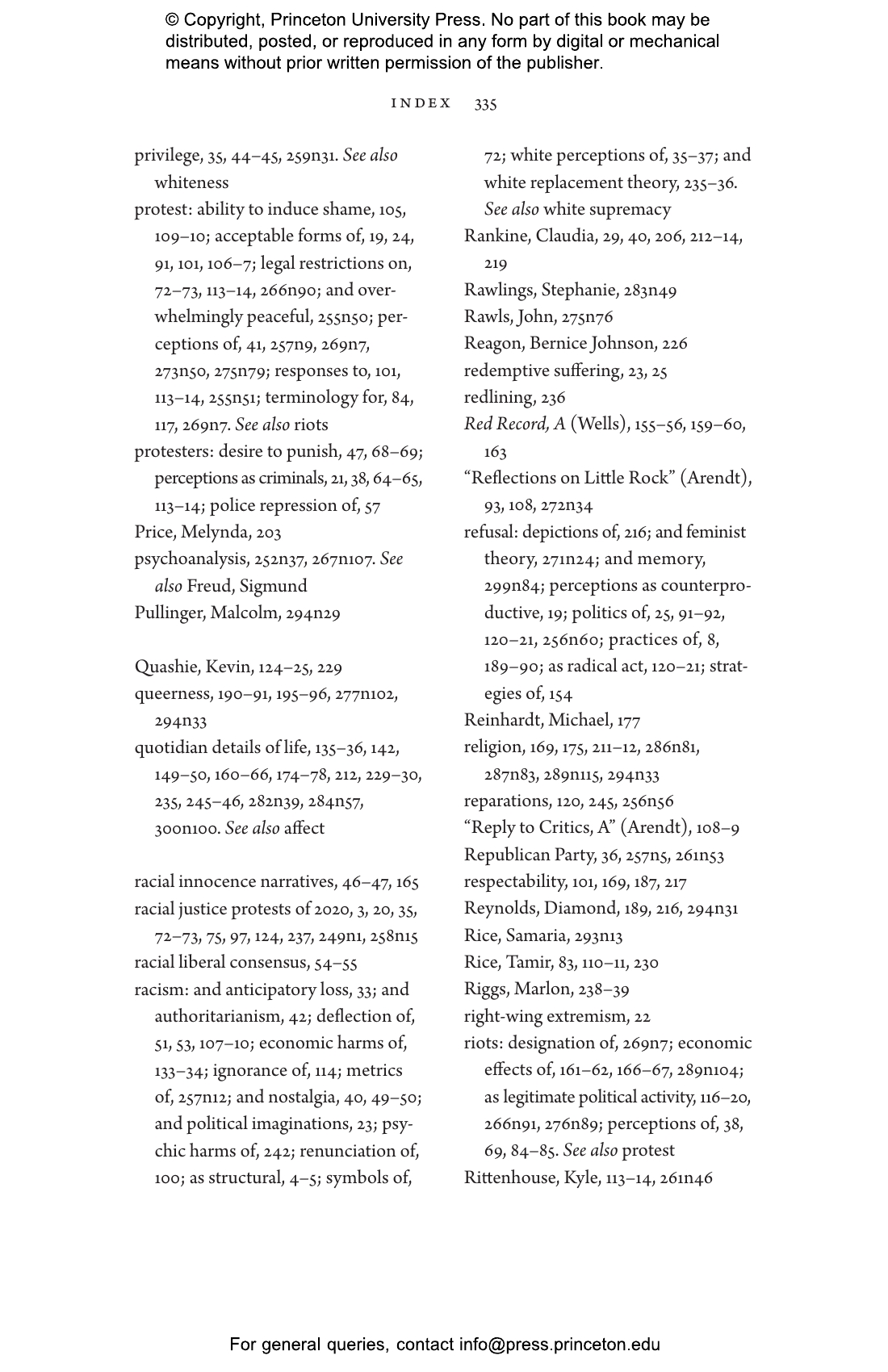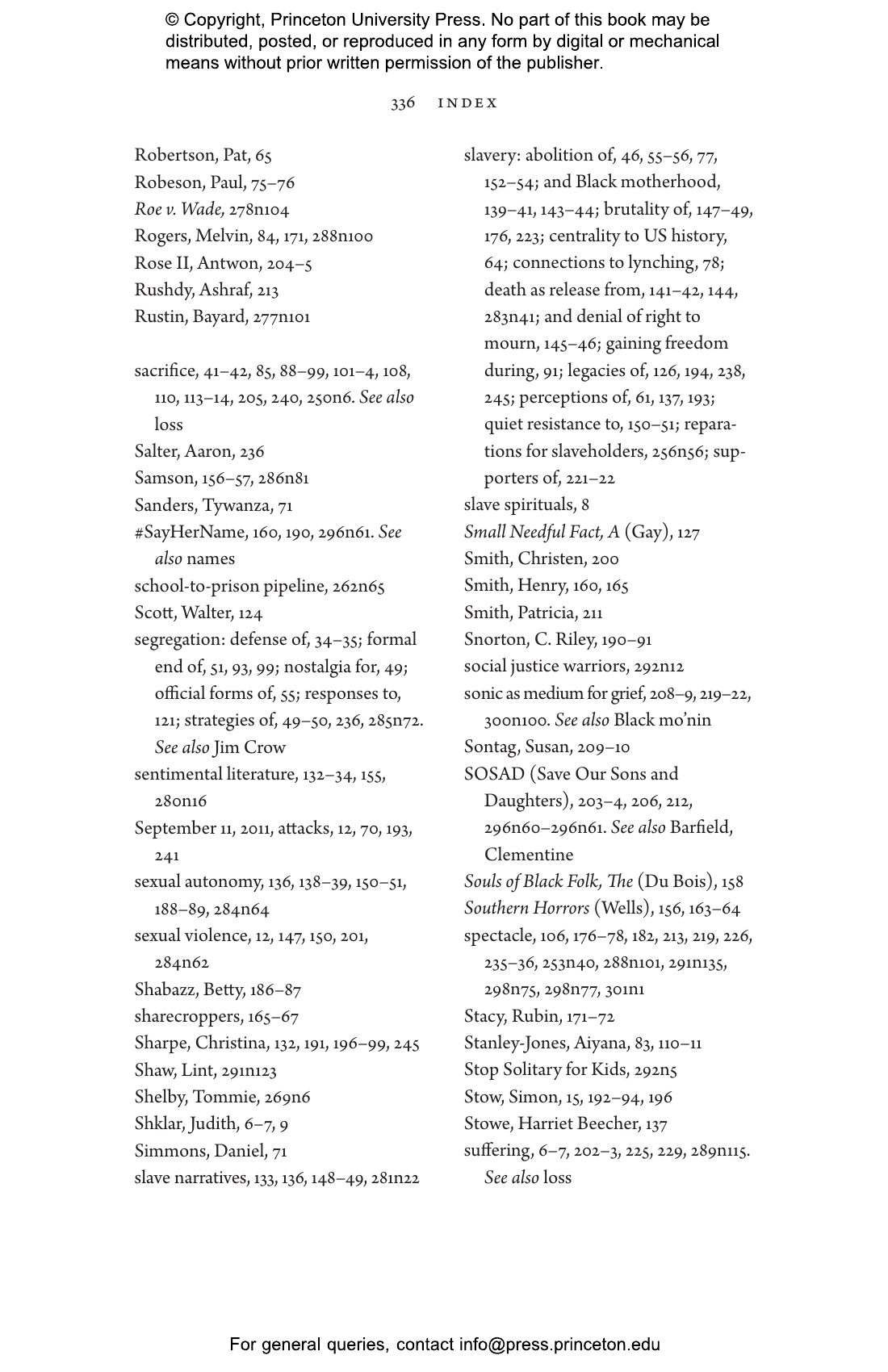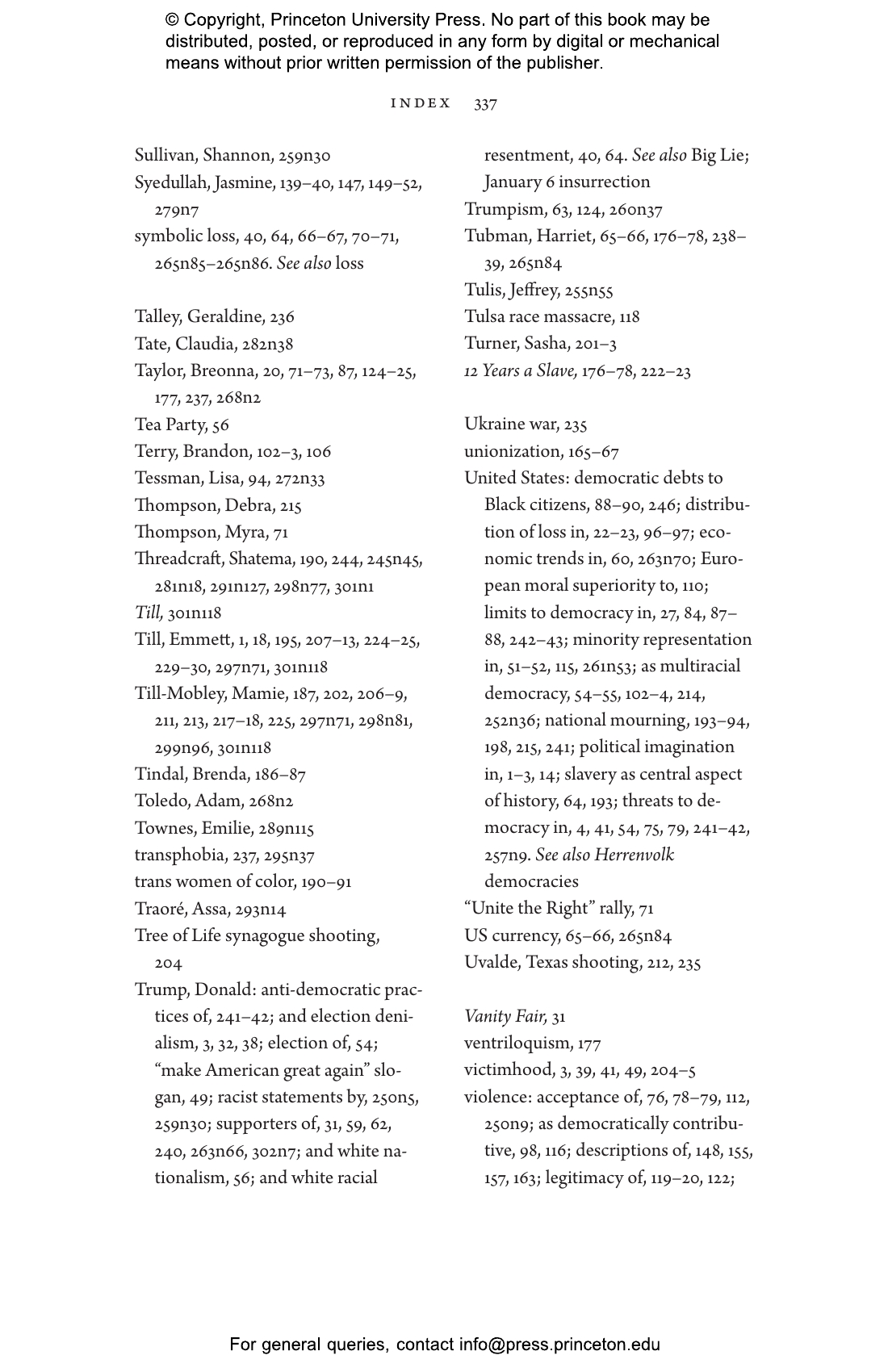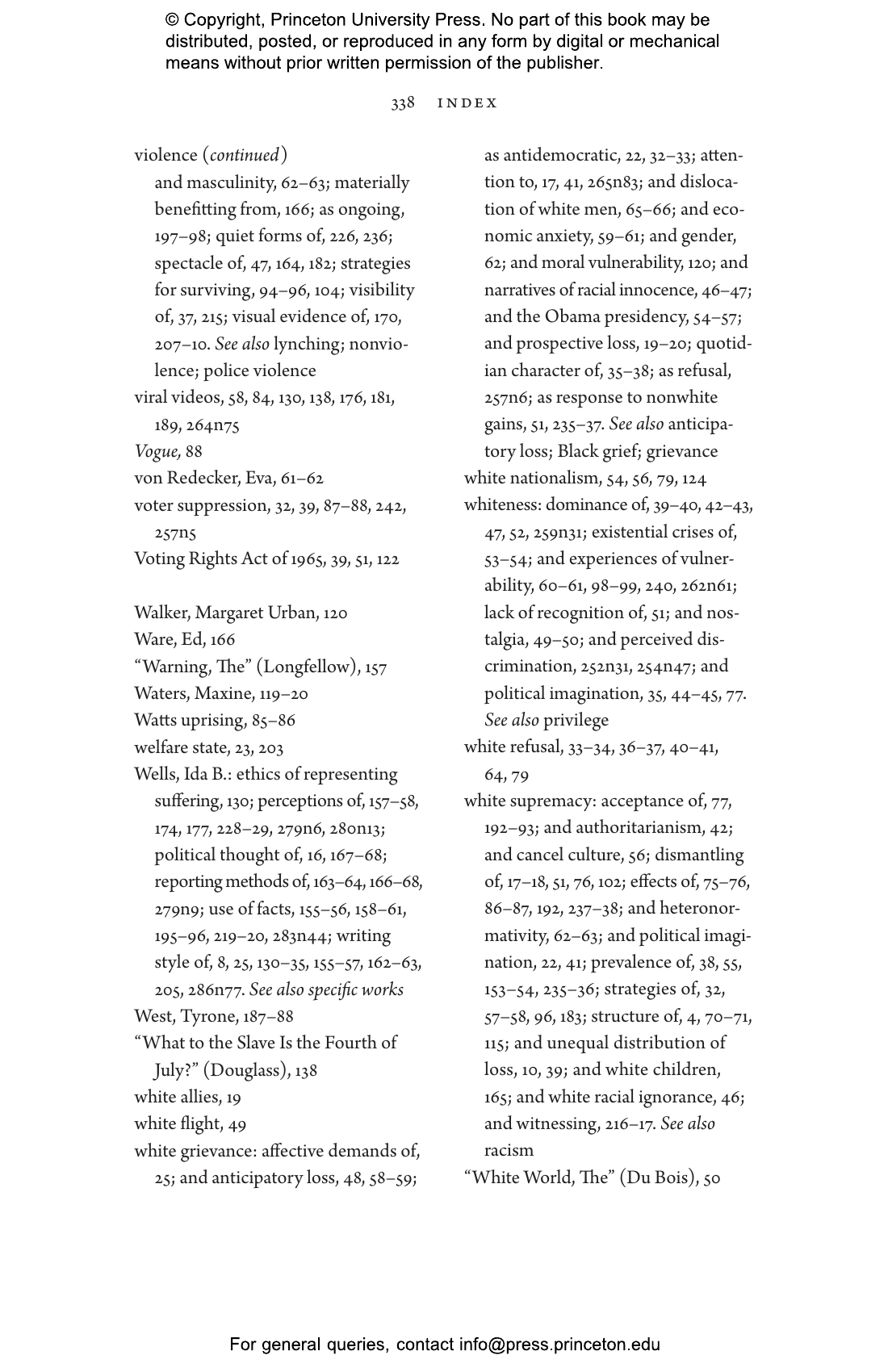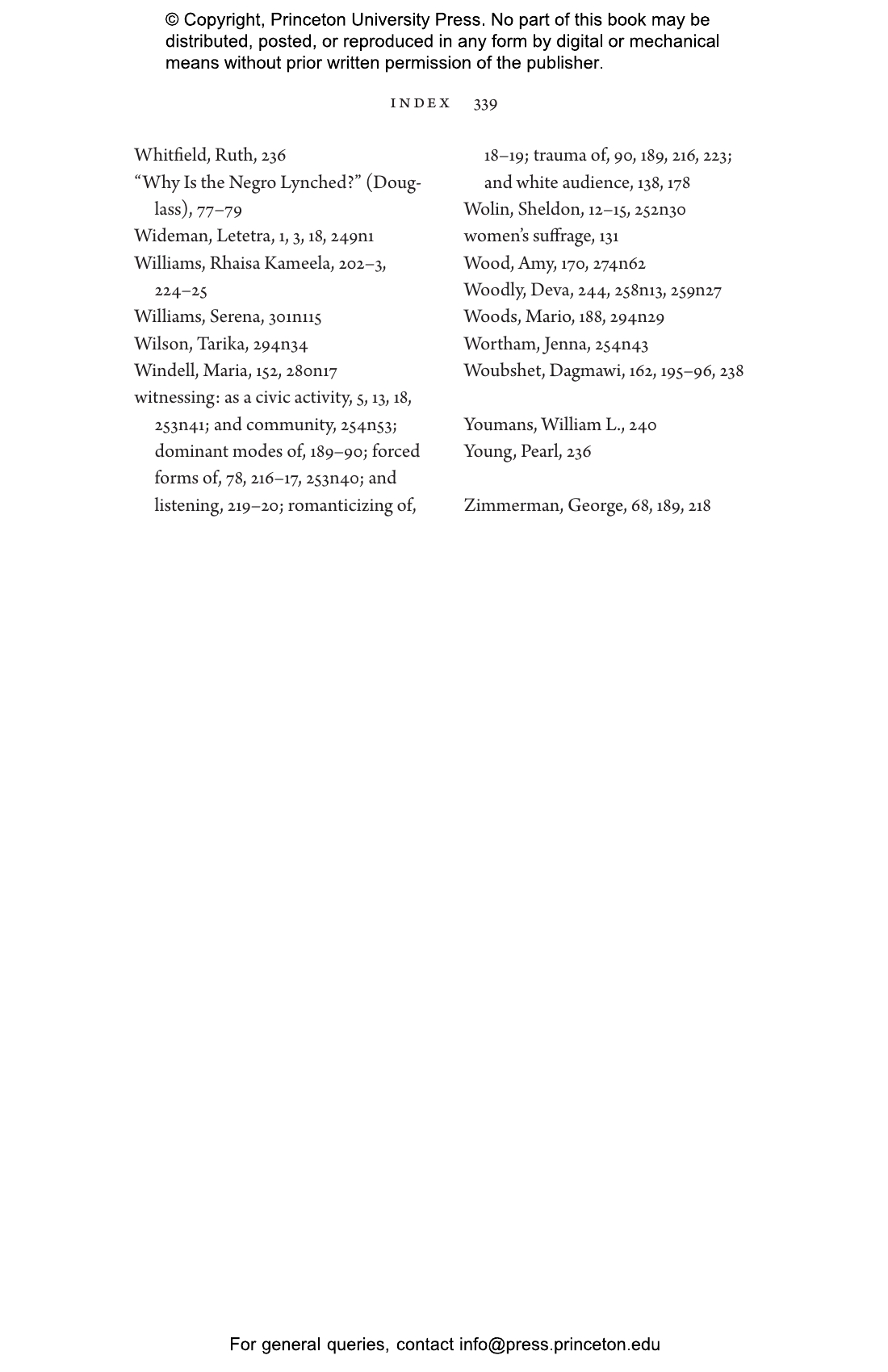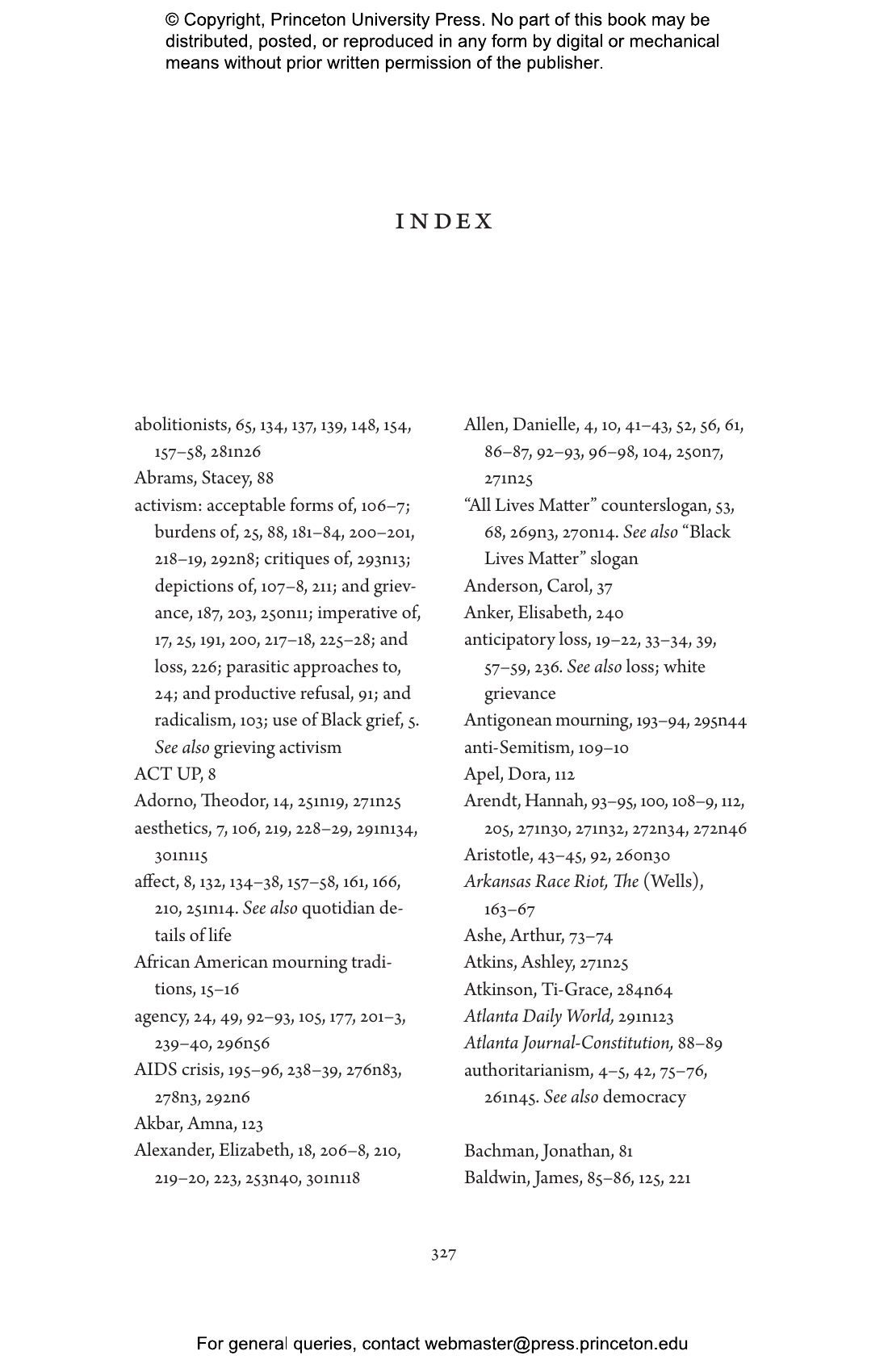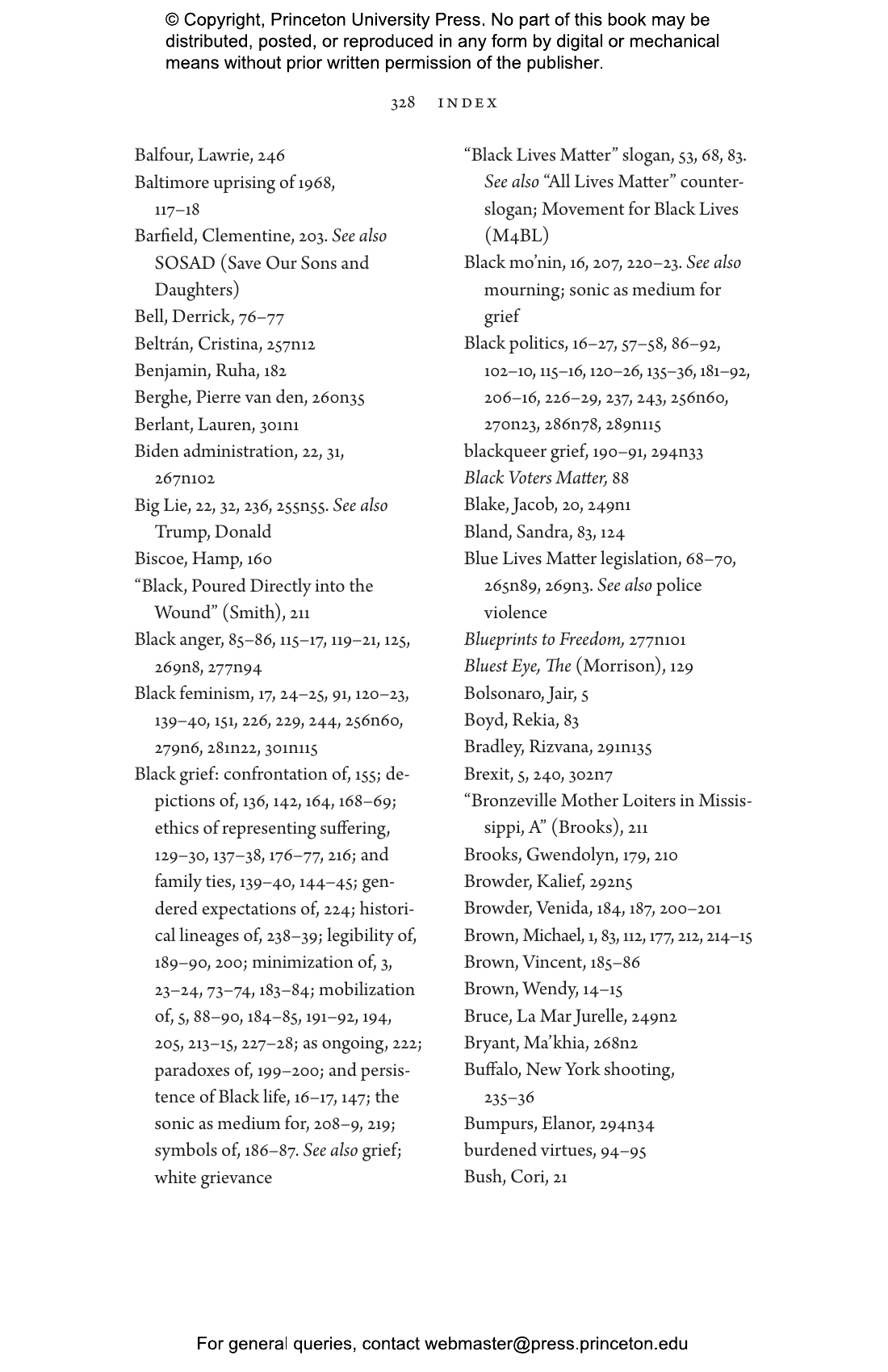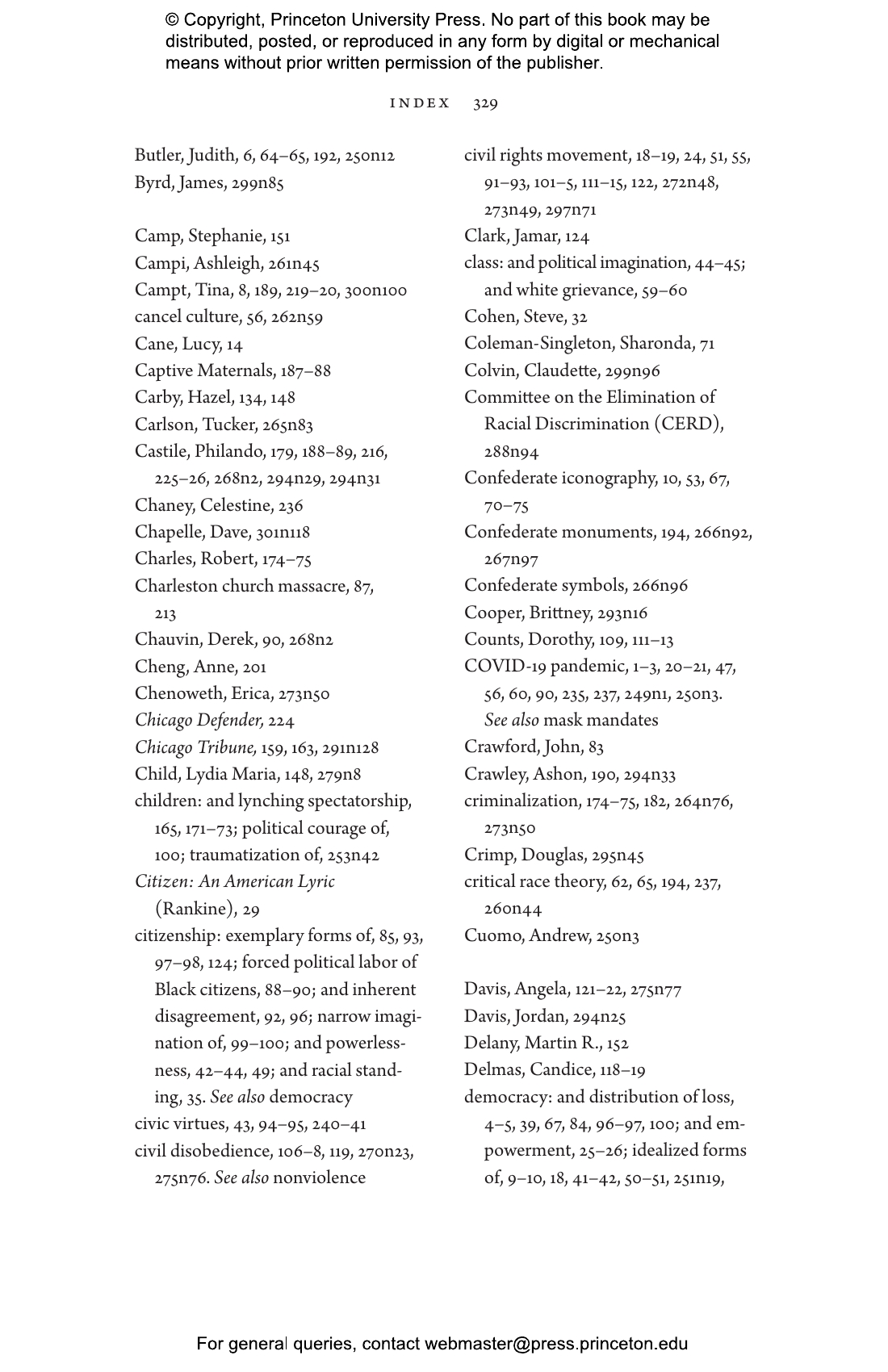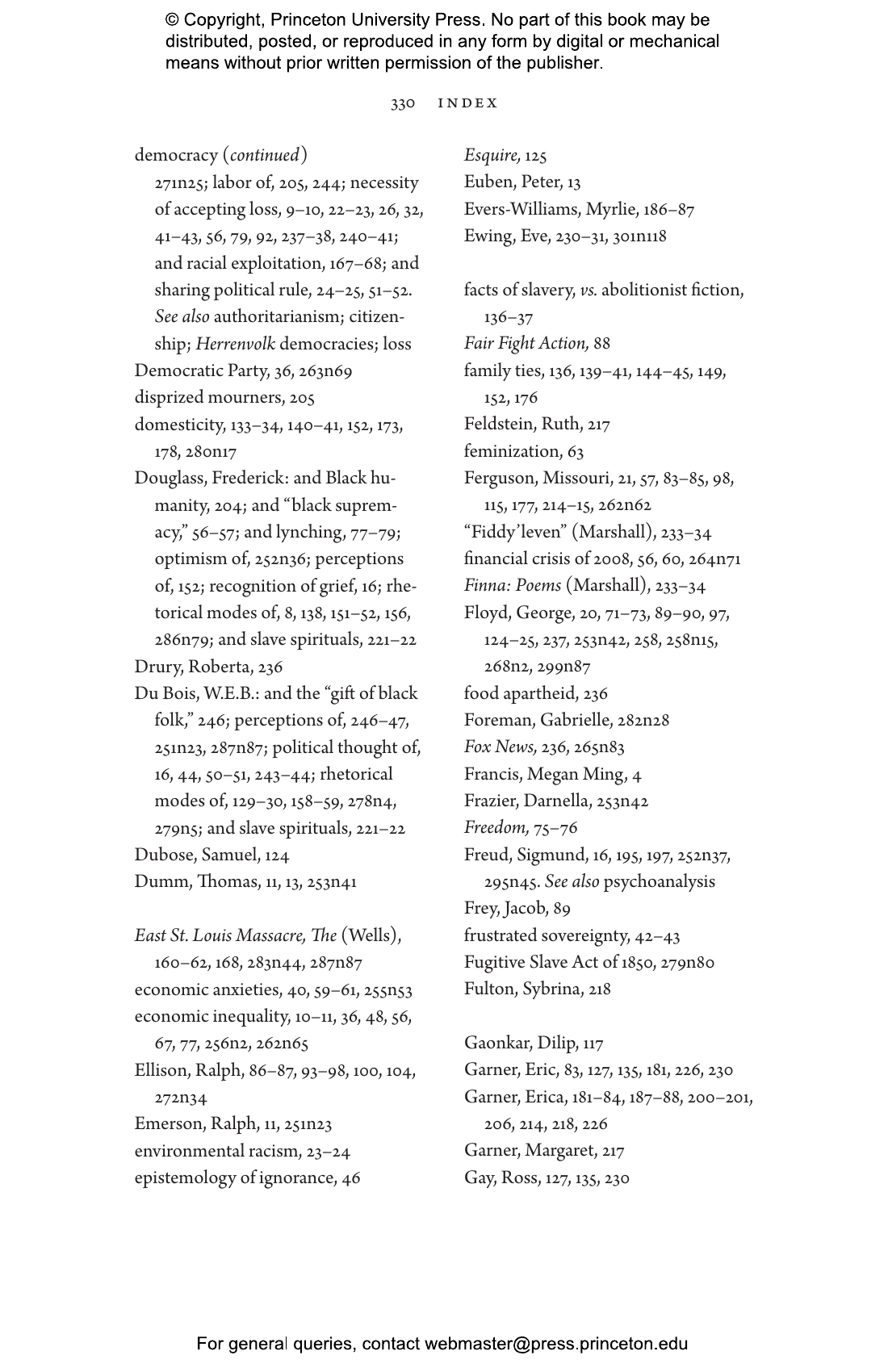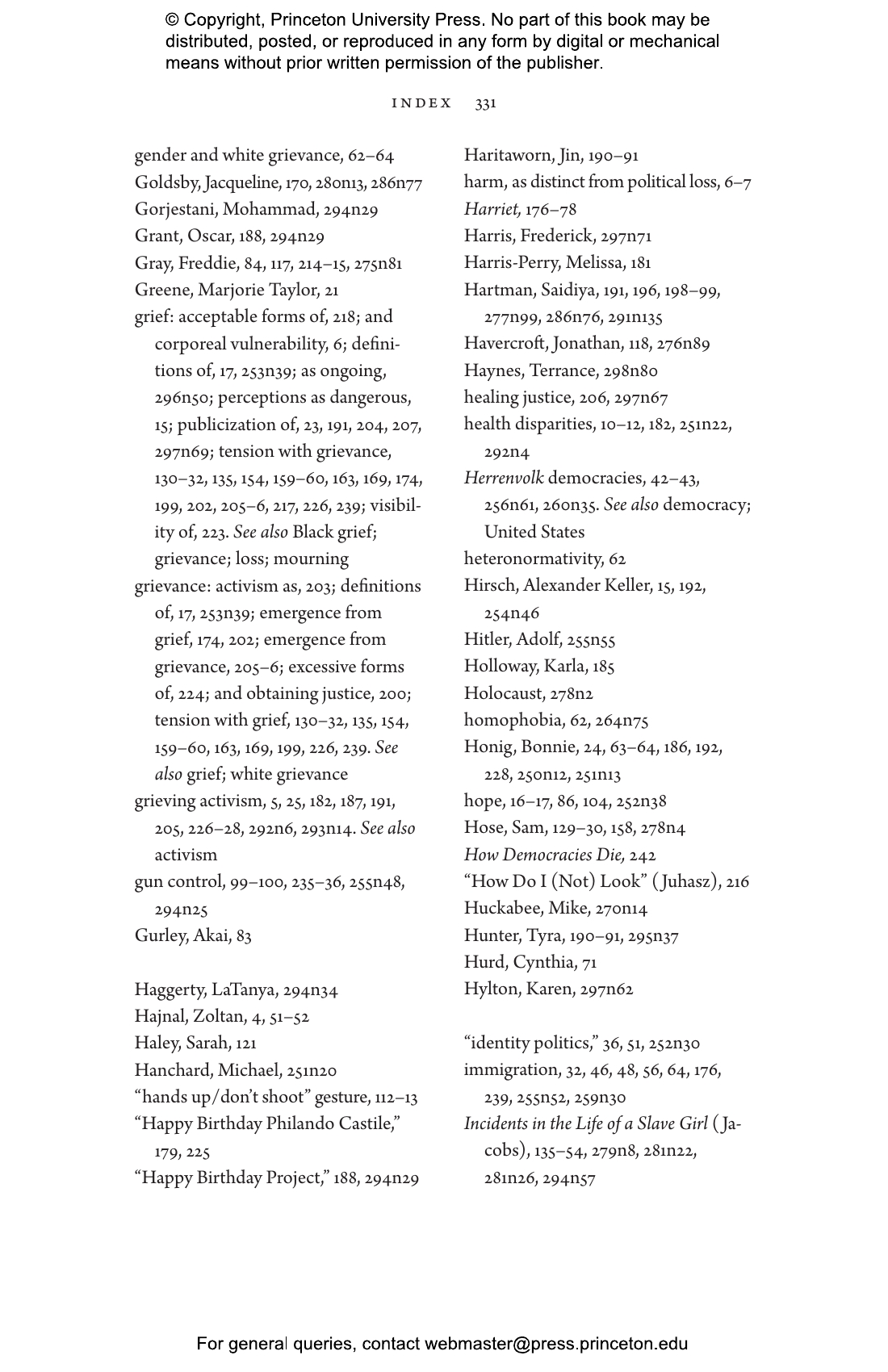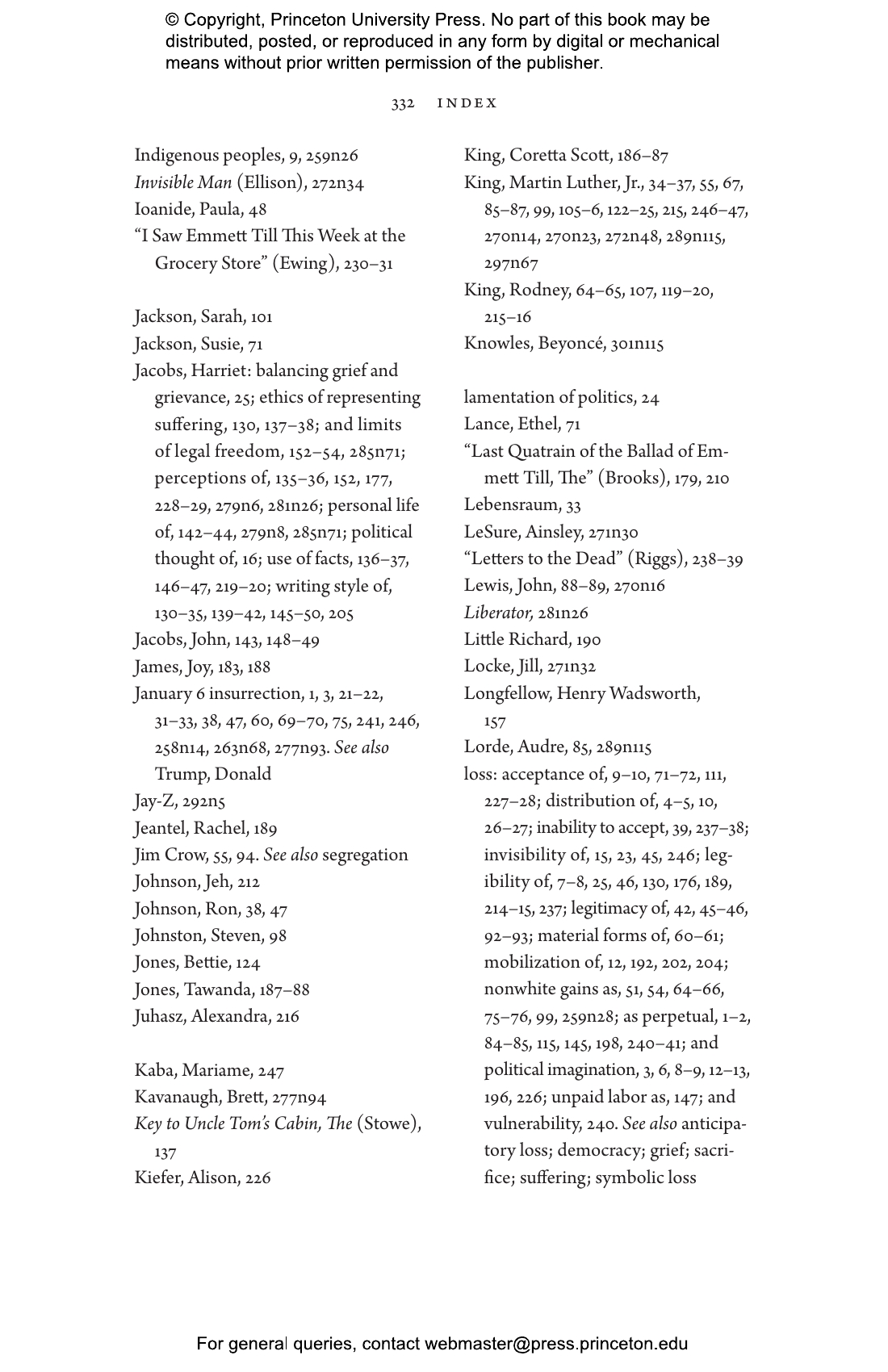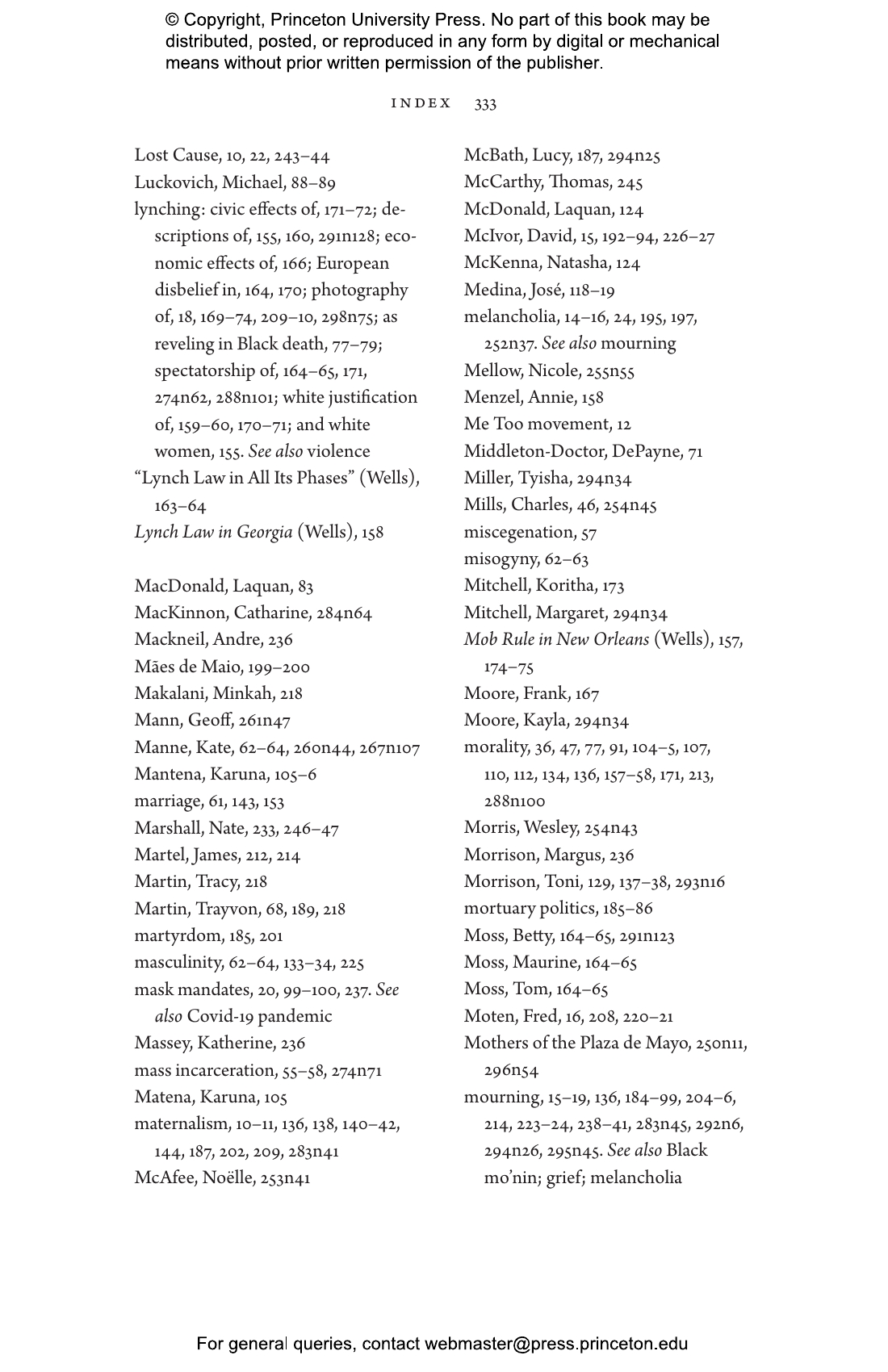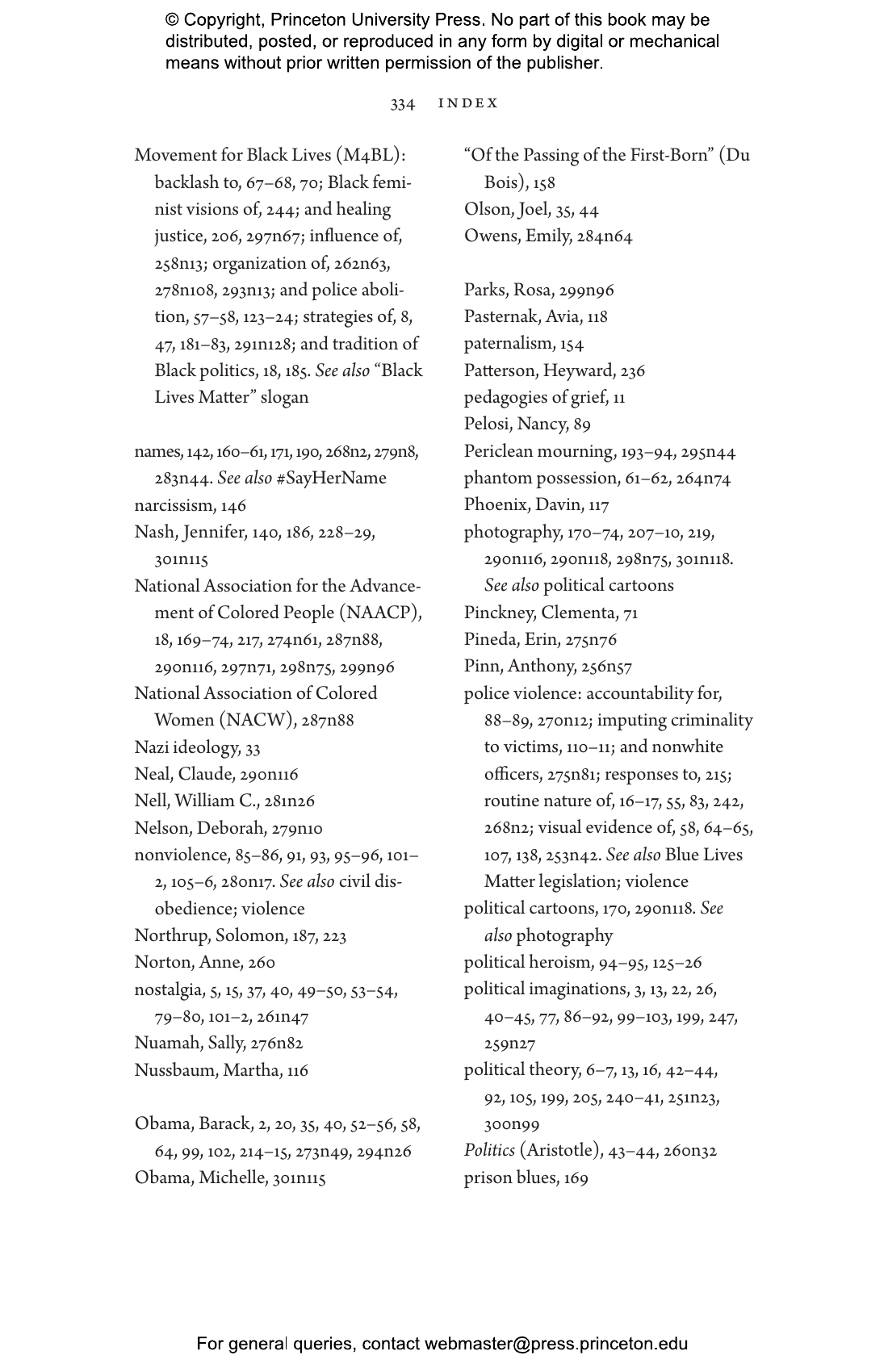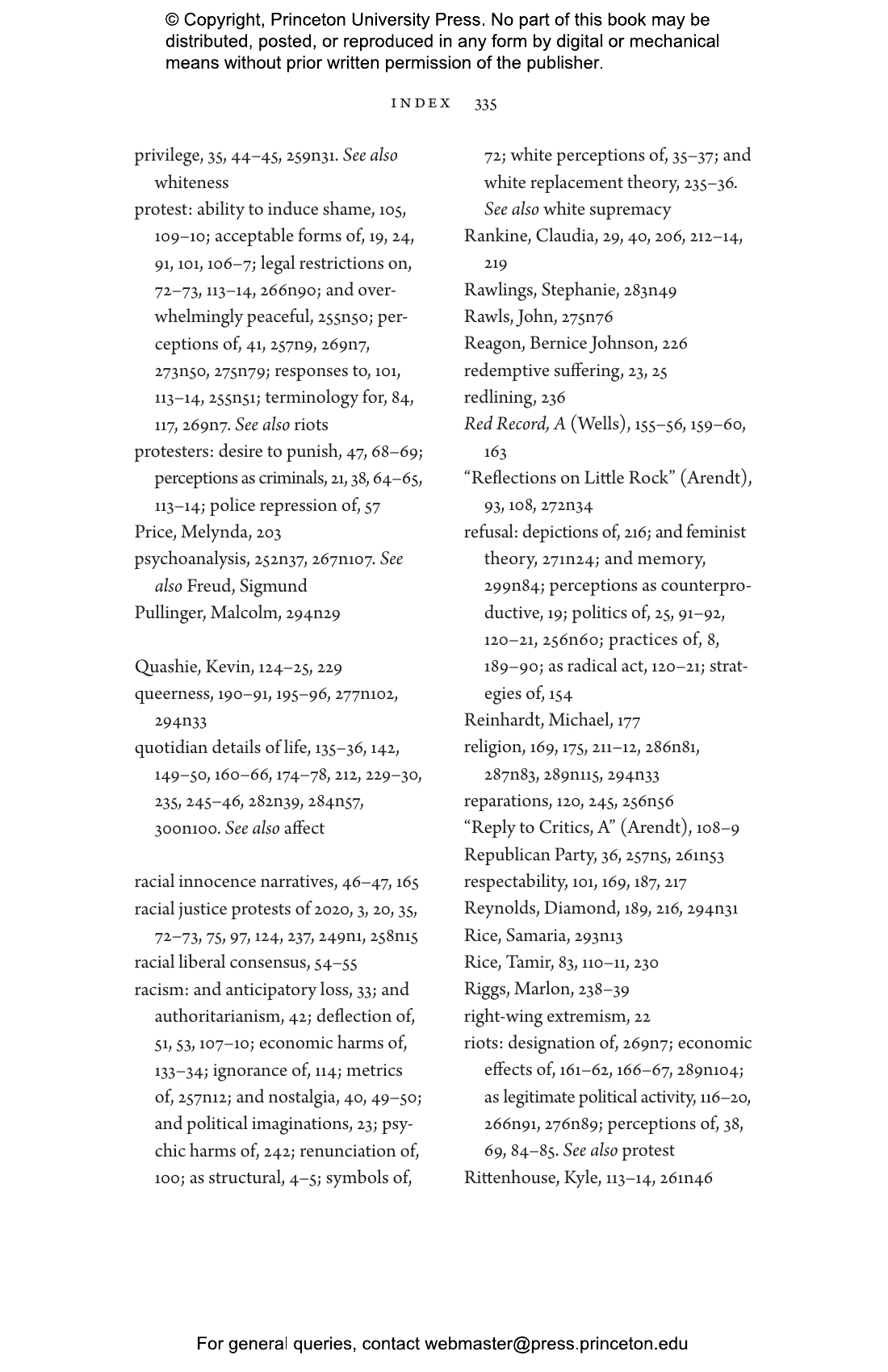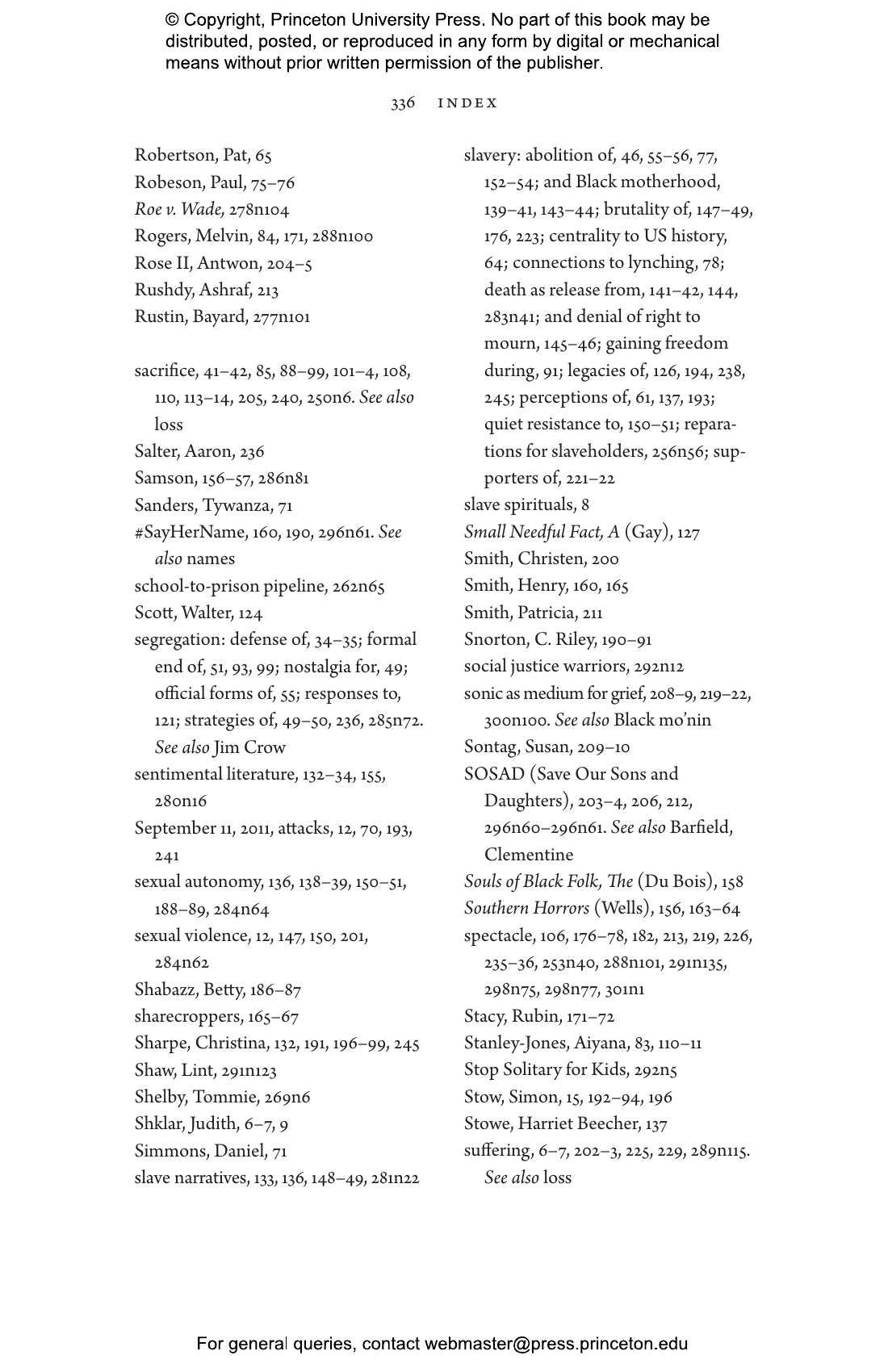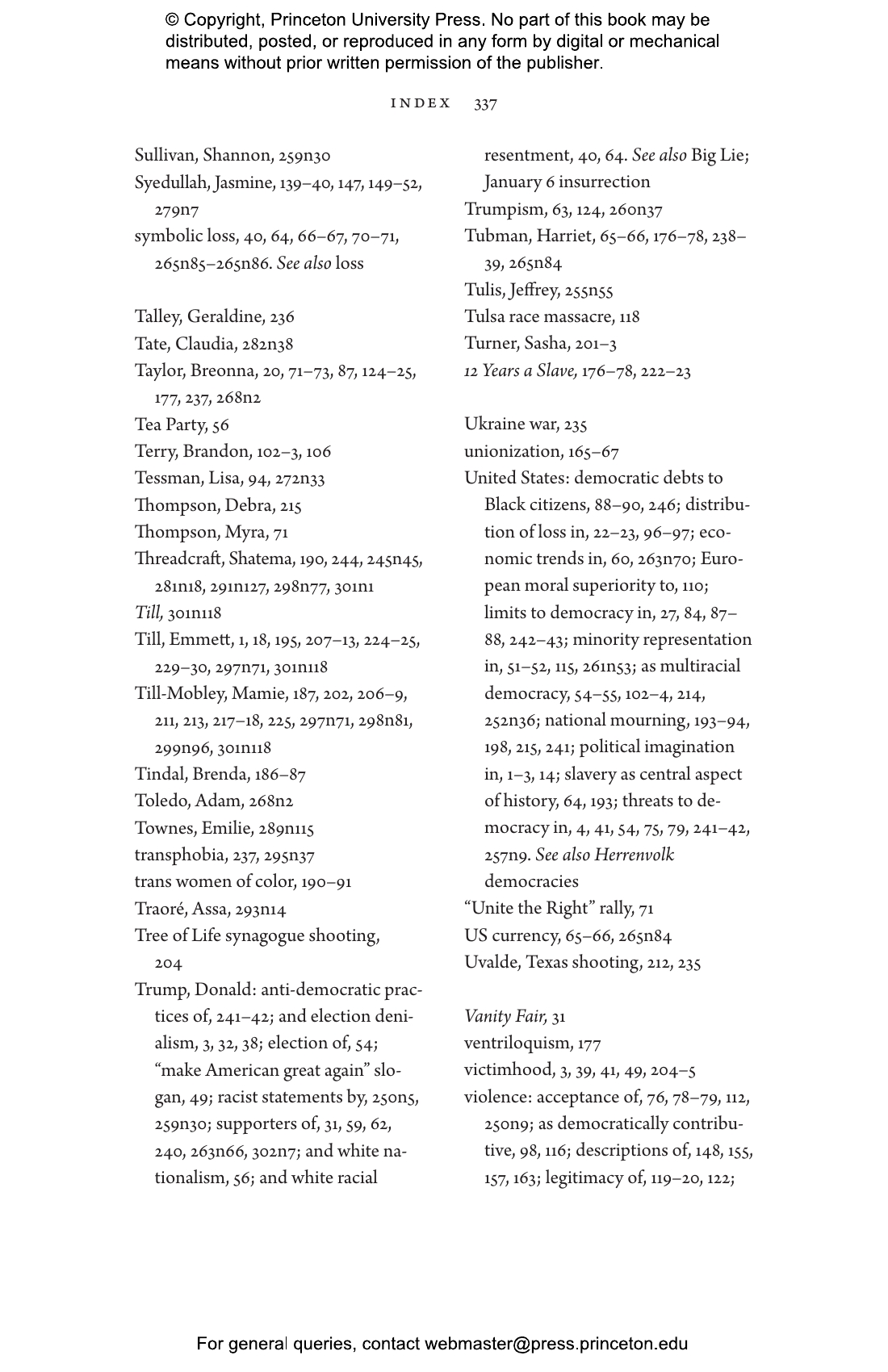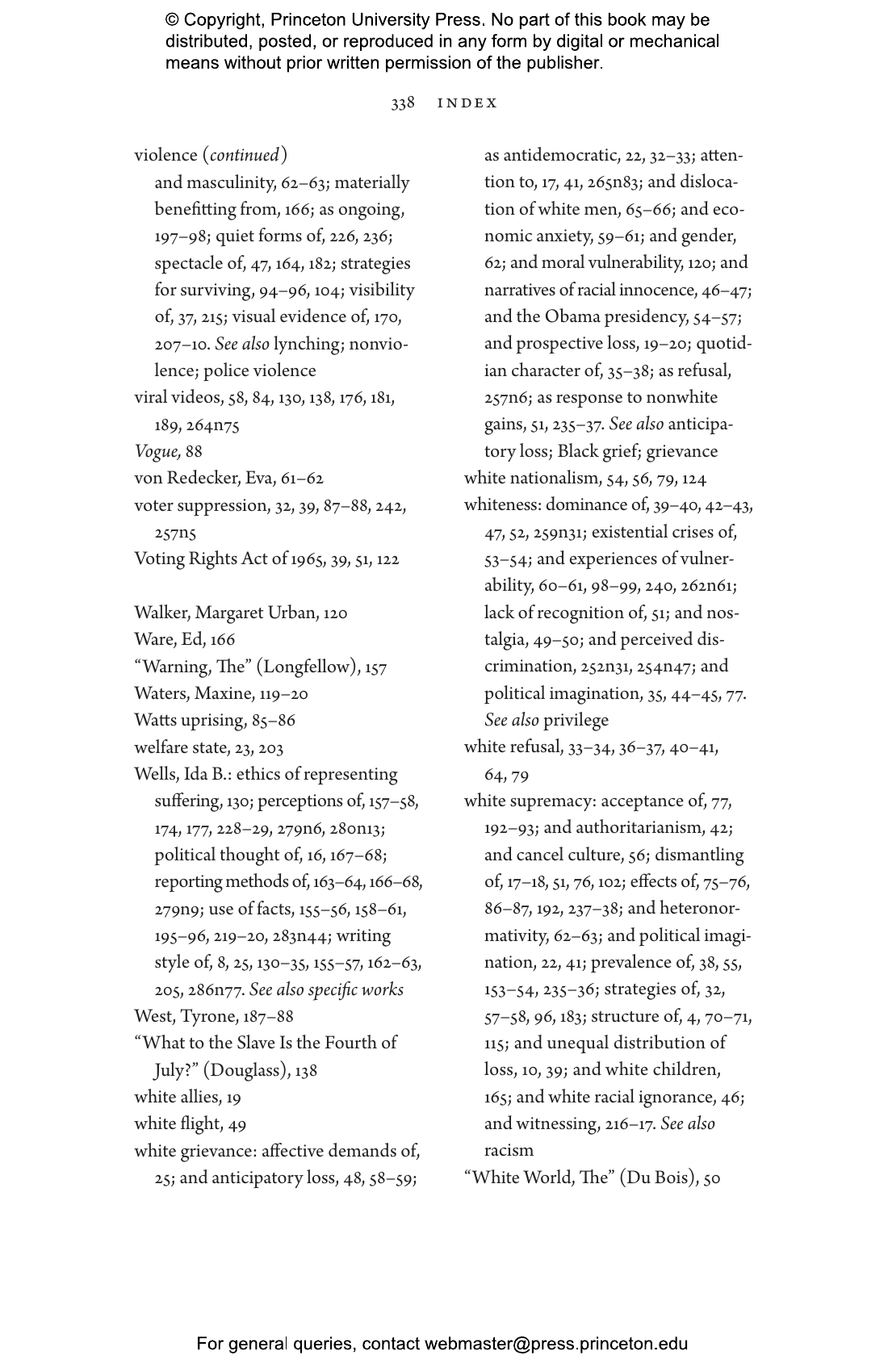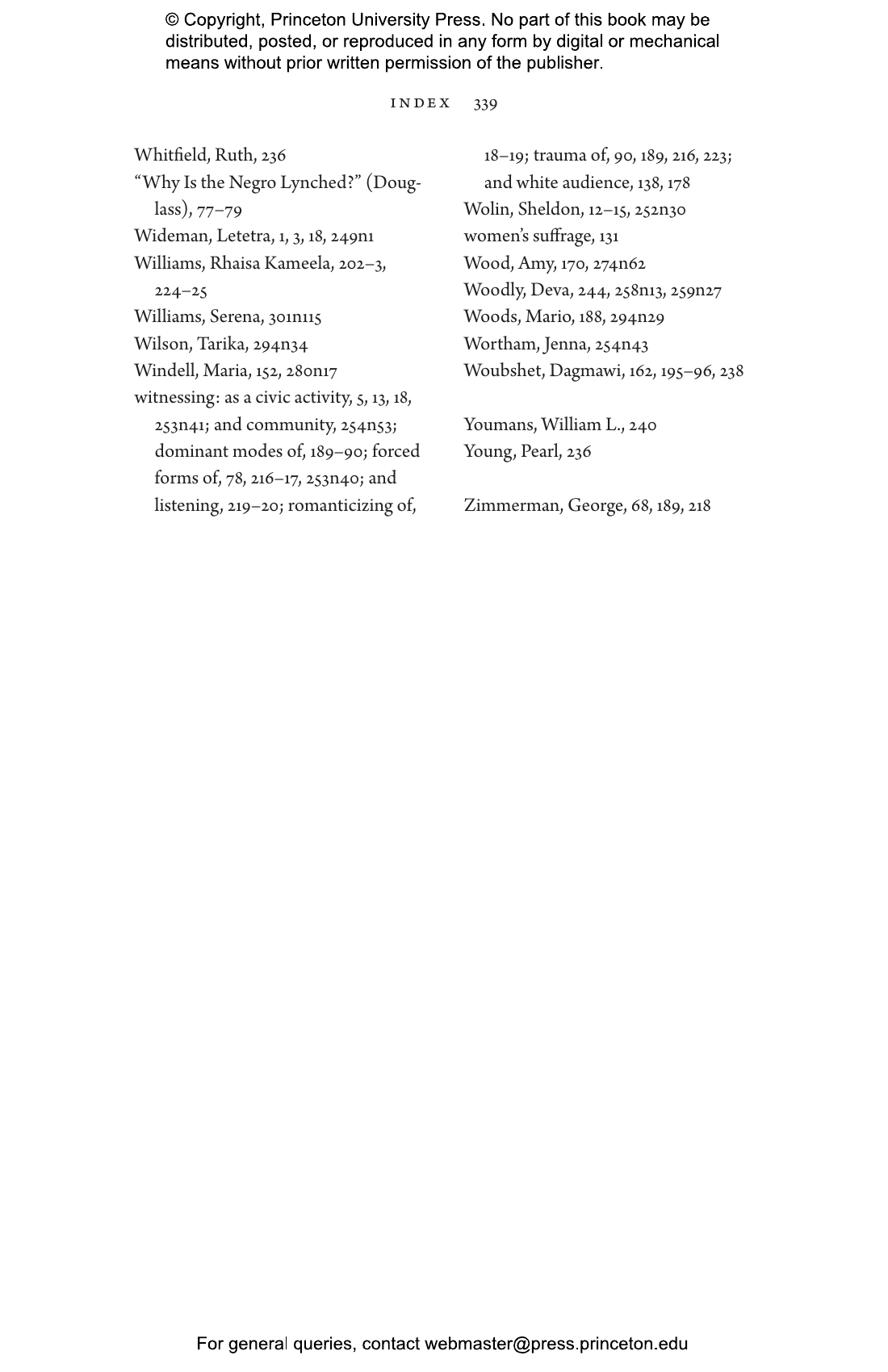In democracies, citizens must accept loss; we can’t always be on the winning side. But in the United States, the fundamental civic capacity of being able to lose is not distributed equally. Propped up by white supremacy, whites (as a group) are accustomed to winning; they have generally been able to exercise political rule without having to accept sharing it. Black citizens, on the other hand, are expected to be political heroes whose civic suffering enables progress toward racial justice. In this book, Juliet Hooker, a leading thinker on democracy and race, argues that the two most important forces driving racial politics in the United States today are Black grief and white grievance. Black grief is exemplified by current protests against police violence—the latest in a tradition of violent death and subsequent public mourning spurring Black political mobilization. The potent politics of white grievance, meanwhile, which is also not new, imagines the United States as a white country under siege.
Drawing on African American political thought, Hooker examines key moments in US racial politics that illuminate the problem of loss in democracy. She connects today’s Black Lives Matter protests to the use of lynching photographs to arouse public outrage over post–Reconstruction era racial terror, and she discusses Emmett Till’s funeral as a catalyst for the civil rights struggles of the 1950s and 1960s. She also traces the political weaponization of white victimhood during the Obama and Trump presidencies. Calling for an expansion of Black and white political imaginations, Hooker argues that both must learn to sit with loss, for different reasons and to different ends.
Awards and Recognition
- A Seminary Co-Op Notable Book of the Year
- A Library Journal Best Social Science Book of the Year
- Finalist for the PROSE Award in Government and Politics, Association of American Publishers
- Winner of the Best Book Award, Race, Ethnicity, and Politics Section of the American Political Science Association
"This fascinating and critical research sheds light on the personal and political ramifications of loss and the racial inequities they continue to perpetuate."—Karla J. Strand, Ms. Magazine
"[A] powerful book . . . [Hooker] brilliantly seams together examples from 19th century journalism and literature, well-known civil rights battles of the mid-20th century, and the recent Black Lives Matter movement, among other topics, to illustrate how Black folks consistently turn grief inflicted by recurrent lethal violence into grievance, demanding justice and a stronger multiracial democracy."—Choice
"Insightful, urgent, and beautifully written."—Katherine A. Gordy, Theory & Event
"An intriguing, academic analysis of the link between U.S. racial politics and democracy."—Rebekah Kati, Library Journal
“Black Grief/White Grievance is every bit as stark and urgent as the moment of racial reckoning that inspired it. Juliet Hooker has brilliantly dissected a fundamental dichotomy of American life—the inequality of loss—and pointed to its damning implications for our democracy. By all indicators, these insights will only grow more relevant with time.”—Jelani Cobb, Columbia Journalism School
“This fascinating book provides a rich and timely dialogical space that goes beyond our polarized politics. Juliet Hooker’s subtle analysis gets inside the complex dynamics of the Black and White worlds in order to deepen our commitment to democratic possibilities.”—Cornel West, Union Theological Seminary
“Juliet Hooker has penned an intervention that is important, necessary, and long overdue. The significance of loss and its unequal distribution has gone without saying in political theory for far too long. This omission has prevented us from attempting to grapple honestly with the fact that some of what has been lost is impossible to recover or repair, and from understanding what costs are embedded in actually existing democratic life and who has been made to bear those costs. Hooker's contribution in this work is surgical and incisive, with large implications for the field.”—Deva Woodly, author of Reckoning: Black Lives Matter and the Democratic Necessity of Social Movement
“This book is an extraordinary work of critical race studies and democratic theory. Alert to the inchoate affective dimensions of loss, Hooker brilliantly reveals a deeply racialized economy of suffering that demands the interminable spectacle of Black death and public performance of Black loss. Resisting the democratic politics of repair, she discovers new forms of Black worldmaking that inspire transformative action in the present.”—Linda M. G. Zerilli, University of Chicago
“In this soberly eloquent book, Juliet Hooker shows that our common humanity requires all Americans to accept that losses of unjust privileges are not valid grounds for grievance, and that the burdens of unjust losses must not include duties to heroically overcome them. By refusing these wrongful conceptions of loss, we may find more gainful paths for ourselves and others.”—Rogers M. Smith, University of Pennsylvania
“W���ٳ� Black Grief/White Grievance, Juliet Hooker examines the two terms of her book’s title in all their profound contradictions. Drawing on W.E.B. Du Bois, Claudia Rankine, and many others, she provides the outlines of a racial system built in part on affectual politics, but without ignoring structural racism. By contrasting Black grief and white grievance so coherently and emotionally, by looking at the political weight of racist affect, of white shame and rage, of continuous Black mourning and attempts to transcend it, Hooker makes a serious contribution to the theory of racism. This startling and promising book is not to be missed!”—Howard Winant, University of California, Santa Barbara
